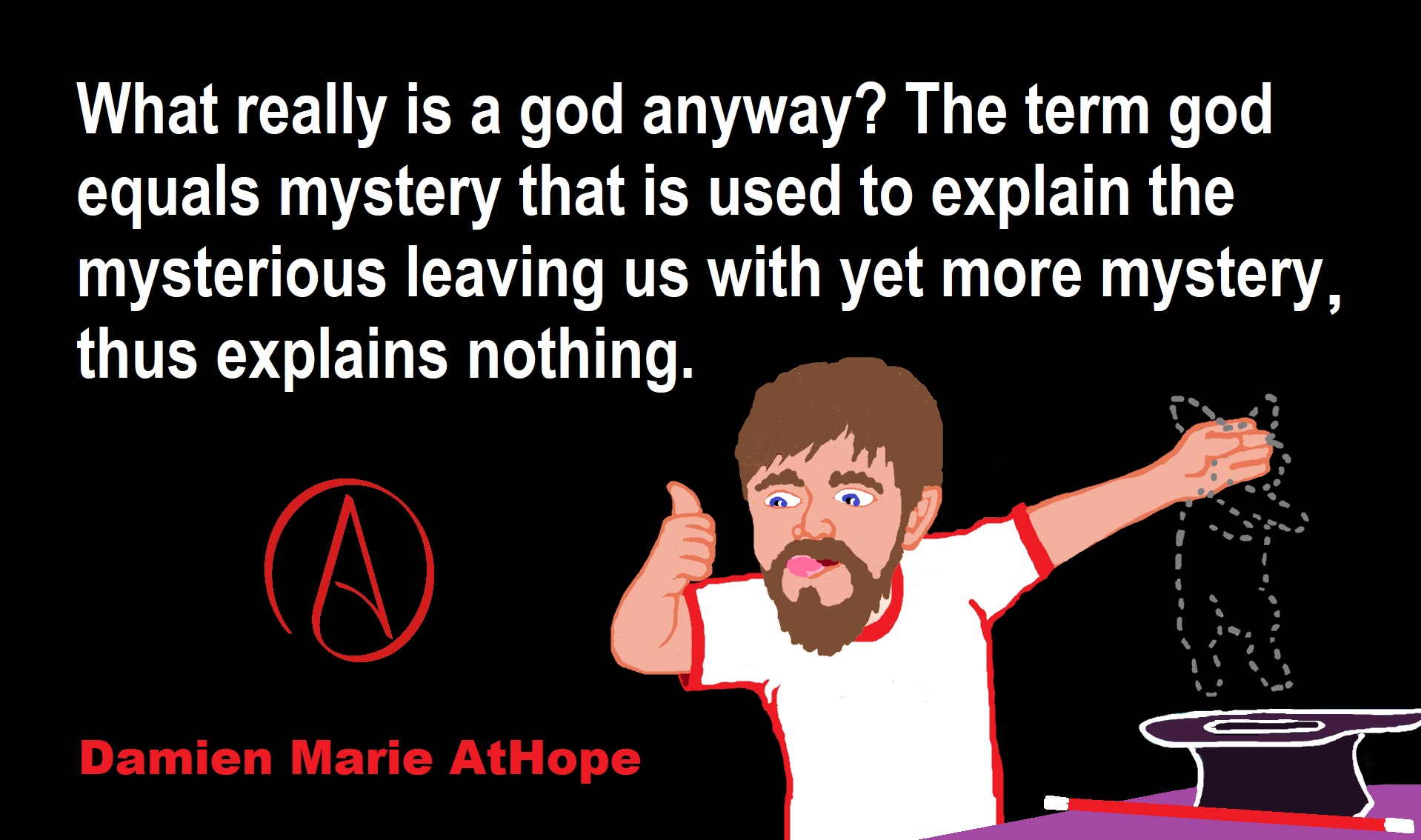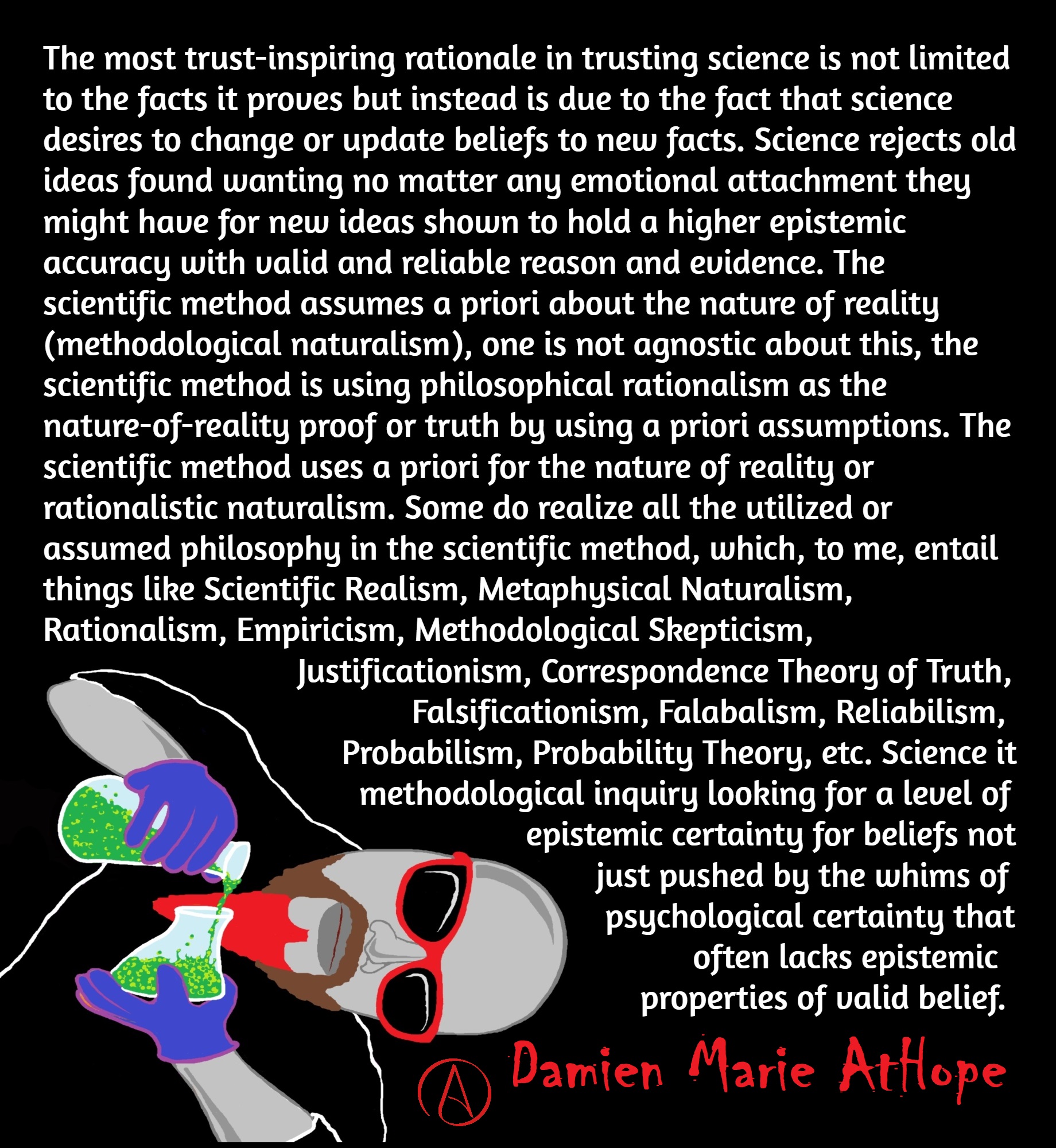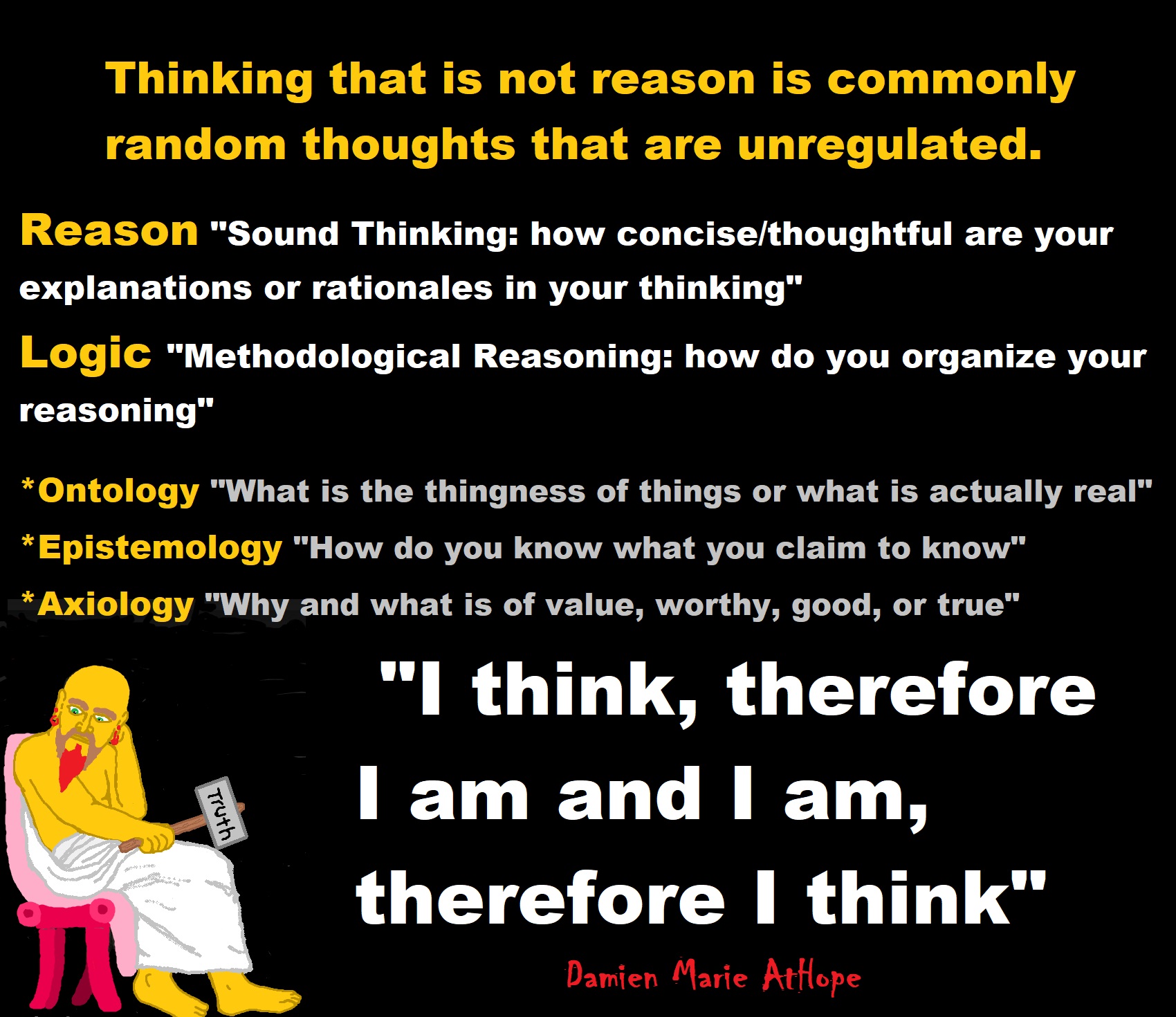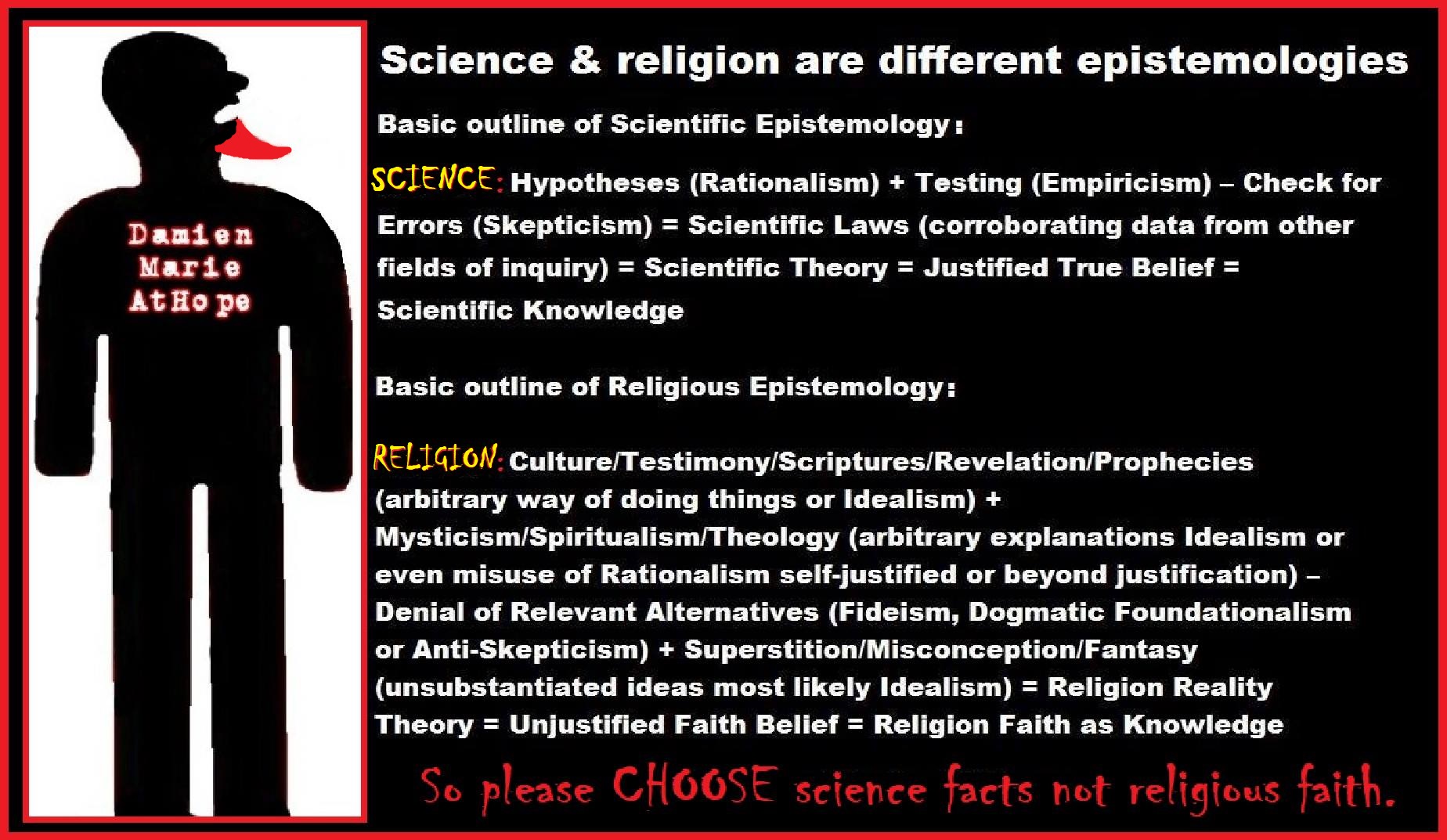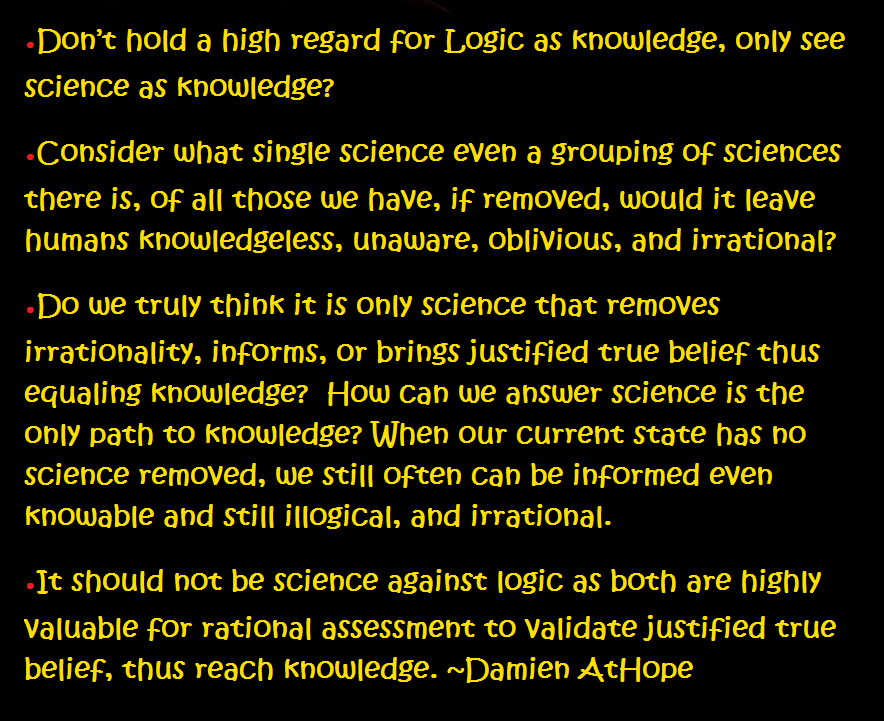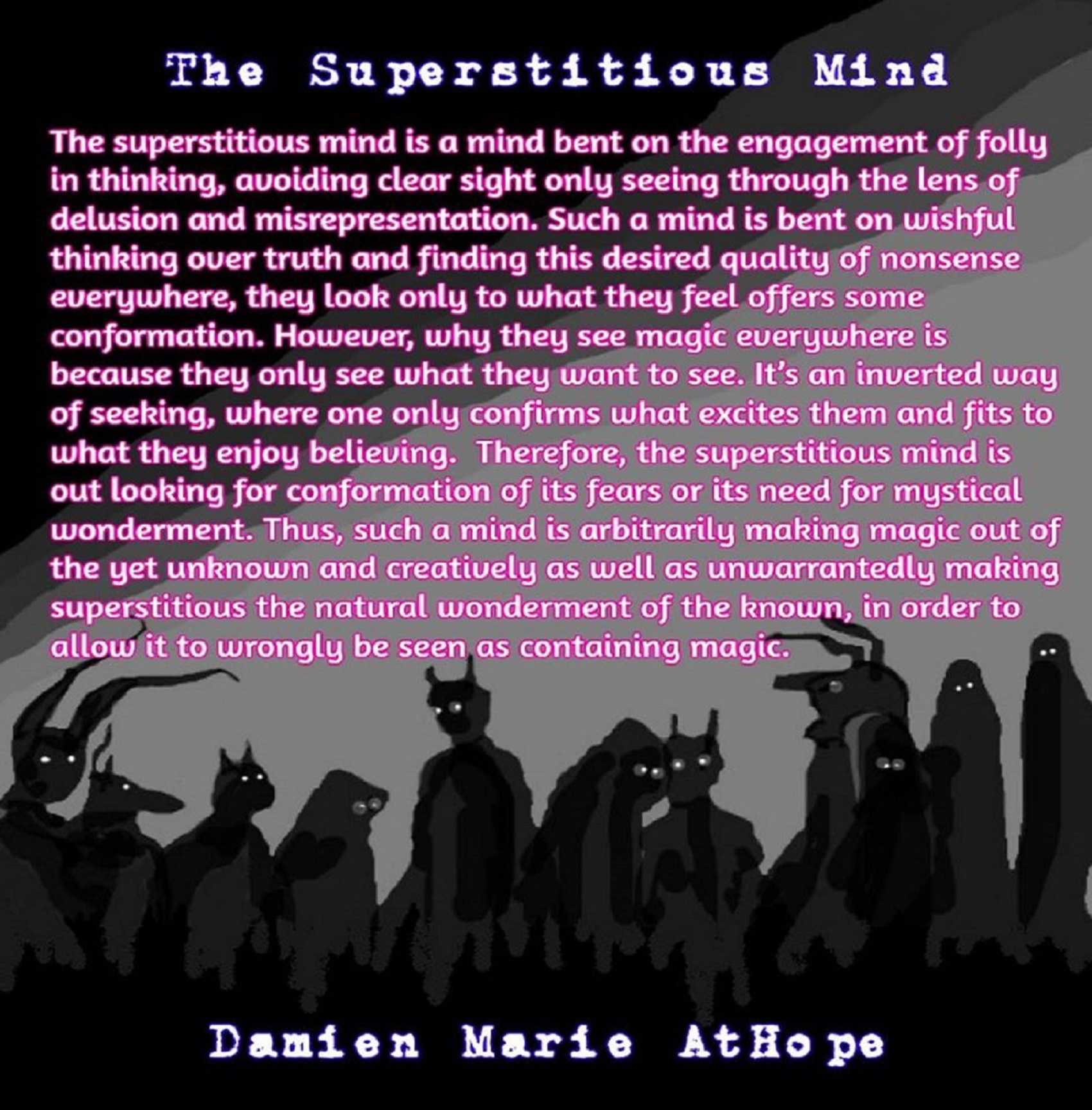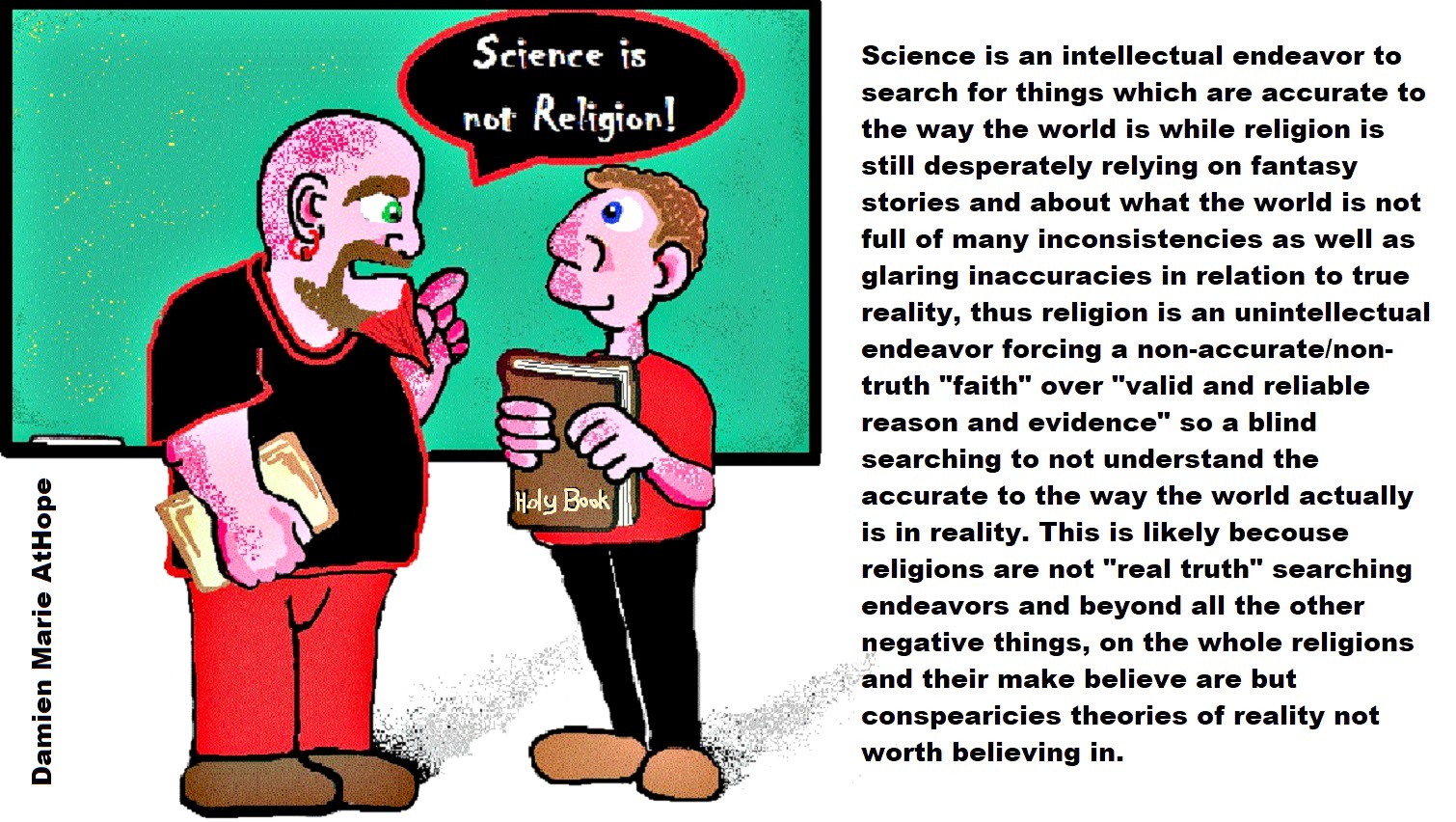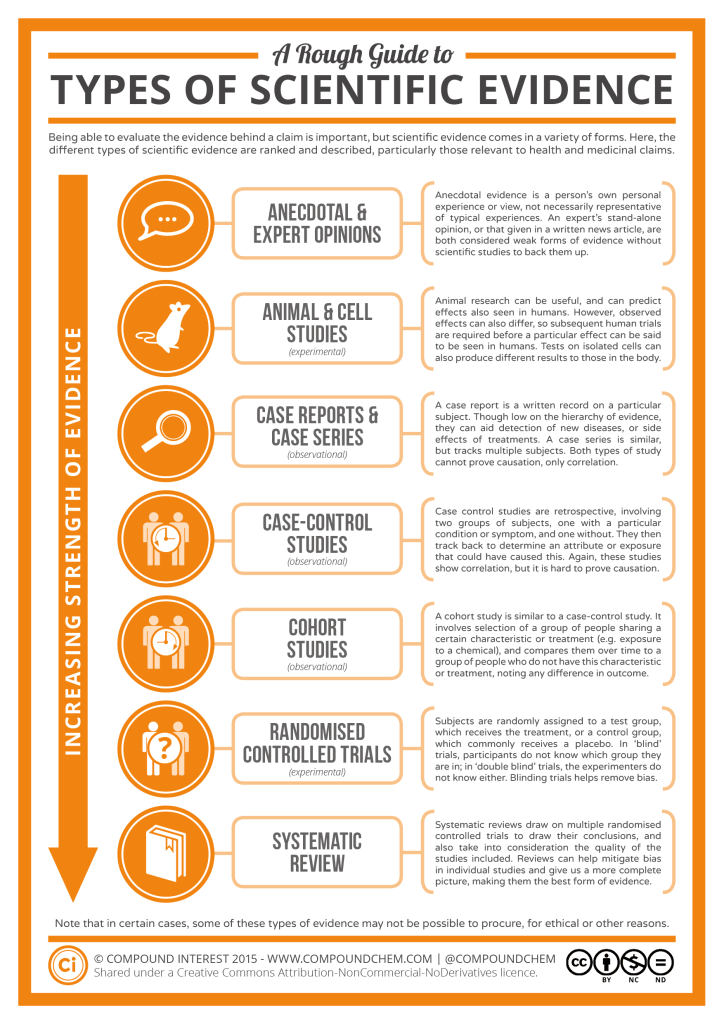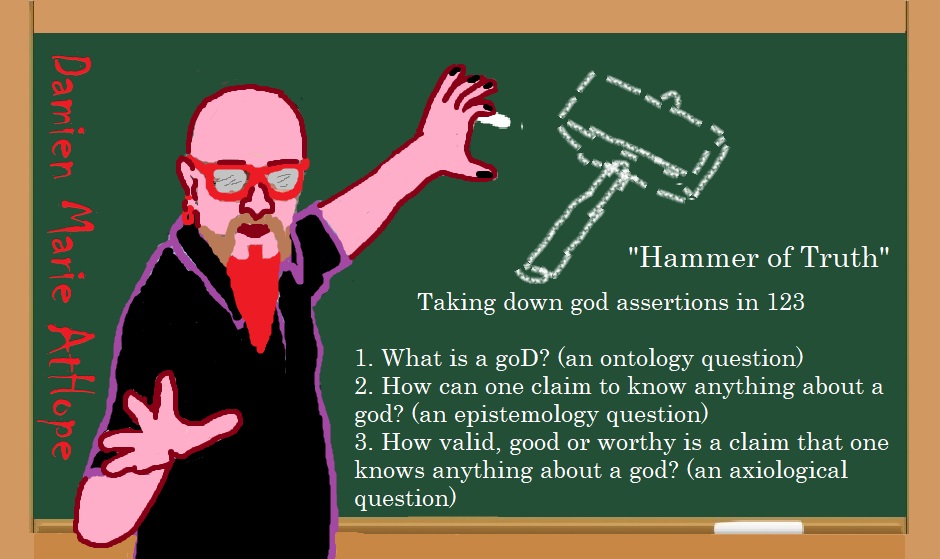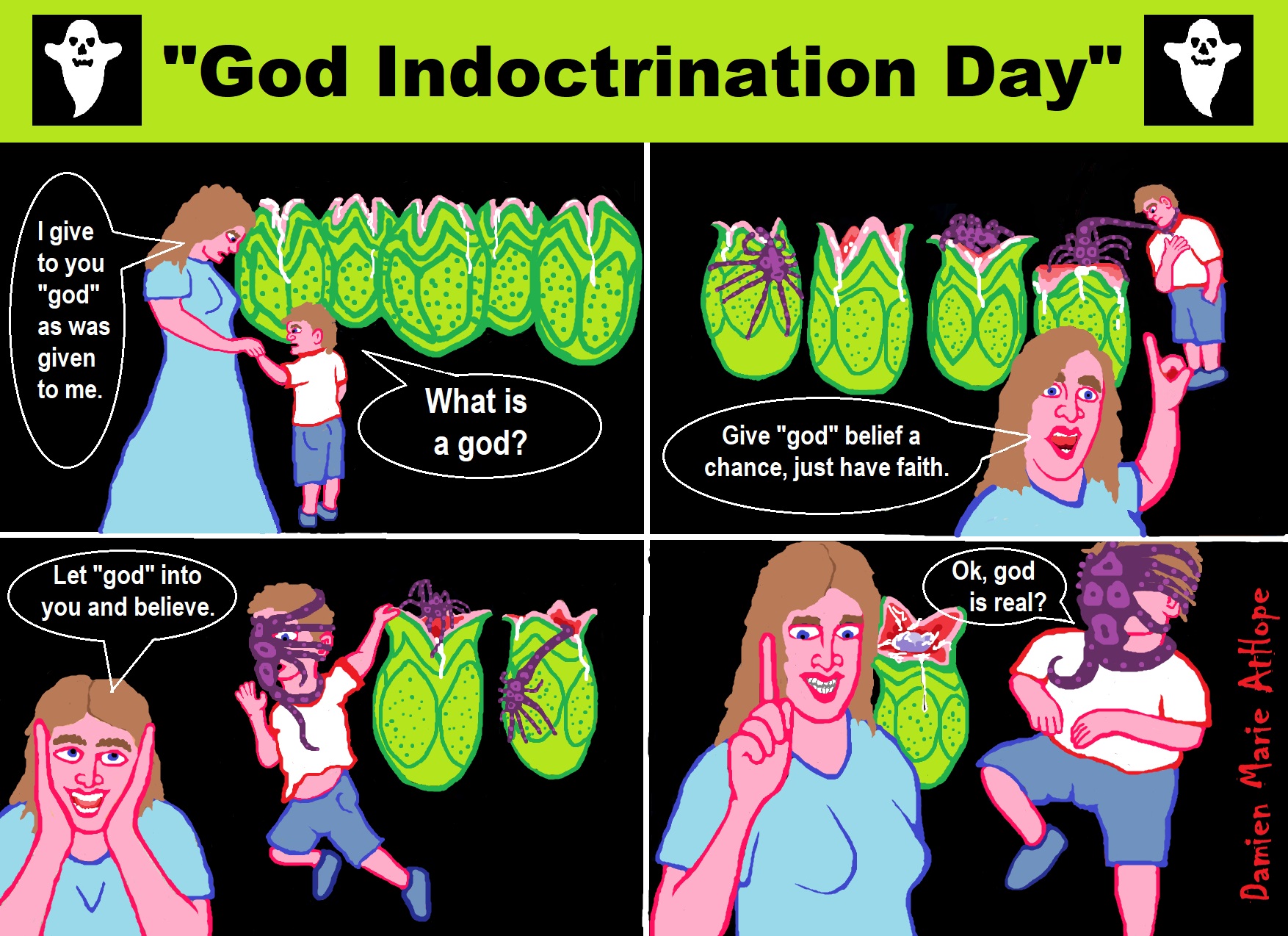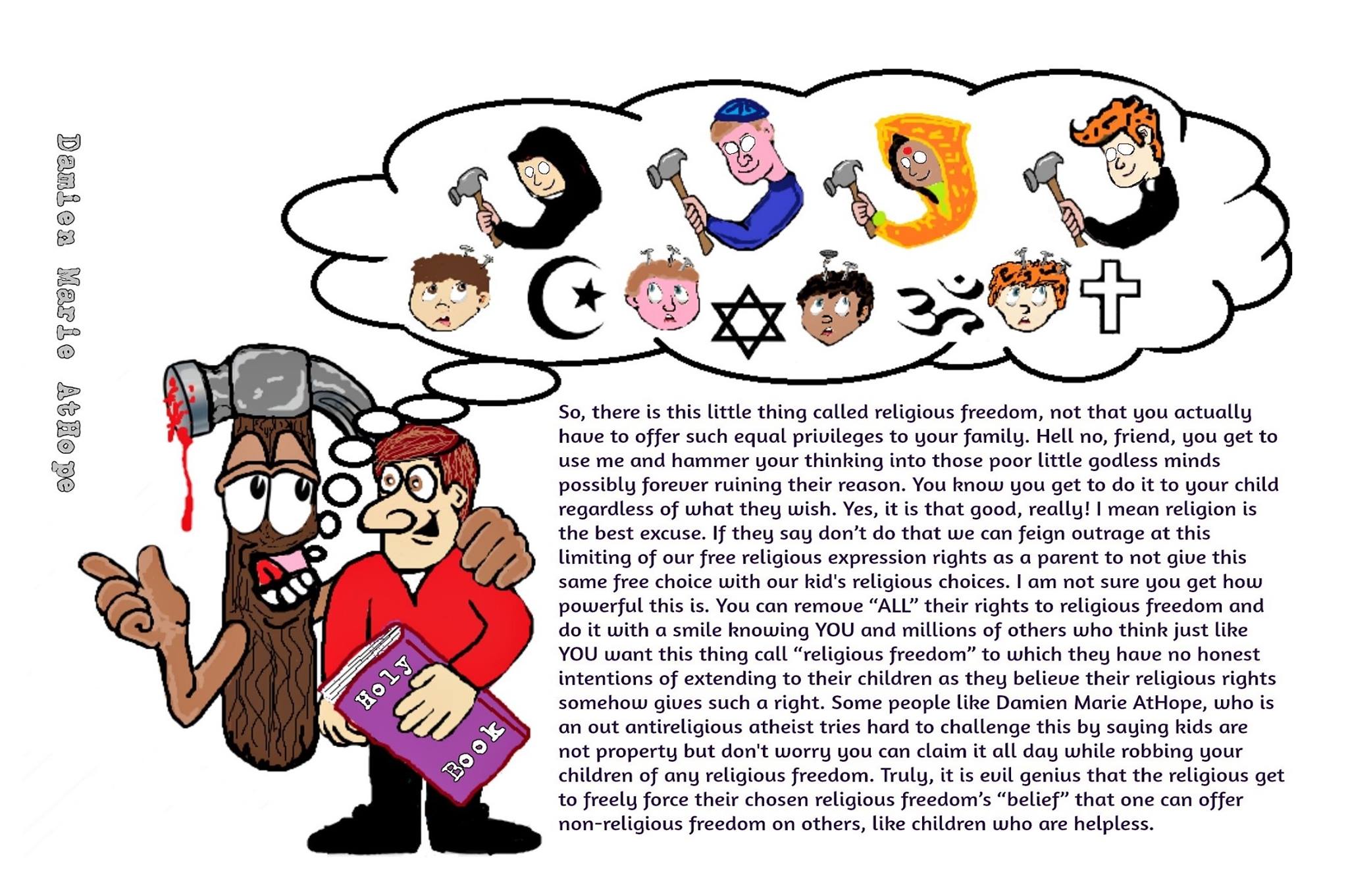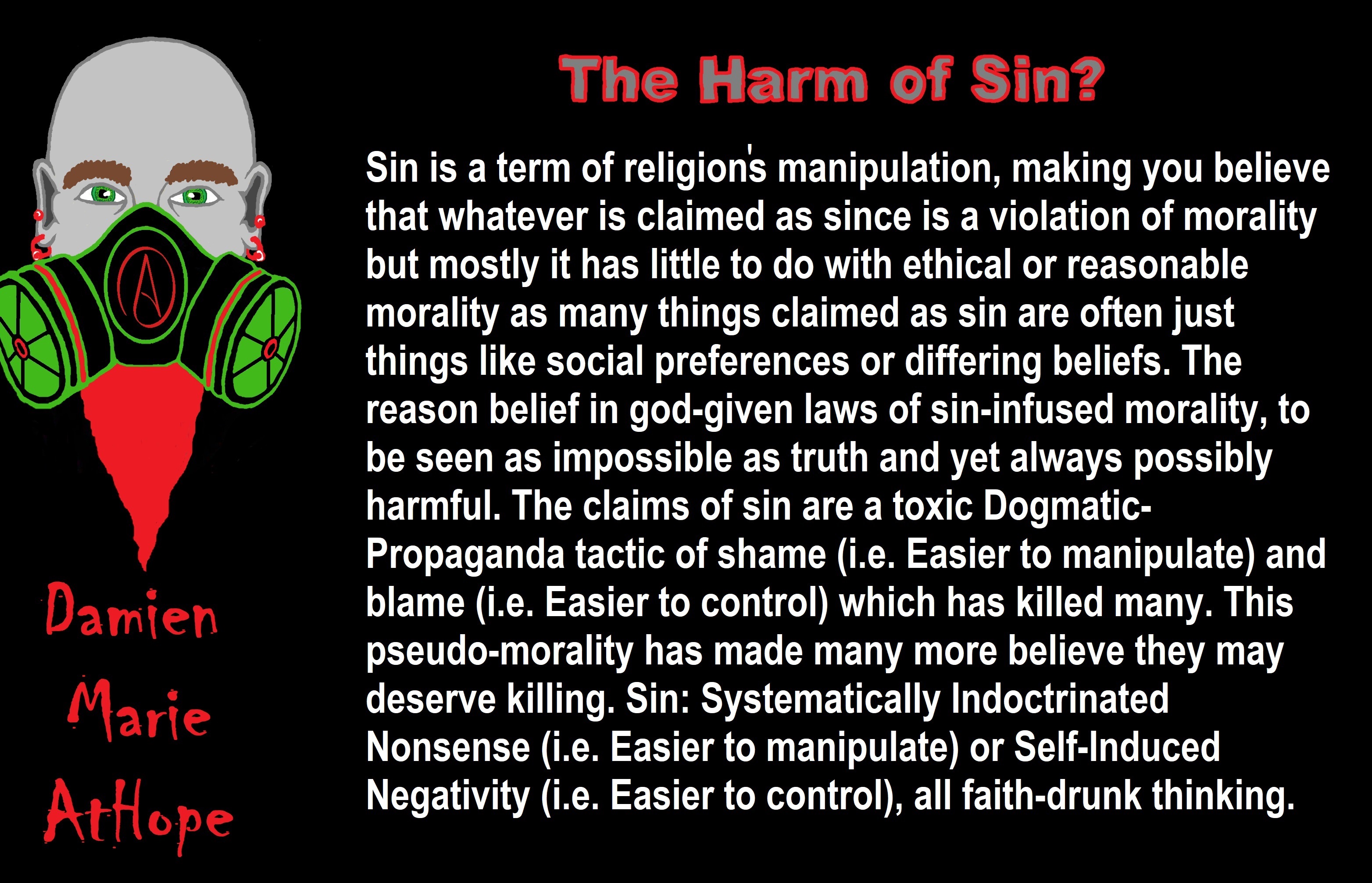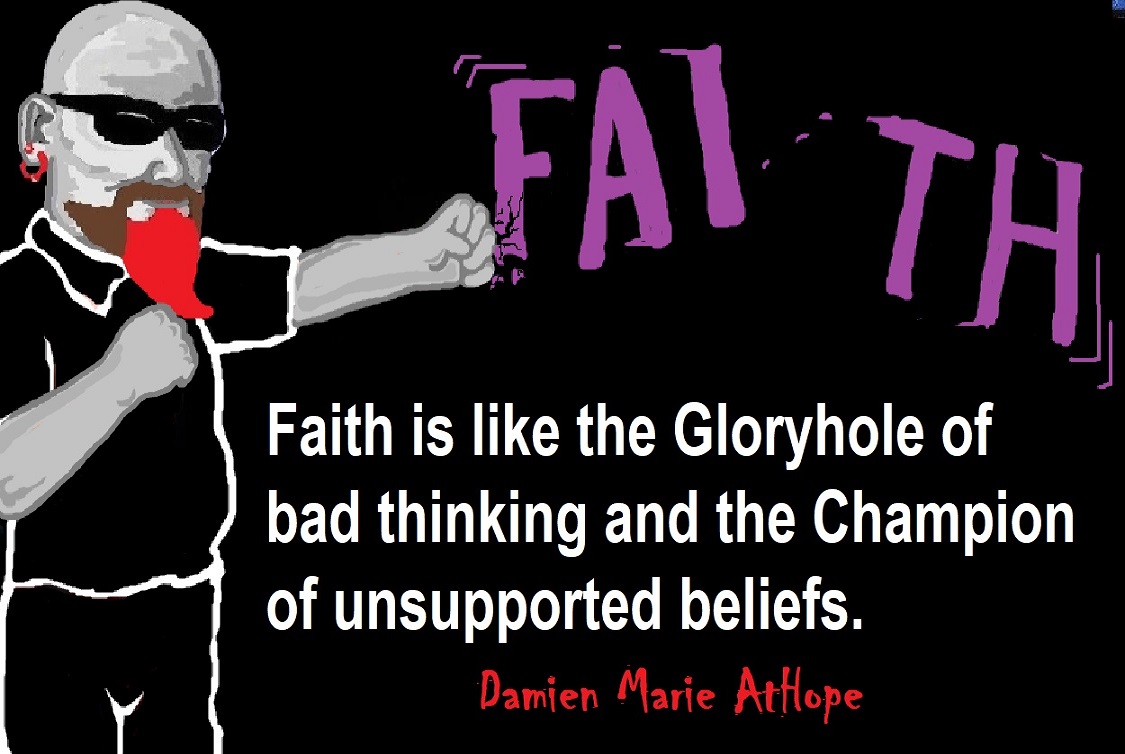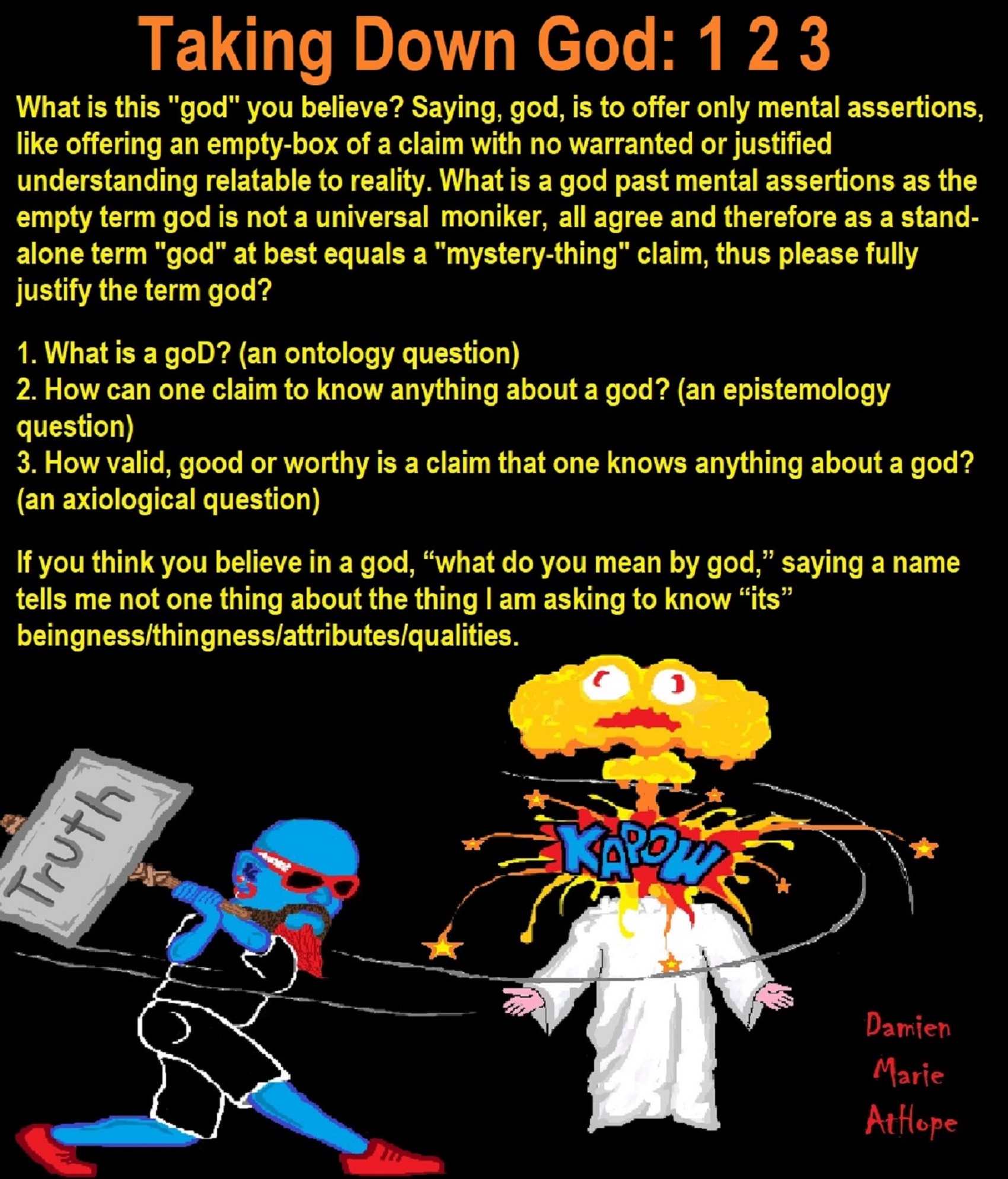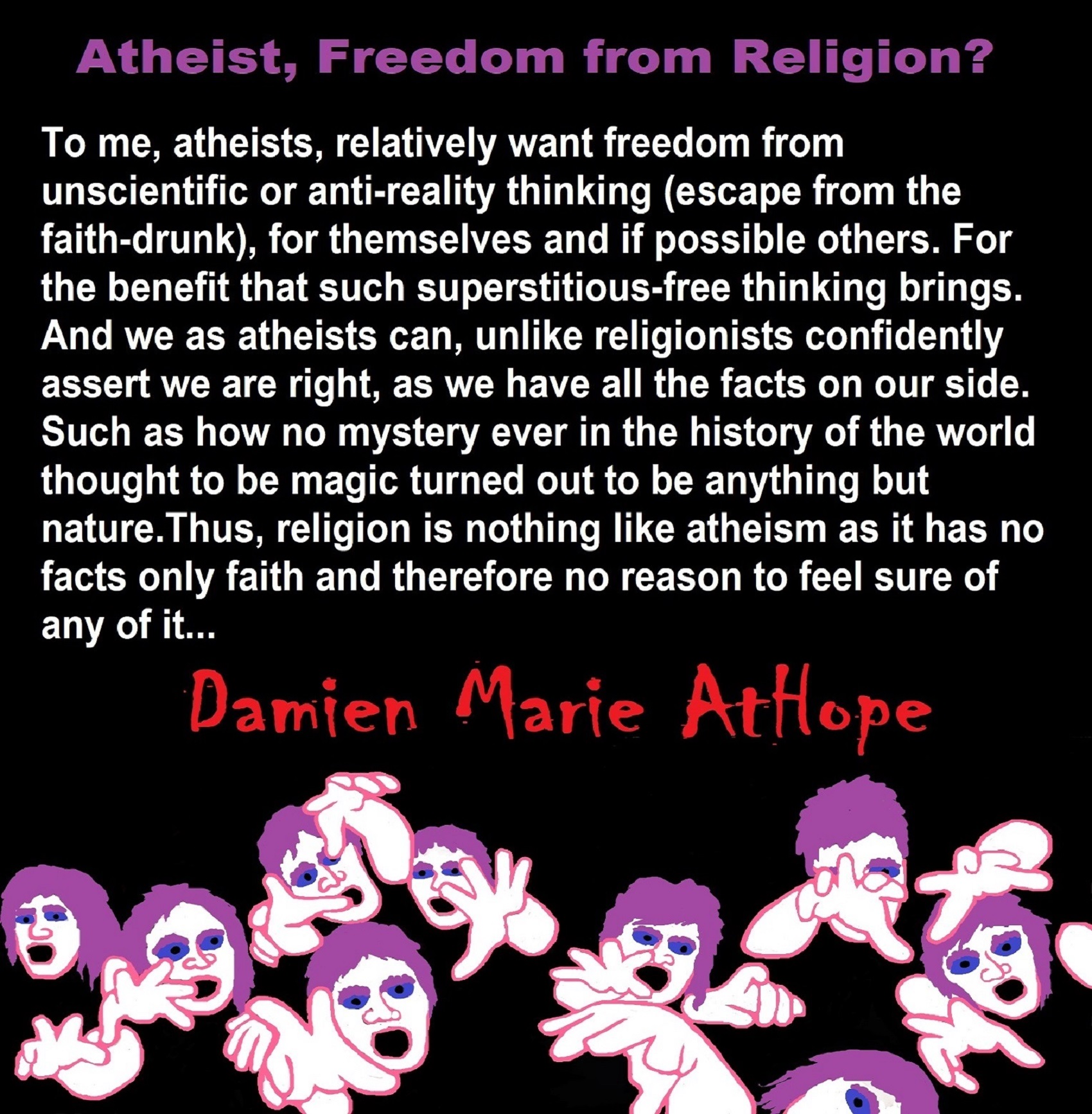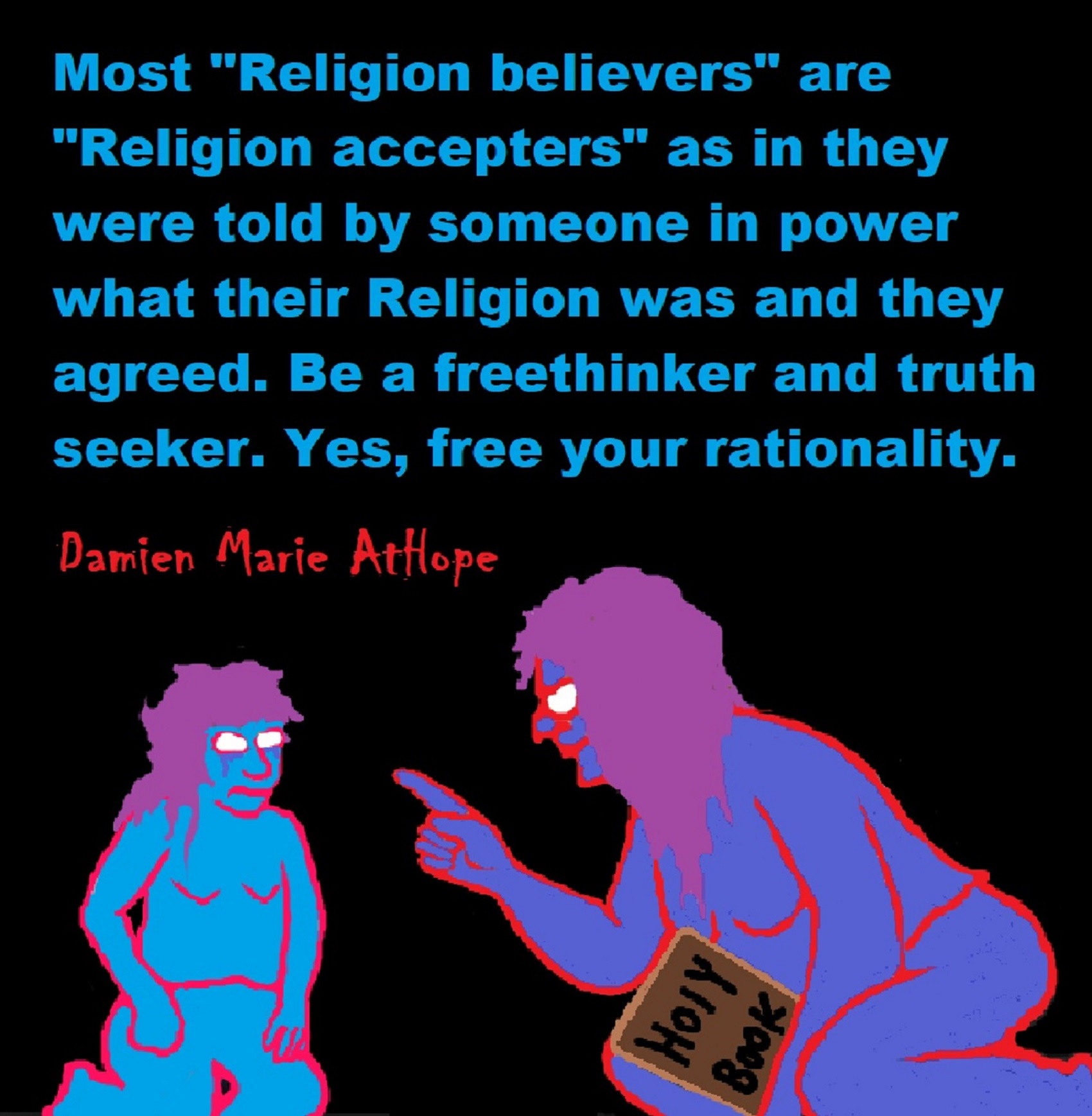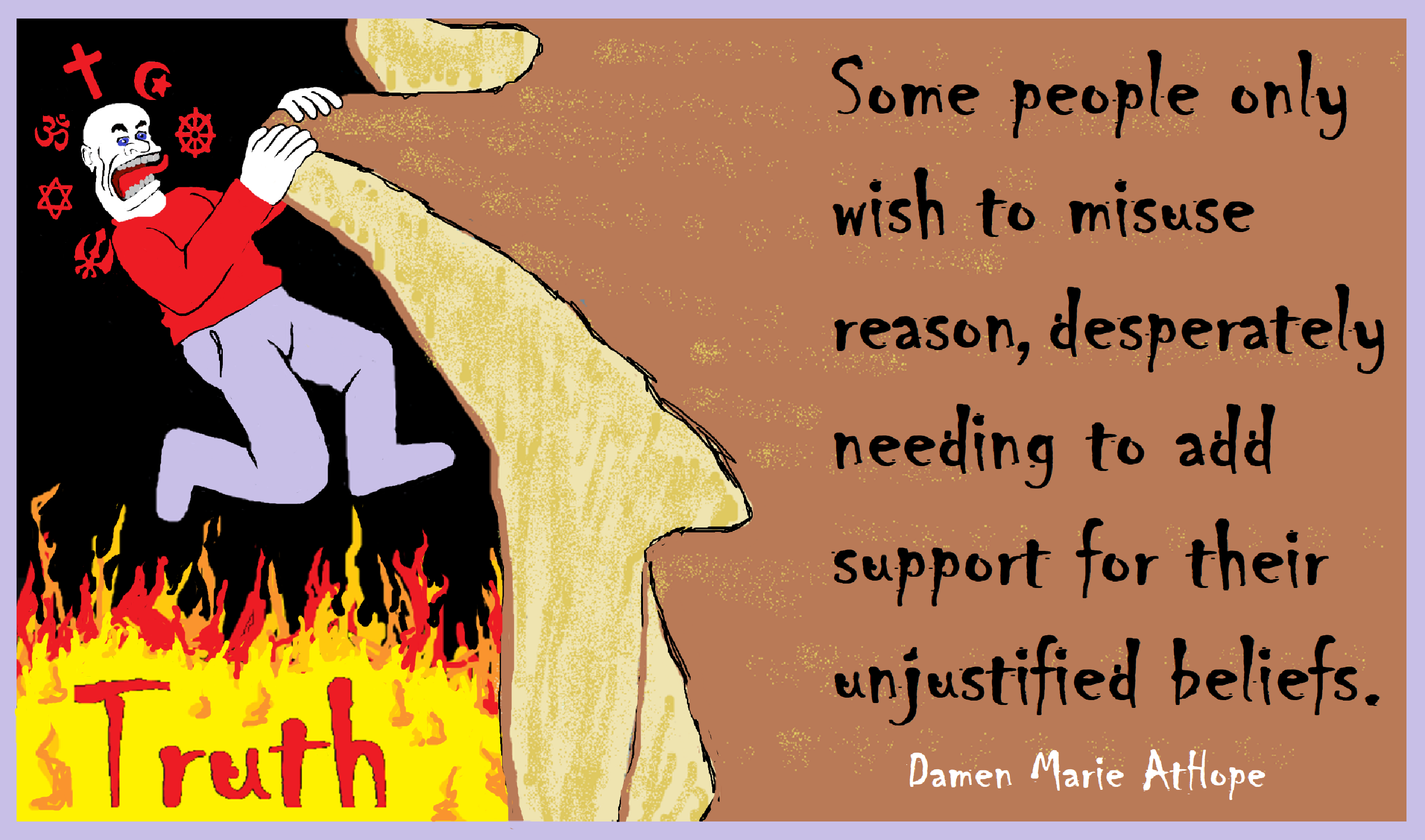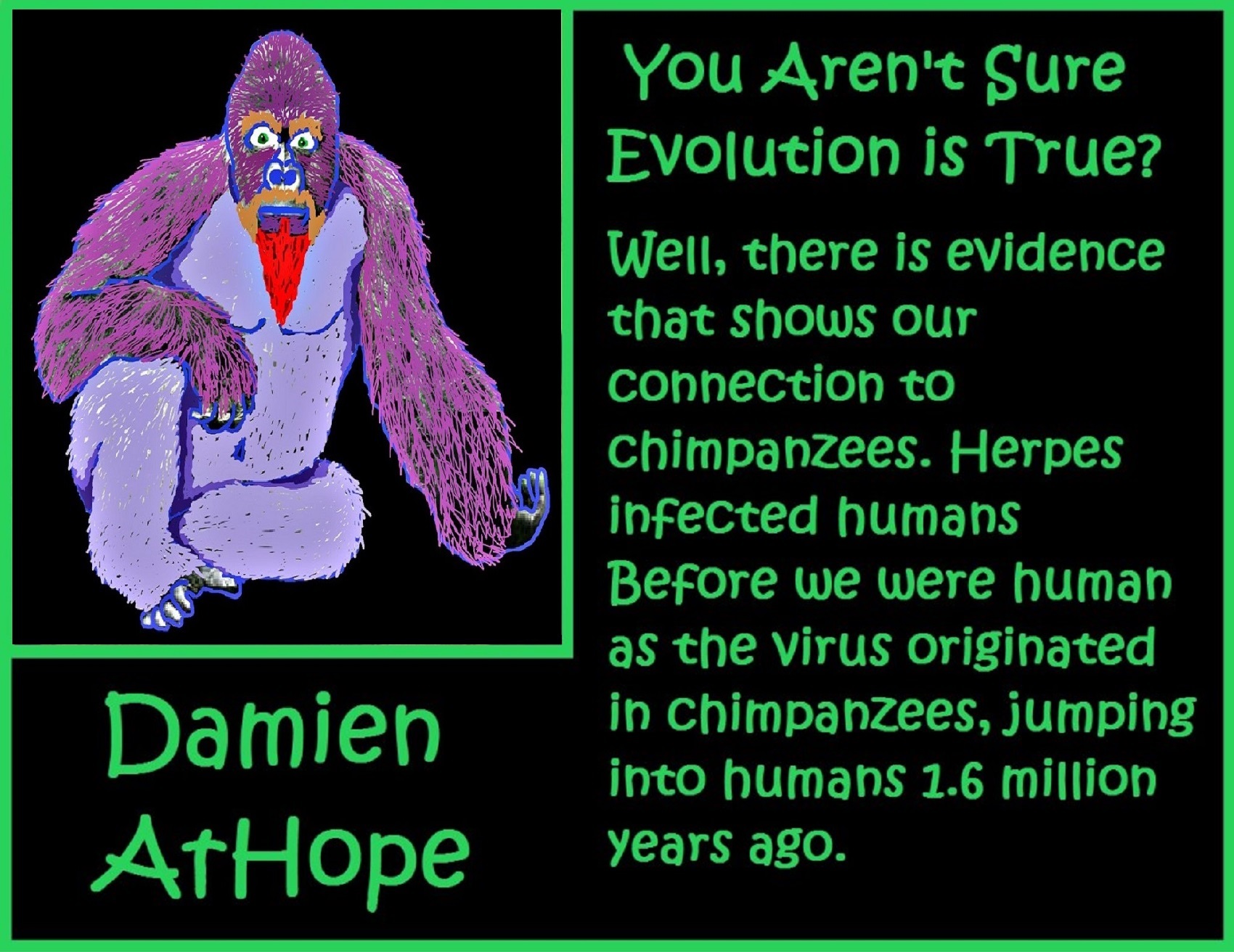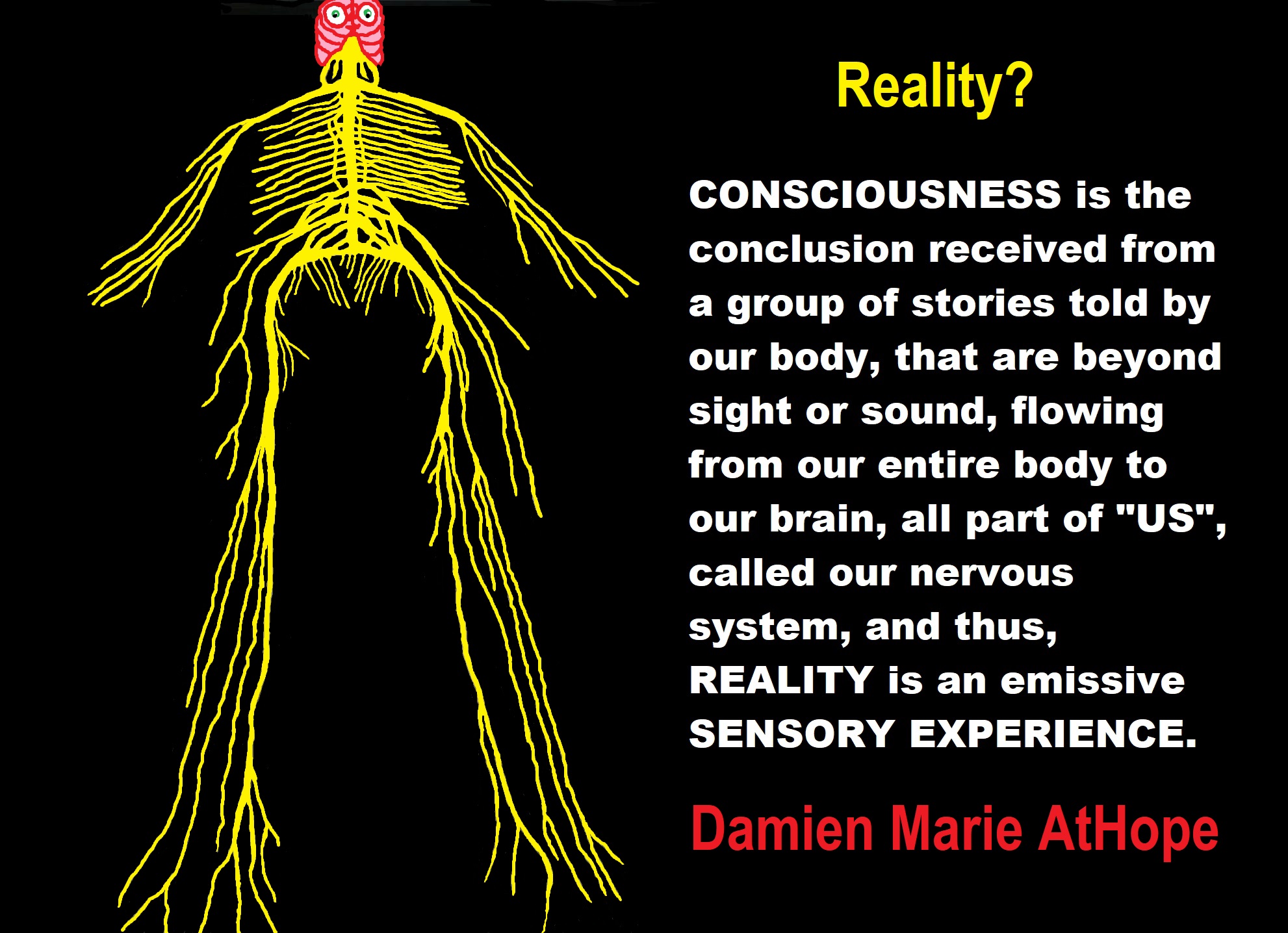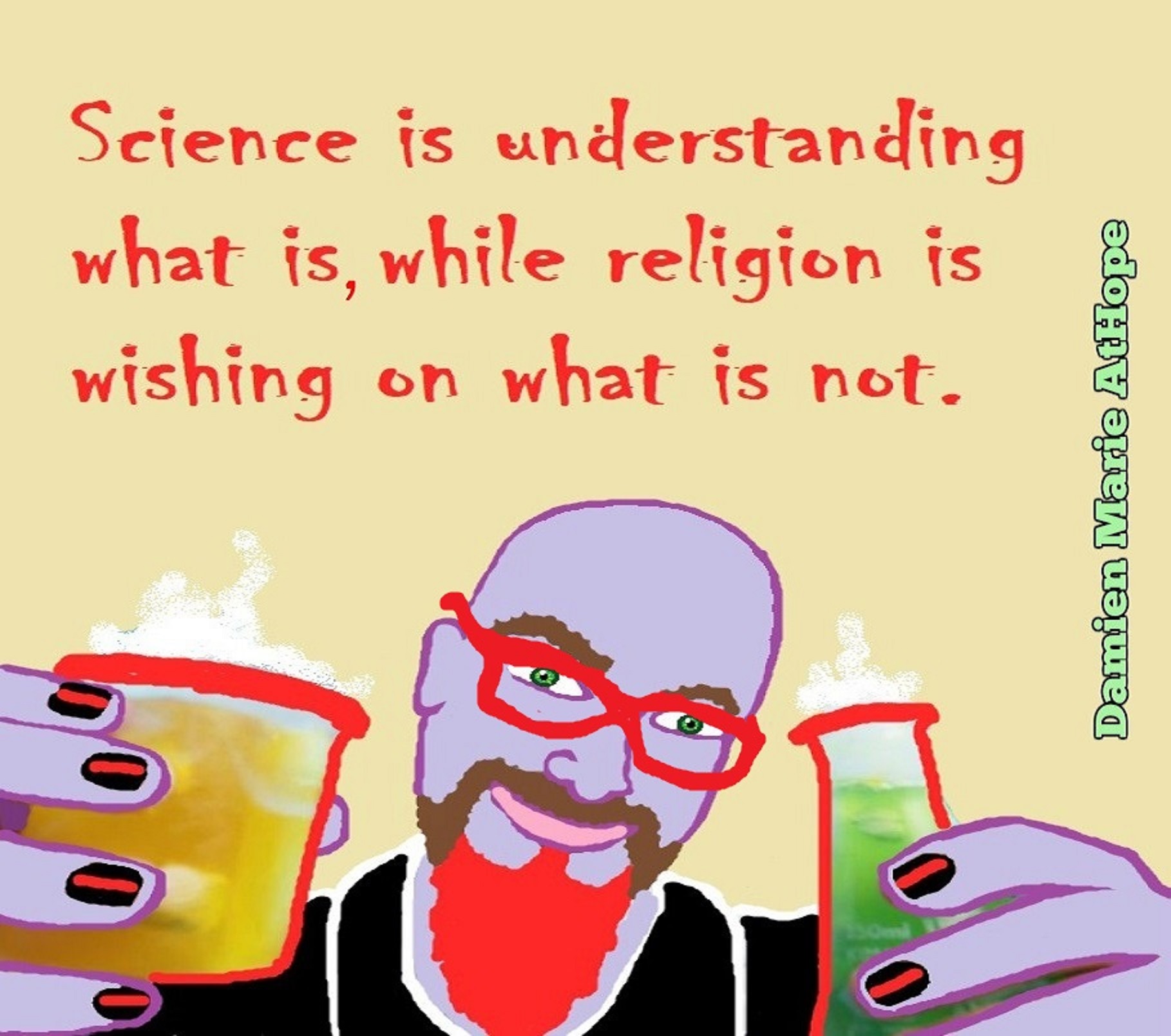
Scientific Misinterpretations Promote Relativism
I reject the notion that humans are born with the inclination for Religion. Rather, we are born with a superstitious Animism thinking mind until the age of about 7 years old and it is out of this child-like daydreaming that Religion emerges with the help of people desiring to control. And we need to stop seeing faith as a virtue, it is a vice. Faith is like the Gloryhole of bad thinking and the Champion of unsupported beliefs.
“The universe doesn’t care about anyone, no lives matter to the universe.”
Well, the universe can’t assess worth or value (axiology), thus, has no way to care in the first place. So, it’s an interesting but invalid argument concerning assessment of human being life value, which is a mental action that is required for making such a axiological judgment, which the universe doesn’t have. It’s like saying a tree or rock does not love us, thus, there is no such thing as love, an equivalent invalid argument.
The scientific process is the most effective method humans have for learning about the natural world. Science is a body of knowledge, but it is also a process. Science is an exciting and dynamic process for discovering how the world works and building that knowledge into powerful and coherent frameworks. “The Scientific Method” is a term often conceived as a simple way to understand the basics of scientific testing. In fact, the Scientific Method represents how scientists usually write up the results of their studies (and how a few investigations are actually done), but it is a grossly oversimplified representation of how scientists generally build knowledge. The process of science is exciting, complex, and unpredictable. It involves many different people, engaged in many different activities, in many different orders.
The reason many like to promote misinterpretations of scientific abilities to reach objective knowledge, objective reality, and objective ontological truths is when relativism or subjectivism reality seems possible it opens gaps in truth and often, allowing the addition of magic in the gaps. However, science is largely a way to ensure accountability for factual claims. A scientific theory is merely a way of organizing ideas that makes sense from evidence of the world. Scientific methods are merely ways of rejecting or supporting factual claims that emerge from theories. Therefore, some still say but “everything is relative.” I see this as a common statement of people who are over impressed by scientific misinterpretations or ones who are not holding to scientific realism, especially those prone to self-serving biases and who disregard the correspondence theory of truth. Any view explicitly embracing the idea that truth consists in a relation to reality is following some amount of the correspondence theory of truth. Thus, such truth is a relational property involving a characteristic relation to some portion of reality. However, people with scientific misinterpretations or scientific antirealism points of view may try to say, “Even Albert Einstein’s theory of general relativity demonstrates that everything is relative.” Wrong, the theory of general relativity is not an example of relative or subjective truth. It is objective knowledge about objective reality and is a set of objective ontological truths that gravity associated with any mass will curve the very space and time around it.
Some seem to work hard to add equivocation or doubt such as saying, “Ok, evolution is a great theory for predicting the properties of organisms, but no theory is guaranteed to be correct.” Unless, the predictions can be tested by scientific methods, progress grinds to a halt. Why do many people actually believe such nonsense and proudly make such declarations while supposing they are on solid philosophical ground and allegedly supported by science? Sadly, too many do and what makes matters worse is that a significant number of scientists and others sufficiently well trained in science do not make the effort to correct people of the faulty notion that science supports relativism. However, Albert Einstein was a scientific realist! In fact, his theory actually supports realist thinking, which is an objective perspective concerned with observation because it insists upon recognizing the reality of a thing or event observed, despite the differing “perspectives” of the observers regarding when the event occurred. Instead of claiming that everything is relative, Einstein’s theory demonstrates the objective nature of the universe despite the relative position of one observer compared to another. Creationism fails as a theory in part because it is so unhelpful and does not offer any predictions. It is not a science; it is simply an unfounded claim. By contrast, natural selection thinking delivers very specific predictions such as “infanticide should be expected primarily in three situations.” The predictions might be right or wrong, but at least they tell us what to look for. When a detailed prediction is confirmed, it provides support for the theory that issued the prediction is never decisive and only cumulative. However, it becomes more decisive the more the demonstrates a connected reproducibility. Furthermore, creationism is recklessly decisive without reliability and validity.
Einstein’s broader theory of relativity told us more about how the universe works and helped to lay the foundation for quantum physics, which connects, to Heisenberg’s Uncertainty Principle, which states that it is impossible to simultaneously know, with a high level of precision, two properties of a particle. This was made clearer in a concept known as wave-particle duality, which has become a cornerstone of quantum physics. Therefore, when we measure an electron’s position, we are treating it as a particle at a specific point in space with an uncertain wavelength. When we measure its momentum, we are treating it as a wave, meaning we can know the amplitude of its wavelength but not its location. Thus, even quantum mechanics never say the universe is not following any laws, it just says that the laws are different from what our common sense suggests. Reality is an aggregate of trillions of quantum effects with many interacting particles which can eventually get one definite answer that is very Very VERY often from a logical cause. Currently, it is hard for us to make sensors that reliably work at that level and is fast and accurate enough to get to definite answers from logical causes. This confusion is likely some of what fuels the debates about scientific realism which is centrally connected to almost everything else in the philosophy of science for they concern the very nature of scientific knowledge.
Scientific realism is a positive epistemic attitude towards the content of our best theories and models, recommending belief in both the observable and unobservable aspects of the world described by the sciences. This epistemic attitude has important metaphysical (explains the fundamental nature of being and the world it encompasses) and semantic dimensions and these various commitments are contested by a number of rival epistemologies of science, which are known collectively as forms of scientific antirealism. Scientific realism is part of the philosophy of science, which holds that there is truth or approximate truth of scientific theories or certain aspects of scientific theories. Some define it in terms of the successful reference of theoretical terms to things in the world, both observable and unobservable. Others define scientific realism not in terms of truth or reference, but in terms of belief in the ontology (study of the nature of being, existence, or reality) of scientific theories. What all of these approaches have in common is a commitment to the idea that our best theories have a certain epistemic status which is they yield knowledge of aspects of the world that includes unobservable aspects. Another way to think about scientific realism is in terms of the epistemic aims of scientific inquiry. That is, some think of the position in terms of what science aims to do: the scientific realist holds that science aims to produce true descriptions of things in the world, approximately true descriptions, or ones whose central terms successfully refer, and so on. There is a weak implication here to the effect that if science aims at truth and scientific practice is at all successful, the characterization of scientific realism in terms of aim may then entail some form of characterization in terms of achievement. There are reasonless belief systems that support faulty interpretations of both the theory of relativity and quantum physics, which continue to gain ground and influence a large portion of the world. When you have a culture that increasingly looks at science as the last word on just about everything, you have at least one potent prescription among many for developing a mentality that can and does easily find favor with many evils.
If “everything is relative,” how much easier is it to declare that dharma and karma could be real? Indeed, if “everything is relative,” then anything goes and can be “justified” by the appeal to “relativity supported by science.” Moreover, if “nothing is real,” then why not just let people do whatever they want to do or say whatever they want to say without ever challenging them? Of course, if you just happen to live in and recognize the real world where nothing is relative, then you will do what you can to prevent such misinterpretations of science from further corrupting minds too easily susceptible to accepting nonsense wrapped in pseudoscientific garb. A good start is to promote the understanding that many people, including scientists, frequently misinterpret and/or exaggerate scientific findings to make proclamations about things that legitimate science does not support. Beyond that, grounding oneself and others in realist philosophies will also help prevent nonsense claims from gaining more devotees. Legitimate science is a fine servant of truth, but faulty misinterpretations of science only serve the enemy of truth and should be exposed and resisted in defense of the truth.
A common misconception is that “hard” sciences are more rigorous and quantitative in their methods than “soft” sciences and so are more trustworthy. In fact, the rigor of a scientific study has much more to do with the investigator’s approach than with the discipline. Many psychology studies, for example, are carefully controlled, rely on large sample sizes, and are quantitative and tests are designed, often rigorously regardless of discipline. Often “hard” and “soft” sciences actually complement each other or assist in supporting scientific ideas in unison, which makes them even more trustworthy. Some scientific ideas are so well established and supported by so many lines of evidence that they are unlikely to be completely overturned. However, even these established ideas are subject to modification based on new evidence and perspectives. To the contrary, religions are fond of rejecting new ideas, evidence for old perspectives even if they lack evidence, or contradict new evidence. Religions have a way of departing from factual scientific realism in their drive toward reasonless belief systems that support some supernatural magic unfused realism, non-realism, or anti-realism. The departures are by no means restricted to belief in supernatural agents. When the main purpose of a belief system is to provide a blueprint for controlled thinking and actions, all aspects of factual reality is fair game.
Many scientific theories of the past became weirdly implausible with the passage of time, just like religions. When this happens, even in science, they are often revealed as not just wrong but as willfully purpose-driven. In general, some of the saddest examples and of concern are the flawed and bigoted scientific theories that support conventional beliefs about the role of women in society or the devalued perception of women. In the nineteenth century, revered scientific wisdom would interfere with ovarian development of women. Similarly defaming was how many naturalists considered it scientific proof that an exhibit of native Khoikhoi women of Southwestern Africa, who were labeled “Hottentot venus” because of their enlarged genitalia and buttocks, were a primitive link between mankind and animals and possibly not even fully human. The exhibit also became the basis for the theory that African women were wildly hypersexual and had larger birth canals than other women, which enabled them to give birth with ease. Slave owners, who used it to justify forcing black women to work while heavily pregnant and sending them, back to work immediately after giving birth, seized upon the theory.
Furthermore, the defaming theory of Maternal Impression, an old belief that a mother’s thoughts while pregnant can impart special characteristics on the child in her womb. For many years, this idea was used to explain congenital disorders and birth defects. Maternal Impression was used to explain the disorder suffered by the Elephant Man: it was suggested that an elephant frightened his mother while she was pregnant with him thereby imprinting the memory of an elephant on her child. Depression was also explained in this manner. If a mother had moments of strong sadness during pregnancy, it was believed that her child would ultimately suffer from depression in later life. The Genetic Theory caused almost complete eradication of this belief in the 20th century. As late as the 1970s, women were barred from running marathons because it was thought that running more than a few miles would damage their bodies. We can criticize these theories today as just plain wrong, but only because they were rejected by objective judgment of factual evidence that confirmed objective knowledge and objective truth.
Religion and its theories are just plain wrong and often just stick around, but only because they are not rejected and often even supported by subjective judgment of nonfactual evidence confirming their subjective pseudo-knowledge and subjective pseudo-truth. These and other subjective pseudo-belief systems, even if not classified as religions, are unreasonable because they invoke supernatural agents or agency and sometimes thinking these pseudo-belief systems are supported by quantum quackery. When evaluated in terms of factual and scientific realism, proponents of quantum quackery are just like religions. In all cases, they function primarily as blueprints for scientific misinterpretations, promote subjectivism or relativism, along the way depart from factual realism, and still may fallaciously claim to have objective judgment of factual evidence confirming objective knowledge and objective truth. Science replaces old ideas for new ones when warranted. Whereas religion suppresses new ideas for their old ideas, even if the new ideas are warranted. Do not let them fool you, quantum mechanics is not magic, and Quantum Quackery with the presence or absence of supernatural agents or agency are a departure from factual realism and objective judgment of factual evidence that confirms objective knowledge and objective truth.
By Damien Marie AtHope
References 1, 2, 3, 4, 5, 6, 7,
8. Wilson, D.S (2007). Evolution for Everyone: How Darwin’s Theory Can Change the Way We Think About Our Lives. Random House Publishing Group. New York, NY. Kindle Edition.
I am a caring firebrand axiological atheist, wishing to be hard on ideas but kind to people.
To me, Science is a multidisciplinary methodological quest for truth.
The most trust-inspiring rationale in trusting science is not limited to the facts it proves but instead is due to the fact that science desires to change or update beliefs to new facts. Science rejects old ideas found wanting no matter any emotional attachment they might have for new ideas shown to hold a higher epistemic accuracy with valid and reliable reason and evidence. The scientific method assumes a priori about the nature of reality (methodological naturalism), one is not agnostic about this, the scientific method is using philosophical rationalism as the nature-of-reality proof or truth by using a priori assumptions. The scientific method uses a priori for the nature of reality or rationalistic naturalism. Some do realize all the utilized or assumed philosophy in the scientific method, which, to me, entail things like Scientific Realism, Metaphysical Naturalism, Rationalism, Empiricism, Methodological Skepticism, Justificationism, Correspondence Theory of Truth, Falsificationism, Falabalism, Reliabilism, Probabilism, Probability Theory, etc. Science it methodological inquiry looking for a level of epistemic certainty for beliefs not just pushed by the whims of psychological certainty that often lacks epistemic properties of valid belief. Facts and proof like “truth” statements about Science imply a level of epistemic certainty and all three words to non-scientists or religious believers can mean different things to different people, which favors only psychological certainty with little relation to imply a real level of epistemic certainty on most things claimed as religionist favor faith (generally Fideism “faithism” or to me faith drunk thinking) not real facts to support beliefs. Therefore, let me explain that in a general way proof and facts are truths, just as assertions of knowledge, as well as certainty, are epistemic properties of belief. Moreover, science and as you must know does not have one universal standard in science but for methodological processes and a value for the scientific method in the relation to the philosophy of science especially against my side the scientific realists (the majority of scientists whether they know it or not) against the instrumentalists or anti-realist science thinkers who seem to be promoting what is not generally the norm of science.
“Most scientists would object to the word “truth”, btw.” – Challenger
My response, And I would explain why it is of truth. Like evolution. Many scientists and philosophers of science have described evolution as fact and theory. A fact is a piece of evidence evaluated as truth.
“There is no truth at the end of any scientific method – rather, a better understanding of how things work. Some of us might use the word “truth” to imply certainty but a great many people, the ones you argue with, use it in a universal way that doesn’t reflect the reality that we understand through science. I guess what I’m saying is that it’s difficult to argue with believers once you start using the word “truth” because it means different things to different people.” – Challenger
My response, Well, facts and proof like “truth” to imply a level of certainty and all three can mean different things to different people, so. Therefore, proof and facts are truths and you are now making truth statements about truth and science and as you must know there is not one universal standard in science in the relation to the philosophy of science especially against my side the scientific realists (the majority of scientists whether they know it or not, just like you making truth statements seeming to say you don’t know truth) against the instrumentalists or anti-realist science thinkers as you seem to be promoting as the norm of science when it is no.
“Proof and fact are not truth. They imply repeatability, not certainty. There is a universal agreement of what the scientific method is and is not. You’ve completely muddled the original argument and have based your conclusions on incorrect assumptions.” – Challenger
Proof noun (dictionary.com):
- evidence sufficient to establish a thing as true, or to produce belief in its truth.
- anything serving as such evidence:What proof do you have?
- the act of testing or making trial of anything; test; trial:to put athing to the proof. http://www.dictionary.com/browse/proof
My response, Looks like “proof” is “truth.”
Fact noun (dictionary.com):
- something that actually exists; reality; truth: Your fears have nobasis in fact.
- something known to exist or to have happened: Space travel isnow a fact.
- a truth known by actual experience or observation; something known to be true: Scientists gather facts about plant growth. http://www.dictionary.com/browse/fact
My response, Looks like fact is truth.
“Your confirmation bias is showing.” – Challenger
My response, How quickly you try to make the arrangements about me and not proof of your thoughts. Lol
“So, screenshots are proof? I give up then! And, since when did an opinion need proof?” – Challenger
My response, Yes, you did not support your claims of truth about truth. Good thing you do not, I guess believe in supporting your burden of proof? Hammer of Truth: Yes, you too, have lots of beliefs…
The Burden of proof (philosophy) is the obligation on a party in a dispute to provide sufficient warrant for their position. When two parties are in a discussion and one makes a claim that the other disputes, the one who makes the claim typically has a burden of proof to justify or substantiate that claim especially when it challenges a perceived status quo. This is also stated in Hitchens’s razor. Carl Sagan proposed a related criterion, the Sagan standard, “extraordinary claims require extraordinary evidence”. While certain kinds of arguments, such as logical syllogisms, require mathematical or strictly logical proofs, the standard for evidence to meet the burden of proof is usually determined by context and community standards and conventions. Philosophical debate can devolve into arguing about who has the burden of proof about a particular claim. This has been described as “burden tennis.” One way in which one would attempt to shift the burden of proof is by committing a logical fallacy known as the argument from ignorance. It occurs when either a proposition is assumed to be true because it has not yet been proved false or a proposition is assumed to be false because it has not yet been proved true. A negative claim is a colloquialism for an affirmative claim that asserts the non-existence or exclusion of something. Saying “You cannot prove a negative” has been called pseudo-logic because there are many proofs that substantiate negative claims in mathematics, science, and economics including Arrow’s impossibility theorem. There can be multiple claims within a debate. Nevertheless, it has been said whoever makes a claim carries the burden of proof regardless of positive or negative content in the claim. A negative claim may or may not exist as a counterpoint to a previous claim. A proof of impossibility or an evidence of absence argument are typical methods to fulfill the burden of proof for a negative claim. – Wikipedia
- Folk Logic: YOU CAN’T PROVE A NEGATIVE because you can PROVE A NEGATIVE
- Objective and Subjective Logic?
- Grasping the status of truth (ontology of truth): pre-logic, logic, and post-logic?
My response, One must (Ethics of Belief) support their assertions. I enjoy taking with you. And, I am on my phone getting my nails done as why I am using screen capture.
“I still hold my original opinion – that most scientists would not use the word “truth” to describe the outcome of scientific methodology. I assume you’re referring to logical truth, but many believers have a different meaning of the word.” – Challenger
My response, “Scientific truth is based on facts.” Link And, “While philosophers talk about the coherence or correspondence theories of truth, the rest of us have to deal with another, more immediate, division: subjective, deductive (logical) and inductive (in this case, scientific) truth.” Link Moreover, Science does try to build true knowledge of how the world works, “Experiments determine scientific truth.” Link
Furthermore, “In science, “truth” is, by definition, a malleable and perfectly revisable thing. This is because scientists compile data into models of how natural systems work. As time passes, new data and perspectives are assimilated into the consensus and the models are adjusted accordingly. It’s the best we can do.” in science, truth is, by definition, a malleable and perfectly revisable thing. This is because scientists compile data into models of how natural systems work. As time passes, new data and perspectives are assimilated into the consensus and the models are adjusted accordingly. It’s the best we can do.” Link
In addition, “The nature of scientific truth. Explanations and theories that correctly predict new results from new observations or experiments bring us closer to a true understanding of nature and the rules by which it operates. This true understanding of nature is what I call “scientific truth” in this text to distinguish it from other definitions of truth as in religious truth, for example. Scientific truths are based on clear observations of physical reality and can be tested through observation. Certain religious truths are held to be true no matter what. That is okay as long as it is not considered to be a scientific truth. Some things like love, honor, honesty, and compassion are known to be right or true without the test of experiments. Confusion between the religious and scientific types of explanation has been, and still continues to be, a major source of a huge amount of conflict between some people.” Link
Likewise, “What the scientific revolution taught us was the incapability to say with absolute certainty what is true. A theory being a concept that we consider as truth given the evidence, but also recognize that there is no absolute certainty in it. On the other hand, a law is a constant statement of truth that is the foundation of theories.” Link
As well as, “When enough scientists become convinced about the validity of the results, they are assumed to be true. As an example, whilst theoretical physicists generate elegant theories about what constitutes the underlying structure of the universe, empirical evidence always takes precedence. Science’s way of skirting around the truth and theory issue is to set down a rigid protocol for an “accepted” truth. The scientific method evolved, over hundreds of years, to ensure maximum accuracy. The establishing of a scientific truth is often known as a paradigm, and the majority of research operates within these boundaries. However, as data-collection becomes more accurate, or new information is uncovered, many theories often fail to match empirical observations. This process becomes known as a paradigm shift, where an entire field of science changes direction.” Link
Another point, “In science, what we refer to as truth is really a distillation of evidence. The quality of scientific truth is therefore dependent on the quality of the evidence, the quality of the research protocol, the quality and integrity of those carrying out the research and the vigilance and diligence of editors and peer reviewers.” Link
Lastly, “In a good scientific paper, many interpretations are considered seriously and either confirmed or discarded as illogical. Yes, there are some facts that may appear to be assumed in a particular study, but these facts were themselves derived from logical interpretations of previous observations. One scientific “truth” is simply built upon others that have already been logically proven. If a scientist tries to base his interpretation of an observation on something that has not been logically proven, other scientists will not believe him. Therefore they must be convinced logically of every scientific conclusion. Denial of logic is a much more serious crime than denial of the existence of objective facts. And that is the truth.” Link
“Let it go, let it go…” – Challenger
My response, Yes, more about me, not the proof I keep showing you. Prove my statements in error, if you can using sources if you disagree not evasion, please. Maybe its you with the confirmation bias you slanderously tried to unjustifiably label me with?
“Seriously? Do you think that posting a random stream of Internet articles forms the basis of reasonable argument? And then you demand I disprove the work of others? Perhaps you enjoy the act of ‘disproving’ others more than you value the truth (whatever that is for you).” – Challenger
My response, “More evasion, cool we are done then.I am a rationalist, as well as an atheist. Therefore, I am happy to correct the errors in thinking many atheists, agnostics, and skeptics may have, mainly because of the overconfidence in skepticism and the lack of a respect for the supremacy reason needed for logic which is needed to standardize validity.
The Scientific Method and its Philosophy Axioms
- Scientific Values: fallibilism, realism, & rationalism
- Scientific Misinterpretations Promote Relativism
- Religion vs. Science, Don’t Confuse Beliefs
“An axiom is something that is taken to be true, to serve as a premise or starting point for further reasoning and arguments. The logico-deductive method whereby conclusions (new knowledge) follow from premises (old knowledge) through the application of sound arguments (syllogisms, rules of inference), was developed by the ancient Greeks, and has become the core principle of modern mathematics. Tautologies excluded, nothing can be deduced if nothing is assumed. Axioms and postulates are the basic assumptions underlying a given body of deductive knowledge. They are accepted without demonstration. All other assertions (theorems, if we are talking about mathematics) must be proven with the aid of these basic assumptions.” ref
What is the Difference Between Science or Non-science?
Some do realize all the utilized or assumed philosophy in the scientific method which to me entail things like Scientific Realism, Metaphysical Naturalism, Rationalism, Empiricism, Methodological Skepticism, Justificationism, Correspondence Theory of Truth, Falsificationism, Falabalism, Reliabilism, Probabilism, Probability Theory, etc.
Scientific Thinking not Faith Thinking
“Scientific theories, it has sometimes been maintained enable us to describe precisely how things happen, but cannot really explain why they happen as they do. According to this view (which I shall call ‘descriptivism’), the .search for explanation or for explanatory theories is an illegitimate intrusion of metaphysics into science. Descriptivism is related to (but not, as is often supposed, identical with) an even more radical view, which I shall call ‘instrumentalism’ (following Popper) or ‘fictionalism’. The instrumentalist agrees with the descriptivist that scientific theories are not explanatory but goes further, and denies that they are descriptive as well. Theories, according to the instrumentalist, are not descriptions of the world, but mathematical devices or fictions which enable us to classify, systematize and predict descriptions of the world. Opposed to both of these views is realism. My aim is to argue in favor of realism. And in general will favor a fallibilist, realistic, and rationalist position in opposition to the idealistic, antirealism and relativistic viewpoints some champion.” From: Essays on Realism and Rationalism by Alan Musgrave
The scientific method assumes a priori about the nature of reality, one is not agnostic about this, the scientific method is using philosophical rationalism as the nature of reality proof or truth by using a priori assumptions. The scientific method uses a priori for the nature of reality or rationalistic naturalism.
- Metaphysical naturalism?
- Is Evolution a Theory or a Fact? “It is both.”
- Psychological certainty and Epistemic certainty?
“The Scientific Method is a body of techniques for investigating phenomena, acquiring new knowledge, or correcting and integrating previous knowledge. Consisting of systematic observation, measurement, and experiment, and the formulation, testing, and modification of hypotheses”. Experiments are a procedure designed to test hypotheses and are an important tool of the scientific method which is a continuous process that begins with observations about the natural world. As in other areas of inquiry, science (through the scientific method) can build on previous knowledge and develop a more sophisticated understanding of its topics of study over time. This model can be seen to underlay the scientific revolution. The overall process involves making conjectures (hypotheses), deriving predictions from them as logical consequences, and then carrying out experiments based on those predictions to determine whether the original conjecture was correct. There are difficulties in a formulaic statement of method, however. Though the scientific method is often presented as a fixed sequence of steps, these actions are better considered as general principles. Not all steps take place in every scientific inquiry (nor to the same degree), and they are not always done in the same order. ” ref
“Scientific realism is a positive epistemic attitude toward the content of our best theories and models, recommending belief in both observable and unobservable aspects of the world described by the sciences.” ref
“Metaphysical naturalism (rationalistic naturalism), also called ontological naturalism, philosophical naturalism, and scientific materialism is a philosophical worldview, which holds that there is nothing but natural elements, principles, and relations of the kind studied by the natural sciences. Methodological naturalism is a philosophical basis for science, for which metaphysical naturalism provides only one possible ontological foundation.” ref
“Rationalism in philosophy is the epistemological view that ‘regards reason as the chief source and test of knowledge’ or ‘any view appealing to reason as a source of knowledge or justification’. More formally, rationalism is defined as a methodology or a theory ‘in which the criterion of the truth is not sensory but intellectual and deductive’.” ref
“Empiricism is a theory that states that knowledge comes only or primarily from sensory experience. Empiricism in the philosophy of science emphasizes evidence, especially as discovered in experiments. It is a fundamental part of the scientific method that all hypotheses and theories must be tested against observations of the natural world, “knowledge is based on experience” and “knowledge is tentative and probabilistic, subject to continued revision and falsification.” One of the epistemological tenets is that sensory experience creates knowledge. Empirical research, including experiments and validated measurement tools, guides the scientific method.” ref
“Methodological Skepticism is distinguished from philosophical skepticism in that methodological skepticism is an approach that subjects all knowledge claims to scrutiny with the goal of sorting out true from false claims, whereas philosophical skepticism is an approach that questions the possibility of certain knowledge. Methodological Skepticism also called Scientific skepticism which concerns testing beliefs for reliability, by subjecting them to systematic investigation using the scientific method, to discover empirical evidence for them. Scientific skeptics maintain that empirical investigation of reality leads to the truth, and that the scientific method is best suited to this purpose. Scientific skeptics attempt to evaluate claims based on verifiability and falsifiability and discourage accepting claims on faith or anecdotal evidence.” ref, ref, & ref
“Justificationism in philosophy is an approach that regards the justification of a claim as primary, while the claim itself is secondary; thus, criticism consists of trying to show that a claim cannot be reduced to the authority or criteria that it appeals to.” ref
“Correspondence Theory of Truth states that the truth or falsity of a statement is determined only by how it relates to the world and whether it accurately describes (i.e., corresponds with) that world. Correspondence theories claim that true beliefs and true statements correspond to the actual state of affairs. This type of theory attempts to posit a relationship between thoughts or statements on one hand, and things or facts on the other.” ref
“Falsificationism“ as Popper stresses the problem of demarcation—distinguishing the scientific from the unscientific—and makes falsifiability the demarcation criterion, such that what is unfalsifiable is classified as unscientific, and the practice of declaring an unfalsifiable theory to be scientifically true is pseudoscience. Naïve falsificationism is an unsuccessful attempt to prescribe a rationally unavoidable method for science. Naïve falsification considers scientific statements individually. Scientific theories are formed from groups of these sorts of statements, and it is these groups that must be accepted or rejected by scientists. Sophisticated methodological falsification, on the other hand, is a prescription of a way in which scientists ought to behave as a matter of choice. Statements, hypotheses, or theories have falsifiability or refutability if there is the inherent possibility that they can be proven false. They are falsifiable if it is possible to conceive of an observation or an argument which could negate them. In this sense, falsify is synonymous with nullify, meaning to invalidate or “show to be false”.” ref
“Fallibilism is the epistemological thesis that no belief (theory, view, thesis, and so on) can ever be rationally supported or justified in a conclusive way (that no evidence or reason can ever overturn it). Always, there remains a possible doubt as to the truth of the belief (ie. one is always open to valid and reliable reason and evidence that could disprove or deminish the belief).” ref
“Reliabilism, a category of theories in the philosophical discipline of epistemology, has been advanced as a theory both of justification and of knowledge. One such theory is called “process reliabilism” which has been used as an argument against philosophical skepticism, such as the brain in a vat thought experiment. Moreover, process reliabilism (a form of epistemic externalism) focusing on the contribution of the truth, mainly the process of producing reliable or certain belief.” ref
“Probabilism in theology and philosophy, is an ancient Greek doctrine of academic skepticism holding that in the absence of certainty, probability is the best criterion. And a probabilist is someone who believes that central epistemological issues are best approached using probabilities. This thesis is neutral with respect to whether knowledge entails certainty or whether skepticism about knowledge is true.” ref
“Probability theory is the branch of mathematics concerned with probability. Although there are several different probability interpretations, probability theory treats the concept in a rigorous mathematical manner by expressing it through a set of axioms. As a mathematical foundation for statistics, probability theory is essential to many human activities that involve quantitative analysis of data. Methods of probability theory also apply to descriptions of complex systems given only partial knowledge of their state, as in statistical mechanics. A great discovery of twentieth-century physics was the probabilistic nature of physical phenomena at atomic scales, described in quantum mechanics.” ref
Pragmatic theory of truth, Coherence theory of truth, and Correspondence theory of truth
Here is more on fallibilism:
Fallibilism applies that assessment even to science’s best-entrenched claims and to people’s best-loved commonsense views. Some epistemologists have taken fallibilism to imply skepticism, though, it is fallibilist epistemologists (which is to say, the majority of epistemologists) who tend not to be skeptics about the existence of knowledge or justified belief. Generally, those fallibilist epistemologists see themselves as thinking about knowledge and justification in a comparatively realistic way — by recognizing the fallibilist realities of human cognitive capacities, even while accommodating those fallibilities within a theory that allows perpetually fallible people to have knowledge and justified beliefs. Epistemologists generally seek to understand knowledge and justification in a way that permits fallibilism to describe a benign truth about how we can gain knowledge and justified beliefs. The difference between fallibilism and skepticism lies in their beliefs about what constitutes knowledge. Fallibilists and skeptics both believe that we can never establish the truth of a proposition with 100% certainty. However, skeptics believe that we don’t know what we cannot confirm with 100% certainty, while fallibilists have a more moderate view where 100% certainty is not required for knowledge. When I state “fallibilists and skeptics both believe that we can never establish the truth of a proposition with 100% certainty.””, what I as a thinker using Fallibilism, believe that we can never establish the truth of a proposition with 100% certainty is referring to how it could be later found to be in error and may need adapting to the increase in epistemic accuracy tempered with Epistemic Humility. We are 100% certain all the time (certainty is a belief state), what most who doubt 100% certainty, likely are referring to is our ability to validate a kind of certainty or level of certainty as there is not one universal thinking on certainty with the two main types being psychological certainty or Epistemic Certainty. Certainty is connected to a belief state or level of sureness, so we can be 100% psychologically certain of things we state normatively. As in If I or you take a piece of text and know things about it as in is it written in a language legible to the general group of english only speakers to know it is written in english, as well as many other things with 100% logically certain belief. But I am open to new information to prove some thinking could be found in error in some way need updating to a more accurate view as a general epistemic persuasion. Ref Ref
If I made the statement that the following proposition was 100% true and certain today and for all time that,
“There is a chance that Damien AtHope will either reply or not reply to his posts on FB”
I think people like to only talk as if there is one type of certainty as a universal true class. When I hold that there are different kinds of certainty such as first needing to know what type of certainty that I am referring, as in what is expressed in this statement:
“There is a chance that Damien AtHope will either reply or not reply to his posts on FB”
This is a kind of normative statement so to me normative thinking standards apply. As such, we can know that I proposed an “hedge one’s bets trying to keep from being wrong by saying you believe two contrary propositions at the same time which could be an unintentional oddity but just as likely is used as a form of intellectual dishonesty involving a rhetoric claim used as a red herring evasion.” Moreover, with further understanding we can also know that by accepting such an openness to all possibilities, what it is telling us, beyond its not making an open strong opinion on one side in its options, other than the thinking logically certain that accepting all possible outcomes of a being’s behavior is also maybe unwittingly confirming a stance to all, the possible presuppositions hidden in that, or that it seems “hedge one’s bets” possibly trying to avoid the possibility of making a claim that offers a thinking that is outside of challenge may not work that well unless you accept the belief in the reality of a world with free agents or even unthinking agents doing the choosing. But believing in as well as epistemically certain about the reality of a world, is not doing anything that strange assuming a lot we all do all the time. But that’s the only thing we can do in a sense is unwittingly confirm a stance for the possible presuppositions hidden in much that we think or say as it seems we often express a belief in the reality of a world presupposition (which I believe we have extensive epistemic certainty, thus deserves 100% psychological certainty until shown otherwise.
- Empiricism-Denier
- What do you mean by god Evidence?
- Atheistic Null Hypothesis: There is no God/Gods
- Sorry You Have No Evidence
- Folk Logic: YOU CAN’T PROVE A NEGATIVE because you can PROVE A NEGATIVE
- No there is No gods and No we are not a Brain in a Vat
In reality, the world is quite logical, tangible, and natural in how it operates although as it’s devoid of magic or mind it thus is unaware of its absurdity and cruelty. Reality is logical in that things are fixed there is not a person one day and a horse another day. Reality is logical and that is why it is predictable and quantifiable. Whereas in the religious mind, they seem to think the world is illogical, unreal, unnatural, filled with reality-defying magical dreams. Dreams in which their chosen made up reality supposedly operates with magic and mind (god or whatever) some claims even hold that this god or somethingism magic is fully aware of our perceivable reality’s absurdity and cruelty, as well as reportedly planned that our “proven” reality was meant to be this way. And though that may sound thrilling to some such ridiculousness is not in evidence in our true rational “naturalistic” reality devoid of all magic or mind.
Wisdom as Epistemic Humility?
According to Sharon Ryan with The Stanford Encyclopedia of Philosophy, Socrates’ view of wisdom, as expressed by Plato in The Apology (20e-23c), is sometimes interpreted as an example of a humility theory of wisdom (see, for example, Ryan 1996 and Whitcomb, 2010). In Plato’s Apology, Socrates and his friend Chaerephon visit the oracle at Delphi. As the story goes, Chaerephon asks the oracle whether anyone is wiser than Socrates. The oracle’s answer is that Socrates is the wisest person. Socrates reports that he is puzzled by this answer since so many other people in the community are well known for their extensive knowledge and wisdom, and yet Socrates claims that he lacks knowledge and wisdom. Socrates does an investigation to get to the bottom of this puzzle. He interrogates a series of politicians, poets, and craftsmen. As one would expect, Socrates’ investigation reveals that those who claim to have knowledge either do not really know any of the things they claim to know, or else know far less than they proclaim to know. The most knowledgeable of the bunch, the craftsmen, know about their craft, but they claim to know things far beyond the scope of their expertise. Socrates, so we are told, neither suffers the vice of claiming to know things he does not know, nor the vice of claiming to have wisdom when he does not have wisdom. In this revelation, we have a potential resolution to the wisdom puzzle in The Apology. Although the story may initially appear to deliver a clear theory of wisdom, it is actually quite difficult to capture a textually accurate and plausible theory here. One interpretation is that Socrates is wise because he, unlike the others, believes he is not wise, whereas the poets, politicians, and craftsmen arrogantly and falsely believe they are wise. This theory, which will be labeled Humility Theory 1 (H1), is simply (see, for example, Lehrer & Smith 1996, 3): Humility Theory 1 (H1): S is wise iff S believes s/he is not wise. This is a tempting and popular interpretation because Socrates certainly thinks he has shown that the epistemically arrogant poets, politicians, and craftsmen lack wisdom. Moreover, Socrates claims that he is not wise, and yet, if we trust the oracle, Socrates is actually wise. Upon careful inspection, (H1) is not a reasonable interpretation of Socrates’ view. Although Socrates does not boast of his own wisdom, he does believe the oracle. If he was convinced that he was not wise, he would have rejected the oracle and gone about his business because he would not find any puzzle to unravel. Clearly, he believes, on some level, that he is wise. The mystery is: what is wisdom if he has it and the others lack it? Socrates nowhere suggests that he has become unwise after believing the oracle. Thus, (H1) is not an acceptable interpretation of Socrates’ view. Moreover, (H1) is false. Many people are clear counterexamples to (H1). Many people who believe they are not wise are correct in their self-assessment. Thus, the belief that one is not wise is not a sufficient condition for wisdom. Furthermore, it seems that the belief that one is not wise is not necessary for wisdom. It seems plausible to think that a wise person could be wise enough to realize that she is wise. Too much modesty might get in the way of making good decisions and sharing what one knows. If one thinks Socrates was a wise person, and if one accepts that Socrates did, in fact, accept that he was wise, then Socrates himself is a counterexample to (H1). The belief that one is wise could be a perfectly well-justified belief for a wise person. Having the belief that one is wise does not, in itself, eliminate the possibility that the person is wise. Nor does it guarantee the vice of arrogance. We should hope that a wise person would have a healthy dose of epistemic self-confidence, appreciate that she is wise, and share her understanding of reality with the rest of us who could benefit from her wisdom. Thus, the belief that one is not wise is not required for wisdom. (H1) focused on believing one is not wise. Another version of the humility theory is worth considering. When Socrates demonstrates that a person is not wise, he does so by showing that the person lacks some knowledge that he or she claims to possess. Thus, one might think that Socrates’ view could be better captured by focusing on the idea that wise people believe they lack knowledge (rather than lacking wisdom). That is, one might consider the following view: Humility Theory 2 (H2): S is wise iff S believes S does not know anything. Unfortunately, this interpretation is not any better than (H1). It falls prey to problems similar to those that refuted (H1) both as an interpretation of Socrates, and as an acceptable account of wisdom. Moreover, remember that Socrates admits that the craftsmen do have some knowledge. Socrates might have considered them to be wise if they had restricted their confidence and claims to knowledge to what they actually did know about their craft. Their problem was that they professed to have knowledge beyond their area of expertise. The problem was not that they claimed to have knowledge. Before turning to alternative approaches to wisdom, it is worth mentioning another interpretation of Socrates that fits with the general spirit of epistemic humility. One might think that what Socrates is establishing is that his wisdom is found in his realization that human wisdom is not a particularly valuable kind of wisdom. Only the gods possess the kind of wisdom that is truly valuable. This is clearly one of Socrates’ insights, but it does not provide us with an understanding of the nature of wisdom. It tells us only of its comparative value. Merely understanding this evaluative insight would not, for reasons similar to those discussed with (HP1) and (HP2), make one wise. Humility theories of wisdom are not promising, but they do, perhaps, provide us with some important character traits associated with wise people. Wise people, one might argue, possess epistemic self-confidence, yet lack epistemic arrogance. Wise people tend to acknowledge their fallibility, and wise people are reflective, introspective, and tolerant of uncertainty. Any acceptable theory of wisdom ought to be compatible with such traits. However, those traits are not, in and of themselves, definitive of wisdom.” Ref
When would skepticism NOT be reasonable?
Knowledge can be classified in several ways. Firstly, it can be either explicit (self-conscious) or implicit (tacit, hidden from self-consciousness). Secondly, it can be either propositional or non-propositional (something which cannot be represented by propositions, e.g. knowing how to do something?). Simply the scientific method requires certain a priori assumptions of epistemology and metaphysics in order to even get out of the starting gate. It assumes you are not a brain in a vat. The scientific method means that supernatural entities or concepts that are meaningless or logically contradictory cannot be included in a scientific hypothesis (not least because you can’t put a sample of a god in a test-tube). Consequently, when carrying out investigations scientists assume a position of methodological naturalism.
The idea that scientific evidence can disprove the notion of god is scientific realism. Scientific realism is also a priori rationalism about the accepted natural reality of nature. The point is a thing cannot validate itself science accepts what is reasoned, it may forget the philosophy it uses and cannot live without but it is still there. I can reasonably likewise assume a priori rationalism about the natural world that has no rational validity to a supernatural being called god.
“The Hammer of Truth” (scientific philosophy: Ontology, Epistemology, & Axiology) in action.
Scientific knowledge
To be scientific the knowledge must be:
*communicable: It is something which is discussed.
*general: generalized vs. separate fragments of knowledge
*conceptual: represented by concepts vs. intuitive ideas (i.e. explicit and propositional knowledge)
*true or provable
argumented: It can be proved or demonstrated.
The scientific methods should also fill some criteria, which try to guarantee the quality of scientific knowledge. (These are important and quite permanent part of the general paradigm of science):
*progressive: knowledge base is expanded by using this method
*self-correcting: the errors get corrected by this method
*publicity: arguments are public for anyone
*justifiable: the arguments are satisfactory as scientific
- Absolute Knowledge?
- Certainty and Probability
- My Methodological Skepticism Style
- Philosophical Skepticism, Solipsism and the Denial of Reality or Certainty
- Rationalist atheism
“String theory, the multiverse and other ideas of modern physics are potentially untestable. At a historic meeting in Munich, scientists and philosophers asked: should we trust them anyway? And, as many in Munich were surprised to learn, falsificationism is no longer the reigning philosophy of science. Massimo Pigliucci, a philosopher at the Graduate Center of the City University of New York, pointed out that falsifiability is woefully inadequate as a separator of science and nonscience, as Popper himself recognized. Astrology, for instance, is falsifiable — indeed, it has been falsified ad nauseam — and yet it isn’t science. Physicists’ preoccupation with Popper “is really something that needs to stop,” Pigliucci said. “We need to talk about the current philosophy of science. We don’t talk about something that was current 50 years ago.” Nowadays, as several philosophers at the workshop said, Popperian falsificationism has been supplanted by Bayesian confirmation theory, or Bayesianism, a modern framework based on the 18th-century probability theory of the English statistician and minister Thomas Bayes. Bayesianism allows for the fact that modern scientific theories typically make claims far beyond what can be directly observed — no one has ever seen an atom — and so today’s theories often resist a falsified-unfalsified dichotomy. Instead, trust in a theory often falls somewhere along a continuum, sliding up or down between 0 and 100 percent as new information becomes available. “The Bayesian framework is much more flexible” than Popper’s theory, said Stephan Hartmann, a Bayesian philosopher at LMU. “It also connects nicely to the psychology of reasoning.” Gross concurred, saying that, upon learning about Bayesian confirmation theory from Dawid’s book, he felt “somewhat like the Molière character who said, ‘Oh my God, I’ve been talking prose all my life!” Another advantage of Bayesianism, Hartmann said, is that it is enabling philosophers like Dawid to figure out “how this non-empirical evidence fits in, or can be fit in.” Ref
- My “Methodological Rationalism” approach
- Basics of my Methodological Rationalism Epistemology Approach
- Truth Navigation: Techniques for Discussions or Debates
Science, unlike faith, uses more Critically Open-Minded Reasoning (open assessment and reflective correctability) the effort to overcome all of those issues common with Induced Delusional Disorder or “faith brainwashed” thinking. With science, unlike faith thinking, all facts are welcomed, even if they contradict a treasured theory or model, which must then be rejected immediately. A true scientist will be delighted at having found a new aspect of science, especially if it changes a scientific view, whereas a true religionist/fideist motivated by faith or Induced Delusional Disorder will deny it and try to explain it away. Admittedly science is not a single category, approach or thinking, however, nobody who is reasonable and informed can or should reject or deny the truths it produces. Religion too is not a single category, approach or thinking, however, nobody who is reasonable and informed can accept its deluded or reality devoid beliefs as any kind of truths. The scientific method assumes a priori of methodological naturalism about the nature of reality that is devoid of considering supernatural causes, it is not agnostic about this. The scientific method is using a form of philosophical rationalism to establish this view about the nature of reality along with the commonly held philosophy of empiricism, because looking for proof or truth devoid of considering supernatural causes by using a priori assumptions is employing rationalism.More on RationalismBy Luke Mastin at philosophybasics.com“Rationalism is a philosophical movement which gathered momentum during the Age of Reason of the 17th Century. It is usually associated with the introduction of mathematical methods into philosophy during this period by the major rationalist figures, Descartes, Leibniz, and Spinoza. Rationalism is a philosophical movement which gathered momentum during the Age of Reason of the 17th Century. It is usually associated with the introduction of mathematical methods into philosophy during this period by the major rationalist figures, Descartes, Leibniz, and Spinoza. The preponderance of French Rationalists in the 18th Century Age of Enlightenment, including Voltaire, Jean-Jacques Rousseau and Charles de Secondat (Baron de Montesquieu) (1689 – 1755), is often known as French Rationalism. Rationalism is any view appealing to intellectual and deductive reason (as opposed to sensory experience or any religious teachings) as the source of knowledge or justification. Thus, it holds that some propositions are knowable by us by intuition alone, while others are knowable by being deduced through valid arguments from intuited propositions. It relies on the idea that reality has a rational structure in that all aspects of it can be grasped through mathematical and logical principles, and not simply through sensory experience. It has some similarities in ideology and intent to the earlier Humanist movement in that it aims to provide a framework for philosophical discourse outside of religious or supernatural beliefs. But in other respects, there is little to compare. While the roots of Rationalism may go back to the Eleatics and Pythagoreans of ancient Greece, or at least to Platonists and Neo-Platonists, the definitive formulation of the theory had to wait until the 17th Century philosophers of the Age of Reason. René Descartes is one of the earliest and best-known proponents of Rationalism, which is often known as Cartesianism (and followers of Descartes‘ formulation of Rationalism as Cartesians). He believed that knowledge of eternal truths (e.g. mathematics and the epistemological and metaphysical foundations of the sciences) could be attained by reason alone, without the need for any sensory experience. Other knowledge (e.g. the knowledge of physics), required experience of the world, aided by the scientific method – a moderate rationalist position. For instance, his famous dictum “Cogito ergo sum” (“I think, therefore I am”) is a conclusion reached a priori and not through an inference from experience. Descartes held that some ideas (innate ideas) come from God; others ideas are derived from sensory experience, and still, others are fictitious (or created by the imagination). Of these, the only ideas which are certainly valid, according to Descartes, are those which are innate. Baruch Spinoza expanded upon Descartes‘ basic principles of Rationalism. His philosophy centered on several principles, most of which relied on his notion that God is the only absolute substance (similar to Descartes‘ conception of God), and that substance is composed of two attributes, thought and extension. He believed that all aspects of the natural world (including Man) were modes of the eternal substance of God, and can therefore only be known through pure thought or reason. Gottfried Leibniz attempted to rectify what he saw as some of the problems that were not settled by Descartes by combining Descartes‘ work with Aristotle‘s notion of form and his own conception of the universe as composed of monads. He believed that ideas exist in the intellect innately, but only in a virtual sense, and it is only when the mind reflects on itself that those ideas are actualized. Nicolas Malebranche is another well-known Rationalist, who attempted to square the Rationalism of René Descartes with his strong Christian convictions and his implicit acceptance of the teachings of St. Augustine. He posited that although humans attain knowledge through ideas rather than sensory perceptions, those ideas exist only in God, so that when we access them intellectually, we apprehend objective truth. His views were hotly contested by another Cartesian Rationalist and Jensenist Antoine Arnauld (1612 – 1694), although mainly on theological grounds. In the 18th Century, the great French rationalists of the Enlightenment (often known as French Rationalism) include Voltaire, Jean-Jacques Rousseau and Charles de Secondat (Baron de Montesquieu) (1689 – 1755). These philosophers produced some of the most powerful and influential political and philosophical writing in Western history, and had a defining influence on the subsequent history of Western democracy and Liberalism. Immanuel Kant started as a traditional Rationalist, having studied Leibniz and Christian Wolff (1679 – 1754) but, after also studying the empiricist David Hume‘s works, he developed a distinctive and very influential Rationalism of his own, which attempted to synthesize the traditional rationalist and empiricist traditions. During the middle of the 20th Century there was a strong tradition of organized Rationalism (represented in Britain by the Rationalist Press Association, for example), which was particularly influenced by free thinkers and intellectuals. However, Rationalism in this sense has little in common with traditional Continental Rationalism, and is marked more by a reliance on empirical science. It accepted the supremacy of reason but insisted that the results be verifiable by experience and independent of all arbitrary assumptions or authority. Ref According to David Papineau at the Stanford Encyclopedia of Philosophy as indicated by the above characterization of the mid-twentieth-century American movement, naturalism can be separated into an ontological and a methodological component. The ontological component is concerned with the contents of reality, asserting that reality has no place for “supernatural” or other “spooky” kinds of entity. By contrast, the methodological component is concerned with ways of investigating reality, and claims some kind of general authority for the scientific method. Correspondingly, this entry will have two main sections, the first devoted to ontological naturalism, the second to methodological naturalism. Of course, naturalist commitments of both ontological and methodological kinds can be significant in areas other than philosophy. The modern history of psychology, biology, social science and even physics itself can usefully be seen as hinging on changing attitudes to naturalist ontological principles and naturalist methodological precepts. This entry, however, will be concerned solely with naturalist doctrines that are specific to philosophy. So the first part of this entry, on ontological naturalism, will be concerned specifically with views about the general contents of reality that are motivated by philosophical argument and analysis. And the second part, on methodological naturalism, will focus specifically on methodological debates that bear on philosophical practice, and in particular on the relationship between philosophy and science. Ref
Methodological Naturalism vs Ontological or Philosophical NaturalismExcerpted from http://www.ncseweb.org/resources/articles/147_proposed_west_virginia_science_2_14_2003.asp
by Lawrence Lerner
It is standard intelligent design creationist jargon to deliberately confuse and misuse the terms ontological (philosophical) naturalism and methodological naturalism. The former is the view that nothing supernatural exists – a point which may engender heated debate among theologians and philosophers but is irrelevant to the pursuit of science. Methodological naturalism is not a “doctrine” but an essential aspect of the methodology of science, the study of the natural universe. If one believes that natural laws and theories based on them will not suffice to solve the problems attacked by scientists – that supernatural and thus nonscientific principles must be invoked from time to time – then one cannot have the confidence in scientific methodology that is a prerequisite to doing science. The spectacular successes over four centuries of science based on methodological naturalism cannot be gainsaid. On the other hand, a scientist who, when stumped, invokes a supernatural cause for a phenomenon he or she is investigating is guaranteed that no scientific understanding of the problem will ensue. Here is an example. Let us imagine a geocentrist astronomer in the era of Newton. Newton uses his dynamics to account for the perturbation of the elliptical orbit of Mars around the Sun due to the gravitational influence of Jupiter, and cranks out numbers that are quickly verified by astronomical observation. The entire exercise makes no sense to the geocentrist, who (a) on the basis of the central importance of mankind in the eyes of God, does not grant the ellipticity of the orbit of Mars around the Sun but insists that the Earth be the center of the universe; (b) insists that the orbits of the planets (and the Sun) are guided by angels. The intelligent design creationist arguments may be couched more subtly and elusively than this geocentric view, but they are of the same kind. As for the phraseology, “not designed,” there is here a slipping around the need to define the term “design.” Living things certainly have organs and systems that are best described in terms of Aristotle’s “final cause” – that is, the function which their form enables them to accomplish. But design can mean either of two things. It can mean the form itself, without reference to the way that the form came to be. No one doubts that the wings of birds are admirably designed to the function of flight, in this sense of design. What the intelligent design creationists are after, however, is the other meaning of design – the end-product of the work of a designer. Intelligent design creationists often hide the essentially theological nature of this meaning by insisting that the designer might have been some space aliens and not the God of their scriptures. But they do not maintain this position when addressing sympathetic church groups of their own or similar persuasion. Ref
More on Methodological naturalism
According to Rationalwiki.org, Methodological naturalism is the label for the required assumption of philosophical naturalism when working with the scientific method. Methodological naturalists limit their scientific research to the study of natural causes, because any attempts to define causal relationships with the supernatural are never fruitful, and result in the creation of scientific “dead ends” and God of the gaps-type hypotheses. To avoid these traps scientists assume that all causes are empirical and naturalistic; which means they can be measured, quantified and studied methodically. However, this assumption of naturalism need not extend beyond an assumption of methodology. This is what separates methodological naturalism from philosophical naturalism — the former is merely a tool and makes no truth claim; while the latter makes the philosophical — essentially atheistic — claim that only natural causes exist.“”If a philosopher or social scientist were to try to encapsulate a single principle that yoked together the intellectual process of [civilization], it would be a gradual dismantling of presumptions of magic. Brick by brick, century by century, with occasional burps and hiccups, the wall of superstition has been coming down. Science and medicine and political philosophy have been on a relentless march in one direction only — sometimes slow, sometimes at a gallop, but never reversing course. Never has an empirical scientific discovery been deemed wrong and replaced by a more convincing mystical explanation. (“Holy cow, Dr. Pasteur! I’ve examined the pancreas of a diabetic dog, and darned if it’s NOT an insulin deficiency, but a little evil goblin dwelling inside. And he seems really pissed!”) Some magical presumptions have stubbornly persisted way longer than others, but have eventually, inexorably fallen to logic, reason, and enlightenment, such as the assumption of the divine right of kings and the entitlement of aristocracy. That one took five millennia, but fall it did. —Gene Weingarten The majority of scientists do not believe it is possible to combine methodological naturalism with theistic or supernatural philosophical belief systems. Even in the United States, a majority of scientists embrace full philosophical naturalism — although a significant minority (40%-45%) describe themselves as “theistic evolutionists” or hold other religious beliefs. Methodological naturalism has become an important buzzword in the culture wars with the anti-science movement. The battle hinges around intelligent design and creationism advocates who claim the theory of evolution is a religion. The modern form of this started with Phillip Johnson and his publication of Darwin on Trial where he not only created a list of repeatedly refuted creationist claims but also tried to put forward the idea that teaching evolution was a violation of the establishment clause of the United States Constitution. Johnson’s main argument centered around confounding philosophical naturalism and methodological naturalism and claiming that teaching evolution was an endorsement of philosophical naturalism and thus impinged on the religious beliefs of students. Eugenie Scott described Johnson’s error in her review:
“The scientific definition of evolution makes no mention of theological issues such as whether God created. Science, as practiced today is methodologically naturalistic: it explains the natural world using only natural causes. Science cannot explain (or test explanations about) the supernatural. There is also an independent sort of naturalism, philosophical naturalism, a belief (not science, but belief) that the universe consists only of matter and energy and that there are no supernatural beings, forces, or causes. Johnson’s crucial error is not distinguishing between these two kinds of naturalism. That some individual scientists are philosophical naturalists does not make science atheistic any more than the existence of non-believing bookkeepers makes accounting atheistic.”
While Johnson and the creationists may have started the ball rolling it is the intelligent design advocates that have really embraced the rhetoric surrounding the evils of methodological naturalism. The Discovery Institute (“DI”) as the primary public relations firm for “ID” has been beating this drum in every possible direction. The DI claims many things all at once, and the fact that they may contradict each other never seems to bother them. They just like to throw a bunch of bullshit out there and see what sticks. They claim that:
- Methodological naturalism is not really the accepted approach in Science.
- Intelligent design actually follows methodological naturalism because it doesn’t say who or what the designer is.
- Answering the kinds of questions that intelligent design and evolution ask can not be handled by methodological naturalism.
- Evolution is as much a religion as Intelligent design because of its reliance on naturalism.
All of these arguments together are pretty self-defeating, but they are also wrong individually. Methodological naturalism is a cornerstone of science, embraced by both practitioners and philosophers of science. There is always disagreement in philosophy, and that includes philosophy of science. The fact that intelligent design doesn’t talk about the designer is a major hit against it as a hypothesis, and it certainly doesn’t save it from violations of methodological naturalism. The value of methodological naturalism comes from the ability to quantify, measure, and study the causes of phenomena. Intelligent design removes our ability to predict, measure and quantify, whether the intelligent designer is supernatural or an alien. The questions that evolution answers are rooted as firmly in empirical evidence and methodological naturalism as any other science. Arguments that claim it is not are really holdover ideas from creationists, who like to claim that unless it’s directly observed in a laboratory, “it’s not science”. Sometimes the DI likes to mix in issues of morality and ethics, and claims evolution address those questions, but this is simply the naturalistic fallacy. Finally, the last argument that evolution is a religion is the same old Johnson argument — all over again — that Scott and others have had to address ad nauseum. Ref
Open-Minded Inquiry
Open–mindedness for Bertrand Russell is the virtue that prevents habit and desire from making us unable or unwilling to entertain the idea that earlier beliefs may have to be revised or abandoned; its main value lies in challenging the fanaticism that comes from a conviction that our views are absolutely certain. A review of certain key ideas provides a clearer sense of the dimensions of the ideal of open-mindedness for all those who are determined to make this aim central to their work as teachers. What follows is a road map to the terrain which surrounds the idea of open-minded inquiry. Ref Open–mindedness is receptiveness to new ideas. Open–mindedness relates to the way in which people approach the views and knowledge of others, and “incorporate the beliefs that others should be free to express their views and that the value of others’ knowledge should be recognized.” According to What Makes Your Brain Happy and Why You Should Do the Opposite, closed-mindedness, or an unwillingness to consider new ideas, can result from the brain’s natural dislike for ambiguity. According to this view, the brain has a “search and destroy” relationship with ambiguity and evidence contradictory to people’s current beliefs tends to make them uncomfortable by introducing such ambiguity. Research confirms that belief-discrepant-closed-minded persons have less tolerance for cognitive inconsistency. Ref
Methodological Naturalism and Philosophical Naturalism: Clarifying the Connection (2000)
This article was originally published in Philo, Vol. 3, No. 2 (Fall-Winter 2000), pp. 7-29.
SCIENTIFIC VIEWS OF NATURALISM
Since methodological and philosophical naturalism are founded upon the methods and findings, respectively, of modern science, philosophical naturalism is bound to take into account the views of scientists. As Hilary Kornblith asserts, “Philosophers must be … modest … and attempt to construct philosophical theories which are scientifically well informed.” Arthur Strahler, a geologist who has taken particular interest in the claims of supernaturalists to be able to supersede naturalistic explanations of the world, points out the essentiality of naturalism to science: The naturalistic view is that the particular universe we observe came into existence and has operated through all time and in all its parts without the impetus or guidance of any supernatural agency. The naturalistic view is espoused by science as its fundamental assumption.” Clearly, the first statement refers to philosophical naturalism. Strahler’s point in the second statement, however, is that science must operate as though this is true. So philosophical naturalism serves minimally as a regulative, or methodological, principle in science, for the following reasons given by Strahler: [S]upernatural forces, if they can be said to exist, cannotbe observed, measured, or recorded by the procedures of science—that’s simply what the word “supernatural” means. There can be no limit to the kinds and shapes of supernatural forces and forms the human mind is capable of conjuring up “from nowhere.” Scientists therefore have no alternative but to ignore the claims of the existence of supernatural forces and causes. This exclusion is a basic position that must be stoutly adhered to by scientists or their entire system of evaluating and processing information will collapse…. To find a reputable scientist proposing a theory of supernatural force is disturbing to the community of scientists. If the realm of matter and energy with which scientists work is being influenced or guided by a supernatural force, science will be incapable of explaining the information it has collected; it will be unable to make predictions about what will happen in the future, and its explanations of what has happened in the past may be inadequate or incomplete. This is clearly a methodological objection to supernaturalism on Strahler’s part. Introducing supernatural explanations into science would destroy its explanatory force since it would be required to incorporate as an operational principle the premise that literally anything which is logically possible can become an actuality, despite any and all scientific laws; the stability of science would consequently be destroyed. While methodological naturalism is a procedural necessity for science in its study of the natural world, it is also the rule for philosophical naturalism since the naturalist world view is constrained—and thereby stabilized—by methodological naturalism. Strahler ventures onto the turf of philosophical naturalism when he points out how supernaturalism’s lack of methodology renders it metaphysically sterile, in effect pointing out the inseparable connection between epistemology and metaphysics: In contrasting the Western religions with science, the most important criterion of distinction is that the supernatural or spiritual realm is unknowable in response to human attempts to gain knowledge of it in the same manner that humans gain knowledge of the natural realm (by experience)…. Given this fiat by the theistic believers, science simply ignores the supernatural as being outside the scope of scientific inquiry. Scientists in effect are saying: “You religious believers set up your postulates as truths, and we take you at your word. By definition, you render your beliefs unassailable and unavailable.” This attitude is not one of surrender, but simply an expression of the logical impossibility of proving the existence of something about which nothing can possibly be known through scientific investigation. Although I am generally in agreement with Strahler, I differ with him on one point. Although it is logically impossible to prove the existence of something about which nothing can be known at all, it is not logically, but procedurally, impossible to prove the existence of something about which nothing can be known through scientific investigation. Scientific investigation is a procedure based on an empiricist epistemology. The fact that there is no successful procedure for knowing the supernatural does not logically preclude its being known at all, i.e., through intuition or revelation. The problem is that there is no procedure for determining the legitimacy of intuition and revelation as ways of knowing, and no procedure for either confirming or disconfirming the supernatural content of intuitions or revelations. My objection notwithstanding, Strahler is making an essential point which the philosophical naturalist also makes: the methodology of science is the only viable method of acquiring reliable knowledge about the cosmos. Given this fact, if there is no workable method for acquiring knowledge of the supernatural, then it is procedurally impossible to have knowledge of either a supernatural dimension or entity. In the absence of any alternative methodology, the metaphysical claims one is entitled to make are very strictly limited. The philosophical naturalist, without making any metaphysical claims over and above those warranted by science, can demand from supernaturalists the method that legitimizes their metaphysical claims. In the absence of such a method, philosophical naturalists can not only justifiably refuse assent to such claims, but can deny—tentatively, not categorically—the existence of the supernatural, and for the same reason they deny the existence of less exalted supernatural entities like fairies and ghosts: the absence of evidence. Strahler makes another point that is important to the understanding of philosophical naturalism: the metaphysical adequacy of supernaturalism is inversely proportionate to the explanatory power of science. The more science successfully explains, the less need or justification there is for the supernatural as an explanatory principle. Strahler, quoting E. O. Wilson, asserts that the explanatory power of science diminishes the metaphysical adequacy of supernaturalism by explaining even religion: Most importantly, we have come to the crucial stage in the history of biology when religion itself is subject to the explanations of the natural sciences … sociobiology can account for the very origin of mythology by the principle of natural selection acting on the genetically evolving material structure of the human brain. If this interpretation is correct, the final, decisive edge enjoyed by scientific naturalism will come from its capacity to explain traditional religion, its chief competitor, as a wholly material phenomenon…. However, many people reject the application of scientific method to the phenomenon of religion and, though they adopt the methodology of naturalism to inquire about a natural entity or object or to solve a practical problem, they simultaneously assent to existential claims about the supernatural. Sterling Lamprecht, in Naturalism and the Human Spirit, says that some philosophers “accept a kind of empiricism for purposes of scientific procedure and practical affairs, but all the time hold that the existences and occurrences thus empirically found require some further ‘explanation’ to make them ‘satisfactory’ or ‘intelligible.’” These philosophers hold that what is learned scientifically must still be explained from within a more comprehensive, non-naturalistic metaphysics, in effect adopting the supernatural as a causal explanation. Strahler, however, in his remarks about using the supernatural as a causally explanatory principle while simultaneously acknowledging the sufficiency of scientific method to provide causal explanations of the natural world, maintains that using the supernatural as an additionalcausal explanation is logically contradictory as well: A specific event of history in a specific time segment must fall into either (a) divine causation or (b) natural causation. Our logic is as follows: ‘If a [divine, supernatural causation], then not b [natural causation]. If b, then not a.’ To follow with the proposal ‘Both a and b‘ is therefore not logically possible. Moreover, one cannot get out of this bind by proposing that God is the sole causative agent of all natural causes, which in turn are the causative agents of the observed event. This ‘First Cause/Secondary Cause’ model, long a standby of the eighteenth-century school of natural theology … adds up to 100 percent supernatural creation. Consider the analogy of cosmic history as an unbroken chain [of causal explanations] made from all possible combinations of two kinds of links, a [supernatural cause, as in religion] and b [natural cause, as in science]…. When a theist declares any link in the chain to be an a-link (whereas all the others are b-links), an element of the science set has been replaced by an element of the religion set. When this substitution has been accomplished, the entire ensuing sequence is flawed by that single antecedent event of divine creation and must be viewed as false science, or pseudoscience. The reason that replacement of a single link changed the character of all ensuing links is that each successor link is dependent upon its predecessor in a cause-effect relationship … that divine act can never be detected by the scientist because, by definition, it is a supernatural act. There exists only the claim that such an act occurred, and science cannot deal in such claims. By the same token, science must reject revelation, as a means of obtaining empirical knowledge. Under the theistic model, according to Strahler, any recognition of natural causation is logically nullified by the simultaneous assertion of supernatural intervention, either actual or merely possible. Even while differing with Strahler on the logical impossibility of invoking both natural and supernatural explanations—it is logically conceivable if the supernatural and natural causes operate at different ontological levels—one must recognize that invoking supernatural explanations is illegitimate because of the procedural impossibility of ascertaining the facticity of the supernatural cause itself, not to mention its intervention in the chain of natural causes. This points to the metaphysical implications of methodological naturalism: if supernatural causal factors are methodologically permissible, the cosmos one is trying to explain is a non-natural cosmos. Conversely, if only natural causal factors are methodologically and epistemologically legitimate as explanations, then only a naturalist metaphysics is philosophically justifiable. Let us consider now the comments of Wesley Elsberry, in “Enterprising Science Needs Naturalism”: While the subjective appreciation of a role for supernatural causation may be important to personal fulfillment, it does not afford a basis for objective knowledge, nor can it be counted as a means of comprehending the universe in a scientific manner…. I will connote “naturalism” as “proposing only natural mechanisms for physical phenomena” rather than “asserting that only natural mechanisms have existence.”… Science is incompetent to examine those conjectures which cannot be tested in the light of inter-subjective experience or criticism. The assertion that “only natural mechanisms have existence” is equivalent to the claim that “no supernatural causes exist.” That is an example of proving a negative, and can only be regarded as a statement of faith, since it requires omniscience on the part of the claimant…. humans cannot establish a supernatural cause by experimental reproduction of that cause. No human is capable of producing a supernatural cause…. natural and supernatural causation are confounding: suspected supernatural causation may simply be due to currently indiscernible natural causes. Because of the confounding nature of the interaction, the only way to establish supernatural causation is through the elimination of all natural alternatives. This is simply another case of proving a negative, which is an intractable problem…. Elsberry’s point is a methodological one: in explaining the natural world, one can not invoke the supernatural because of its methodological inaccessibility, and no successful method other than the naturalistic one is available in scientific explanation. However, Elsberry’s methodological point has metaphysical implications. If supernatural causation as a methodological principle “does not afford a basis for objective knowledge,” the implication is that methodological naturalism does afford one. If supernatural causation cannot be “counted as a means of comprehending the universe in a scientific manner,” the implication is that methodological naturalism can be so counted upon. And comprehending the universe in a scientific manner is the goal of philosophical naturalism. Steven Schafersman, also a scientist, makes the same point as Elsberry: [N]aturalism is a methodological necessity in the practice of science by scientists, and an ontological necessity for understanding and justifying science by scientists…. The alternative to naturalism is supernaturalism…. [T]he foundations of science … will not be epistemologically reliable unless naturalism is either true or assumed to be true, since by not doing so, part of reality will remain unexplained and unexplainable. Schafersman’s point here is that, given the(procedurally but not logically) necessary exclusivity of methodological naturalism in science, any view of the cosmos other than a naturalistic one becomes unjustifiable. The philosophical naturalist would expand upon this by adding that given the procedurally necessary exclusivity of methodological naturalism in science and the unavailability of any other workable method for grounding any claims with existential import, any metaphysical view of the cosmos other than the naturalistic one is epistemologically unjustifiable. The point is not that supernaturalism is logically impossible; rather, the point is that, from both an epistemological and a methodological standpoint, supernaturalism has not proved its mettle, whereas methodological naturalism has done so consistently and convincingly. Supernaturalism has not provided the epistemology or the methodology needed to support its metaphysics, whereas naturalism has, although the invitation to supernaturalism to do likewise is a standing one, as Schafersman indicates: “except for humans, philosophical naturalists understand nature to be fundamentally mindless and purposeless…. Of course, this doesn’t eliminate the possibility of supernatural mind and purpose in nature; the only requirement would be the demonstration of its existence and mechanism, which is up to the supernaturalist to provide. We are still waiting.” Ref
THE THINKER’S GUIDE TO SCIENTIFIC THINKING
By DR. RICHARD PAUL and DR. LINDA ELDER
Based on Critical Thinking Concepts & Principles
Why Scientific Thinking? The Problem: Everyone thinks; it is our nature to do so. But much of our thinking, left to itself, is biased, distorted, partial, uninformed, or down-right prejudiced. Yet the quality of our life and that of what we produce, make, or build depends precisely on the quality of our thought. Shoddy thinking is costly, both in money and in quality of life. Excellence in thought, however, must be systematically cultivated. A Definition: Scientific thinking is that mode of thinking — about any scientific subject, content, or problem — in which the thinker improves the quality of his or her thinking by skillfully taking charge of the structures inherent in thinking and imposing intellectual standards upon them. The Result: A well cultivated scientific thinker: • raises vital scientific questions and problems, formulating them clearly and precisely; • gathers and assesses relevant scientific data and information, using abstract ideas to interpret them effectively; • comes to well-reasoned scientific conclusions and solutions, testing them against relevant criteria and standards; • thinks openmindedly within convergent systems of scientific thought, recognizing and assessing scientific assumptions, implications, and practical consequences; and • communicates effectively with others in proposing solutions to complex scientific problems. Scientific thinking is, in short, self-directed, self-disciplined, self-monitored, and self-corrective. It presupposes assent to rigorous standards of excellence and mindful command of their use. It entails effective communication and problem-solving abilities as well as a commitment to developing scientific skills, abilities, and dispositions. Ref
- Fibonacci sequence as scientific evidence of a creator?
- Absolute Knowledge?
- Real Truth Seekers?
- Philosophy to The Rescue
- That is not accurate in any way… Challenging Claims?
- Battle For Evidence?
- You can’t change people, by reason and evidence. WRONG, I do it all the time.
- Challenged or Challenging? (questions of ontology)
- Critical or Analytical Thinking and Suspension of Judgment, Disbelief or Belief
- Grasping the status of truth (ontology of truth)
- Ontology, Epistemology, & Axiology argument/challenge protocol
- “The Hammer if Truth” (scientific philosophy: Ontology, Epistemology, & Axiology) in action.
- Ancient Aliens Conspiracy Theorists are Pseudohistorians
- Creationism (pseudoscience)
- The Evolution of Religion and Removing the Rationale of Faith
I personally try to use what is most reliable and the most accurate. I generally use in one way or another: Scientific Realism, Metaphysical Naturalism, Rationalism, Empiricism, Methodological Skepticism, Justificationism, Correspondence Theory of Truth, Falsafacationism, Falabalism, Reliabilism, Probabilism, and Probability Theory. Pretty much all the methods that used by the scientific method. I use the many methods that are also employed by the scientific method, which is not one thing but a group of things used in succession so its not a one method to me its a group of methods that I also use so your question then is not about my use as they are also used in the scientific method. I use them as they add to the accuracy in thinking and evidence generation and validation they are a priori tools for validation. Most if not all tools at their root will be pragmatic axioms use as they are what we have that works. I use my hammer of truth to know things that are true from that which is untrue. my hammer of truth involves three epistemological tools Questioning the ontology: “the philosophical study of the nature of being, becoming, existence, or reality, as well as the basic categories of being and their relations.” this is part of a hypothesis, testing the assumption of its truth and will be involved in the conclusion.
Ontology delineation: unpack and lay bare WHAT is being said, assumed or believed and is this valid and reliable in a reasonable amount, expression and or qualities.
Epistemology deconstruction: unpack and lay bare WHY it is being said, assumed, or believed and is this valid and reliable in a reasonable amount, expression, and or qualities. Axiology discrediting: unpack and lay bare HOW it is being said, assumed, or believed and is this valid and reliable in a reasonable amount, expression, and or qualities.
Address Thinking (Ontology): Identity what they are talking about, investigate its thingness, its beingness, its purpose, how it works and question the elements that would be involved and their thingness, beingness, and purpose.
Then Analyze Thinking (Epistemology): Identify how they can claim to know what they think they know, as well as its detailed information, assumptions, implications, and challenge their belief etiquette on what they claim is their way of acquiring what they say they believe or know, in addition to when and how they claimed to know.
Last Assess Thinking (Axiology): Identify how they can claim worth, value, accuracy, relevance, depth, significance, logic, reason, justification, warrant, and fairness of what they think they know. This refers to the assessment of thinking or supposed evidence and is a value judging stage in the systematic inquiry which is challenging the quality of what is being offered.
- Addressing The Ethics of Belief and Logical Fallacies
- Methodological Rationalism (Ontology, Epistemology, & Axiology) and Skepticism
- Caring Firebrand Axiological Atheist, Antitheist, and Antireligionist as a Valuized Ethical Duty.
- Axiological Atheism is Intellectualism
- I am an Axiological Atheist, with a Rationalist Persuasion, who Supports Anarcho-Humanism
I am an Axiological (Theoretical and Normative VALUE Theorist philosopher) Atheist
Axiology and Value Theory?
“Value theory is a range of approaches to understanding how, why, and to what degree persons value things; whether the object or subject of valuing is a person, idea, object, or anything else. This investigation began in ancient philosophy, where it is called axiology or ethics.”– Wikipedia
“The term ‘Value Theory’ is used in at least three different ways in philosophy. In its broadest sense, “value theory” is a catch-all label used to encompass all branches of moral philosophy, social and political philosophy, aesthetics, and sometimes feminist philosophy and the philosophy of religion — whatever areas of philosophy are deemed to encompass some “evaluative” aspect. In its narrowest sense, “value theory” is used for a relatively narrow area of normative ethical theory particularly, but not exclusively, of concern to consequentialists. In this narrow sense, “value theory” is roughly synonymous with “axiology”. Axiology can be thought of as primarily concerned with classifying what things are good, and how good they are. For instance, a traditional question of axiology concerns whether the objects of value are subjective psychological states or objective states of the world. But in a more useful sense, “value theory” designates the area of moral philosophy that is concerned with theoretical questions about value and goodness of all varieties — the theory of value. The theory of value, so construed, encompasses axiology, but also includes many other questions about the nature of value and its relation to other moral categories. The division of moral theory into the theory of value, as contrasting with other areas of investigation, cross-cuts the traditional classification of moral theory into normative and metaethical inquiry, but is a worthy distinction in its own right; theoretical questions about value constitute a core domain of interest in moral theory, often cross the boundaries between the normative and the metaethical, and have a distinguished history of investigation.” – (Stanford Encyclopedia of Philosophy)
Axiological “Presumptive-Value”
Axiological “presumptive-value” success: Sound Thinker: uses disciplined rationality (sound axiological judgment the evaluation of evidence to make a decision) supporting a valid and reliable justification.
Axiological “presumptive-value” failure: Shallow Thinker: undisciplined, situational, sporadic, or limited thinking lacking a valid and reliable justification.
“Presumptions are things that are credited as being true until evidence of their falsity is presented. Presumptions have many forms and value (Axiology) is just one. In ethics, value denotes the degree of importance of something or action, with the aim of determining what actions are best to do or what way is best to live (normative ethics), or to describe the significance of different actions. It may be described as treating actions as abstract objects, putting VALUE to them. It deals with right conduct and living a good life, in the sense that a highly, or at least relatively high valuable action may be regarded as ethically “good” (adjective sense), and that an action of low value, or relatively low in value, may be regarded as “bad”. What makes an action valuable may, in turn, depend on the ethic values of the objects it increases, decreases or alters. An object with “ethic value” may be termed an “ethic or philosophic good” (noun sense). Values can be defined as broad preferences concerning appropriate courses of actions or outcomes. As such, values reflect a person’s sense of right and wrong or what “ought” to be. “Equal rights for all”, “Excellence deserves admiration”, and “People should be treated with respect and dignity” are representatives of values. Values tend to influence attitudes and behavior and these types include ethical/moral values, doctrinal/ideological(religious, political) values, social values, and aesthetic values. It is debated whether some values that are not clearly physiologically determined, such as altruism, are intrinsic, and whether some, such as acquisitiveness, should be classified as vices or virtues.” ref, ref
The Way of a Sound Thinker?
“Sound thinking to me, in a general way, is thinking, reasoning, or belief that tends to make foresight a desire to be as accurate as one can with valid and reliable reason and evidence.”
Sound axiological judgment, to me, a “presumptive-value” success, is value judged opinions expressed as facts with a valid and reliable justification. In an informal and psychological sense, it is used in reference to the quality of cognitive faculties and adjudicational (relating to adjudication) capabilities of particular individuals, typically called wisdom or discernment. In a legal sense, – used in the context of a legal trial, to refer to a final finding, statement, or ruling, based on a considered weighing of evidence, called, “adjudication“.
A shallow thinker quickly talks, often with boastful postulations, likely just as often pushed strongly and loudly as if this adds substance, and they do this before fully understanding what’s is really involved. Whereas, a Sound Thinker first poses Questions to understand slowing down and assessing all the facts or factors involved and then builds their argument or ideas.
Sound Thinkers don’t value FAITH
- Critical Thinking, What Does it Mean to Be Open to Learn?
- A General Thinking in all My Epistemology Theorizing is Justificationism
“Damien, I am an atheist but I have faith in gravity tho, but it isn’t exactly “faith.” – Challenger My response, “No, I don’t agree, you don’t have faith in gravity or gravitation, as it is “a fundamental force” you have proof or if lacking some direct proof would use inference and if even less evidence you use conjecture, not faith. Do you gauntly thinking you need faith in gravity because you wonder or worry that when walking down a set of stairs that you going to fall back up? You don’t need faith (strong belief without evidence) as there is massive proof, almost to the point that it is easily self-evident. You don’t need faith (strong belief without evidence) for anything, as if its warranted it will or should have evidence or it doesn’t deserve not only strong belief but any amount of belief at all as sound beliefs need something to ground their worthiness in relation to reality; the only place evidence comes. “Gravity, or gravitation, is a natural phenomenon by which all things with mass are brought toward (or gravitate toward) one another, including planets, stars and galaxies. Gravity is responsible for various phenomena observed on Earth and throughout the Universe; for example, it causes the Earth and the other planets to orbit the Sun, the Moon to orbit the Earth, the formation of tides, the formation and evolution of the Solar System, stars and galaxies. Since energy and mass are equivalent, all forms of energy, including light, also cause gravitation and are under the influence of it. On Earth, gravity gives weight to physical objects and causes the ocean tides. The gravitational attraction of the original gaseous matter present in the Universe caused it to begin coalescing, forming stars – and the stars to group together into galaxies – so gravity is responsible for many of the large-scale structures in the Universe.” Ref
Understanding how children use magical thinking
Sound thinking to me, in a general way, is thinking, reasoning, or belief that tends to make foresight a desire to be as accurate as one can with valid and reliable reason and evidence.
Dogmatic–Propaganda vs. Disciplined-Rationality
Religionists and fideists, promote Dogmatic-Propaganda whereas atheists and antireligionists mostly promote Disciplined-Rationality. Dogmatic–Propaganda commonly is a common motivator of flawed or irrational thinking but with over seventy belief biases identified in people, this is hardly limited to just the religious or faith inclined. Let me illustrate what I am saying, to me all theists are believing lies or irrationally in that aspect of their lives relating to god belief. So the fact of any other common intellectual indexers where there may be right reason in beliefs cannot remove the flawed god belief corruption being committed. What I am saying is like this if you kill one person you are a killer. If you believe in one “god” I know you are a follower of Dogmatic-Propaganda and can not completely be a follower of Disciplined-Rationality. However, I am not proclaiming all atheists are always rational as irrationally is revolving door many people believe or otherwise seam to stumble through. It’s just that god belief does this with intentionally.
Disciplined-Rationality is motivated be principles of correct reasoning with emphasis on valid and reliable methods or theories leading to a range of rational standpoints or conclusions understanding that concepts and beliefs often have consequences thus hold an imperative for truth or at least as close to truth as can be acquired rejecting untruth. Disciplined-Rationality can be seen as an aid in understanding the fundamentals for knowledge, sound evidence, justified true belief and involves things like decision theory and the concern with identifying the value(s), reasonableness, verification, certainties, uncertainties and other relevant issues resulting in the most clear optimal decision/conclusion and/or belief/disbelief. Disciplined-Rationality attempts to understand the justification or lack thereof in propositions and beliefs concerning its self with various epistemic features of belief, truth, and/or knowledge, which include the ideas of justification, warrant, rationality, reliability, validity, and probability.
ps. “Sound Thinker”, “Shallow Thinker”, “Dogmatic–Propaganda” & “Disciplined-Rationality” are concepts/terms I created*
Axiological atheism can be thought to involve ethical/value theory reasoned and moral argument driven apatheism, ignosticism, atheism, anti-theism, anti-religionism, secularism, and humanism. The valuations move up the latter as the levels of evaluation is made to value judge all the elements to better understand the value or disvalue available to reach the most accurate valuation reasonable with a sound aware value conciseness. Axiological atheism can be thought to involve Ethical Atheism.
Below shows the 7 axiological atheism argument flow to show the value layers and my thoughts on it:
1. Apatheism: we are born and by the fact reality is devoid of magic removes theological desires to understand the obvious naturalistic world, until we learn otherwise. (a “presumptive-value” failure, thus no motivation to adequately start the evaluation needed to understand if there is real value for an Axiology assessment to accurately place it in the value hierarchy). = no value
2. Ignosticism: Sees theological arguments and language as equivocation, contradictory, and/or un-cognitively relatable other than emotionalism or the like. I see Ignosticism as using the Theological non-cognitivism arguments of “mind understanding issues” (rationalism challenging) and an evidentialist/verificationist arguments of “lacking evidence issues” (empiricism challenging). As an atheist, I am a person who disbelieves or lacks belief in the existence of god or gods. In my non-belief, I am also ignostic feeling that every theological position assumes too much about the concept of god(s). As an ignostic, I am a person who rational no idea of anything from reality whatever to label as “a concept of god” thus I can say I have no idea of anything that can connect to the term god and no reason to think anyone else can either. (again a “presumptive-value” failure, no good Ontology of the thing for Identifying values that could influence belief but without what is needed to understand if there is real value for an axiology assessment to accurately place it in the value hierarchy). = no value
3. Atheism: How can we not reject the concept of gods, aka: supposed supreme magical beings, when not even some simple magic is supported in reality. So how then is it not even more ridiculous to claim some supreme magic aka: gods which are even further from reality. May I remind you that faith in the acquisition of knowledge is not a valid method worth believing in. Because, what proof is “faith”, of anything religion claims by faith, as many people have different faith even in the same religion? As an atheist, I am a person who disbelieves or lacks belief in the existence of god or gods. In my non-belief, I am also ignostic feeling that every theological position assumes too much about the concept of god(s). As an ignostic, I am a person who rational no idea of anything from reality whatever to label as “a concept of god” thus I can say I have no idea of anything that can connect to the term god and no reason to think anyone else can either. Atheists talk about gods and religions for the same reason doctors talk about cancer, they are looking for a cure or a firefighter talking about fires because they burn people and they care to stop them. We atheists too often feel a need to help the victim’s of mental slavery, held in the bondage that is the false beliefs of gods and the conspiracy theories of reality found in religions. If you think you believe in a god, “what do you mean by god,” saying a name tells me not one thing about the thing I am asking to know “its” beingness / thingness / attributes / qualities. Thus, what is the thing “god” to which you are talking about and I want you to explain its beingness /thingness / attributes/ qualities? Religious/theistic people with supernatural beliefs often seem as though they haven’t thought much about and that is something we can help using ontology questions about the beingness / thingness / attributes/ qualities they are trying to refer too. What do you mean by god, when you use the term god? And, I am not asking you for the name you attach to the thing you label as a god. I don’t need to know what the god you believe is known “by.” I am asking, what is the thing you are naming as a god and what that thing is, its qualities every detail like all things have if they are real. Are you just making stuff up or guessing/hoping or just promoting unjustified ideas you want to believe, what is a god? As an atheist, I feel more wonder than I did as a theist because I thought, “big deal” to any wonder I experienced, thinking god could do anything. So with such an unrealistic mindset, everything lost its wonder but it’s the opposite as an atheist. As a theist, the world was full of superstitions and supernatural magic possibilities and thus utilized thinking that was not in the real world. As an atheist all I have now is the real world, not that all atheists seem to get this, we all are in a real world devoid of magic anything, therefore, everything adds tomy feeling of awe. There should be little debate with atheist acknowledging discernable reality compared to theists with non-reality claims. Yes, I have way more awe and wonder as an atheist than I ever had as a theist because as a theist anything was possible with god. Therefore, as a theist things where not that amazing. However, as an atheist grasping what an absolute accidental or how random things are, with a 95 to 99 % of all life ever existing on this planet went extinct. I am thoroughly amazed we are even here the evolved children of ancient exploded stars, likely born in galaxies born in super-massive black holes, it’s all amazing. There is no evidence for Gods. But is their proposition outside of reason? As always start in reality from the evidence we do know, such as never in the history of scientific research or investigation has any supernatural claims shown to be true. So it is completely outside of possibility and is utterly ridiculous. Therefore, belief should be rejected as there are no warrants at all and it is axiologically unworthy to such a preponderance to demand disbelief. (yet again a “presumptive value” failure, no good Ontology of the thing not the cognitively meaningful claims relatable to reality that must be attached to all magic and gods claims for Identifying values that could influence belief but without what is needed to understand if there is real value for an axiology assessment to accurately place it in the value hierarchy).
4. Antitheism: Anti-theism requires more than either merely disbelieving in gods or even denying the existence of gods. Anti-theism requires a couple of specific and additional beliefs: first, that theism is harmful to the believer, harmful to society, harmful to politics, harmful, to culture, etc.; second, that theism can and should be countered in order to reduce the harm it causes. If a person believes these things, then they will likely be an anti-theist who works against theism by arguing that it be abandoned, promoting alternatives, or perhaps even supporting measures to suppress it. It’s worth noting here that, however, unlikely it may be in practice, it’s possible in theory for a theist to be an anti-theist. This may sound bizarre at first, but remember that some people have argued in favor of promoting false beliefs if they are socially useful. To me, I think many may have a misconception of the term. Atheism and anti-theism so often occur together at the same time and in the same person that it’s understandable if many individuals fail to realize that they aren’t the same. Making a note of the difference is important, however, because not every atheist is anti-theistic and even those who are, aren’t anti-theistic all the time. Atheism is simply the absence of belief in gods; anti-theism is a conscious and deliberate opposition to theism. Many atheists are also anti-theists, but not all and not always. To me as an antitheist, I see the concept of gods antihumanistic and wholly harmful to a free humanity and if the so-called gods somehow do end up being real that I will switch to direct opposition as I would any tyrant oppressing humanity. Antitheism (sometimes anti-theism) is a term used to describe an opposition to theism. The term has had a range of applications and definitions. In secular contexts, it typically refers to direct opposition to the validity of theism, but not necessarily to the existence of a deity. As an anti-theist, I am a person who is active in opposition to theism: both the concepts of god(s) as well as the religions that support them. This is because theistic concepts and theistic religions are harmful and that even if theistic beliefs were true, they would be undesirable. (And, again a “presumptive value” failure, of the other value challenges of the lesser evaluations and value judgments addressed inthe apatheism, ignosticism, atheism value judgment conclusionand an Axiological Atheism assessment of the god concept that must be attached to all magic and gods claims Identifying a lack of value and/or disvalue that influence harm to real value in an axiology assessment to accurately place its value violations in the value hierarchy).
5. Antireligionism: Not just Atheist, axiological atheists should be antitheists but this generally will involve anti-religionism. it would generally thus hold anti-religionist thinking. Especially, I am an anti-religionist, not just an atheist, and here is why summed up in three ideas I am against. And, in which these three things are common in all religions: “pseudo-science”, “pseudo-history”, and “pseudo-morality”. And my biggest thing of all is the widespread forced indoctrination of children, violating their free choice of what to not believe or believe, I hate forced hereditary religion. And my biggest thing of all is the widespread forced indoctrination of children, violating their free choice of what to not believe or believe, I hate forced hereditary religion. As well as wish to offer strong critiques regarding the pseudo-meaning of the “three letter noise” people call “G.o.d” (group originated delusion)! As an anti-religionist, I am a person who can look at religion on the whole and see it is detrimental to the progress of humanity thus am in opposition to all and every religion, not even just opposition to organized religion. In case you were wondering, I am anti-pseudoscience, anti-supernatural, and anti-superstition as well. May I not be a silent watcher as millions of children are subjugated almost before their birth let alone when they can understand thought and are forcibly coerced, compelled, constrained, and indoctrinated in the mental pollution that religion can be. My main goal against religion is to fully stop as much as possible forced indoctrination, one could ask but then why do I challenge all adults faith? well, who do you think is doing the lying to children in the first place. End Hereditary religion, if its a belief let them the equal right to choose to believe. “Religion is an Evolved Product” and Yes, Religion is Like Fear Given Wings… (And, one last time a “presumptive value” failure, of the other value challenges of the lesser evaluations and value judgments addressed in the apatheism, ignosticism, atheismvalue judgment conclusion and an Axiological Atheism assessment of the god concept and anti-theism assessment of the god show not just a lack of value but a possibly or likely harm demonstrating bot just a lack of value but a real disvalue and that includes the religions potentially removing value in an axiology assessment to accurately place it in the value hierarchy).
6. Secularism: is the only honorable way to value the dignity of others. If it was not true that there is a large unequal distribution of religion contributing to violence then there would be equal religion and atheist secularism violence. You do not see atheists bombing agnostics the very idea is laughable however even different branches of the same religion do will and have killed one another. So, violence not who we are it’s something we need to be compelled to do. Therefore, please support secularism. We are all one connected human family, proven by DNA showing we should treat each other as fellow dignity beings, supported equally (no gods and no masters). States may often have powers, but only citizens have the glue of morality we call rights. And, as they say, in my “dream society”, lots of things are free (aka. planting free food everywhere, free to everyone); but I wonder what you mean when people say you can’t just let things be free, I think, yeah, how can I take free stuff from a free earth. If one observes the virtues of (T. R. U. E. “The Rational Universal Ethics” or “The Responsible Universal Ethics”) that connect to all things as that of the connectedness equality like those which mirror the rays of the sun, fall down equally with a blind but fair indifference. (what is being expressed is that this sun shining will not favor one over another, no, the same upon everyone offering its light to all plant, animal, human, women, men, single or married, homosexual, bisexual, heterosexual, nonreligious, religious, people of means and those without, able-bodied and those which special needs, people of color, and those who are not, those with access to resources and those which out, young and elderly, etc.) All who wish to follow T. R. U. E. thus embodying a universalize equalitarian standard of ethics should strive to be like a ray of connected light to the world, shining equally and freedom to all of the world. By such efforts a nonbiased unitive ethical approach is possible, one would have an increase in positive feelings to help others understanding equalitarian connectedness. If you don’t think different you will not behave differently, if you have never lived differently it is hard to see things differently and if you do not strive to understand difference one is thus unknowingly or not bound by limited encapsulation. I am for a Free Secular Society. I am not for oppression or abuse of religious believer and want a free secular society with both freedoms of religion and freedom from religion. Even though I wish the end of faith and believing in myths and superstition, I wish this by means of informing the willing and not force of the unwilling. I will openly challenge and rebuff religious falsehoods and misunderstanding as well as rebuke and ridicule harmful or unethical religious ideology or behavior.
7. Humanism: is the philosophic thinking that humans can solve human problems by human means, without feeling a need to appeal to the likes of holy books, mystical anything, nor the belief in gods or religions. But, instead, aspires to a true belief in humanity, viewing it with a persuasion of equality. This caring realist thinking found in humanism utilizes an unstated assumption or aspiration, to do no harm as much as possible and to do good whenever one can. Moreover, we are all one connected human family, proven by DNA showing we should treat each other as fellow dignity beings, supported equally. And, no one really owns the earth, we may make claims to it even draw lines on maps thinking this makes the fantasy borders, illusion supported by force and the potential for threat. Thus the ethical truth is we need to share the earth as communally as possible. And use the resources as safe and ethically as possible striving towards sharing and caring. (do no Harm and do good = Humanism). My core definition of humanism is that humans can solve human problems by human means. I am not saying other things can’t or shouldn’t be added to it but to me, a definition of humanism must always contain something coherent to such a thinking or not contradict such as I have offered. Thus, why it is appropriate to say “good without god” when one is a humanist.
I argue for Atheism on scientific, archaeologically/anthropologically, philosophical, social/humanitarianism and prehistorical/historical grounds. Archaeological, Scientific, & Philosophic grounds: LinkPrehistorical/historical grounds: Link Social/humanitarianism grounds: Link
If you are a religious believer, may I remind you that faith in the acquisition of knowledge is not a valid method worth believing in.Because, what proof is “faith”, of anything religion claims by faith, as many people have different faith even in the same religion?
- To Find Truth You Must First Look
- Archaeology Knowledge Challenge?
- The Evolution of Fire Sacralizing and/or Worship 1.5 million to 300,000 years ago and beyond?
- Stone Age Art: 500,000 – 233,000 Years Old
- 400,000 Years Old Sociocultural Evolution
- Pre-Animism: Portable Rock Art at least 300,000-year-old
- Did Neanderthals teach us “Primal Religion (Pre-Animism/Animism?)” 120,000 Years Ago?
- Animism: an approximately 100,000-year-old belief system?
- Stone Snake of South Africa: “first human worship” 70,000 years ago
- Similarities and differences in Animism and Totemism
- History of Drug Use with Religion or Sacred Rituals possibly 58,000 years ago?
- Totemism: an approximately 50,000-year-old belief system?
- Australia & Aboriginal Religion at least around 50,000 years old
- Modern Humans start around 50,000 years ago Helped by Feminisation
- Out of Africa: “the evolution of religion seems tied to the movement of people”
- Possible Religion Motivations in the First Cave Art at around 43,000 years ago?
- 40,000 years ago “first seeming use of a Totem” ancestor, animal, and possible pre-goddess worship?
- Prehistoric Egypt 40,000 years ago to The First Dynasty 5,150 years ago
- Shamanism: an approximately 30,000-year-old belief system
- Early Shamanism around 30,000 to 20,000 years ago: Sungar (Russia) and Dolni Vestonice (Czech Republic)
- ‘Sky Burial’ theory and its possible origins at least 12,000 years ago to likely 30,000 years ago or older.
- Similarity in Shamanism?
- Black, White, and Yellow Shamanism?
- Shamanistic rock art from central Aboriginal Siberians and Aboriginal drums in the Americas
- Horned female shamans and Pre-satanism Devil/horned-god Worship?
- 12,000 – 10,000 years old Shamanistic Art in a Remote Cave in Egypt
- Fertile Crescent 12,500 – 9,500 Years Ago: fertility and death cult belief system?
- 12,400 – 11,700 Years Ago – Kortik Tepe (Turkey) Pre/early-Agriculture Cultic Ritualism
- Gobekli Tepe: “first human-made temple” around 12,000 years ago.
- Sedentism and the Creation of goddesses around 12,000 years ago as well as male gods after 7,000 years ago.
- First Patriarchy: Split of Women’s Status around 12,000 years ago & First Hierarchy: fall of Women’s Status around 5,000 years ago.
- Natufians: an Ancient People at the Origins of Agriculture and Sedentary Life
- J DNA and the Spread of Agricultural Religion (paganism)
- Paganism: an approximately 12,000-year-old belief system
- Need to Mythicized: gods and goddesses
- “36cu0190” a Historic and Prehistoric site in Pennsylvania
- 12,000 – 10,000 years old Shamanistic Art in a Remote Cave in Egypt
- 12,000 – 7,000 Years Ago – Paleo-Indian Culture (The Americas)
- 12,000 – 2,000 Years Ago – Indigenous-Scandinavians (Nordic)
- Norse did not wear helmets with horns?
- Pre-Pottery Neolithic Skull Cult around 11,500 to 8,400 Years Ago?
- 9,000-8500 year old Female shaman Bad Dürrenberg Germany
- Kurgan 6,000 years ago/dolmens 7,000 years ago: funeral, ritual, and other?
- Connected “dolmen phenomenon” of above-ground stone burial structures?
- Evolution Of Science at least by 5,500 years ago
- 5,500 Years old birth of the State, the rise of Hierarchy, and the fall of Women’s status
- “Jiroft culture” 5,100 – 4,200 years ago and the History of Iran
- Progressed organized religion starts, an approximately 5,000-year-old belief system
- Origin of Logics is Naturalistic Observation at least by around 5,000 years ago.
- Ziggurats (multi-platform temples: 4,900 years old) to Pyramids (multi-platform tombs: 4,700 years old)
- “Happy Easter” Well Happy Eostre/Ishter
- 4,250 to 3,400 Year old Stonehenge from Russia: Arkaim?
- When was the beginning: TIMELINE OF CURRENT RELIGIONS, which start around 4,000 years ago.
- Kultepe? An archaeological site with a 4,000 years old women’s rights document.
- Single God Religions (Monotheism) = Man-o-theism started around 4,000 years ago?
- Confucianism’s Tiān (Shangdi god 4,000 years old): Supernaturalism, Pantheism or Theism?
- Yes, Your Male God is Ridiculous
- The Weakening of Ancient Trade and the Strengthening of Religions around 3000 years ago?
- Are you aware that there are religions that worship women gods, explain now religion tears women down?
- Animistic, Totemistic, and Paganistic Superstition Origins of bible god and the bible’s Religion.
- Jews, Judaism, and the Origins of Some of its Ideas
- An Old Branch of Religion Still Giving Fruit: Sacred Trees
- Dating the BIBLE: naming names and telling times (written less than 3,000 years ago, provable to 2,200 years ago)
- Did a Volcano Inspire the bible god?
- No “dinosaurs and humans didn’t exist together just because some think they are in the bible itself”
- Everyone Killed in the Bible Flood? “Nephilim” (giants)?
- Hey, Damien dude, I have a question for you regarding “the bible” Exodus.
- Archaeology Disproves the Bible
- Bible Battle, Just More, Bible Babble
- The Jericho Conquest lie?
- Canaanites and Israelites?
- Archaeology Knowledge Challenge?
- Accurate Account on how did Christianity Began?
- Let’s talk about Christianity.
- So the 10 commandments isn’t anything to go by either right?
- Misinformed christian
- Debunking Jesus?
- Paulism vs Jesus
- Ok, you seem confused so let’s talk about Buddhism.
- Unacknowledged Buddhism: Gods, Savior, Demons, Rebirth, Heavens, Hells, and Terrorism
- His Foolishness The Dalai Lama
- Yin and Yang is sexist with an ORIGIN around 2,300 years ago?
- I Believe Archaeology, not Myths & Why Not, as the Religious Myths Already Violate Reason!
- Archaeological, Scientific, & Philosophic evidence shows the god myth is man-made nonsense.
- Aquatic Ape Theory/Hypothesis? As Always, Just Pseudoscience.
- Ancient Aliens Conspiracy Theorists are Pseudohistorians
- The Pseudohistoric and Pseudoscientific claims about “Bakoni Ruins” of South Africa
- Why do people think Religion is much more than supernaturalism and superstitionism?
- Religion is an Evolved Product
- Was the Value of Ancient Women Different?
- 1000 to 1100 CE, human sacrifice Cahokia Mounds a pre-Columbian Native American site
- Feminist atheists as far back as the 1800s?
- Promoting Religion as Real is Mentally Harmful to a Flourishing Humanity
- Screw All Religions and Their Toxic lies, they are all fraud
- Forget Religions’ Unfounded Myths, I Have Substantiated “Archaeology Facts.”
- Religion Dispersal throughout the World
- I Hate Religion Just as I Hate all Pseudoscience
- Exposing Scientology, Eckankar, Wicca and Other Nonsense?
- Main deity or religious belief systems
- Quit Trying to Invent Your God From the Scraps of Science.
- Archaeological, Scientific, & Philosophic evidence shows the god myth is man-made nonsense.
- Empiricism-Denier?
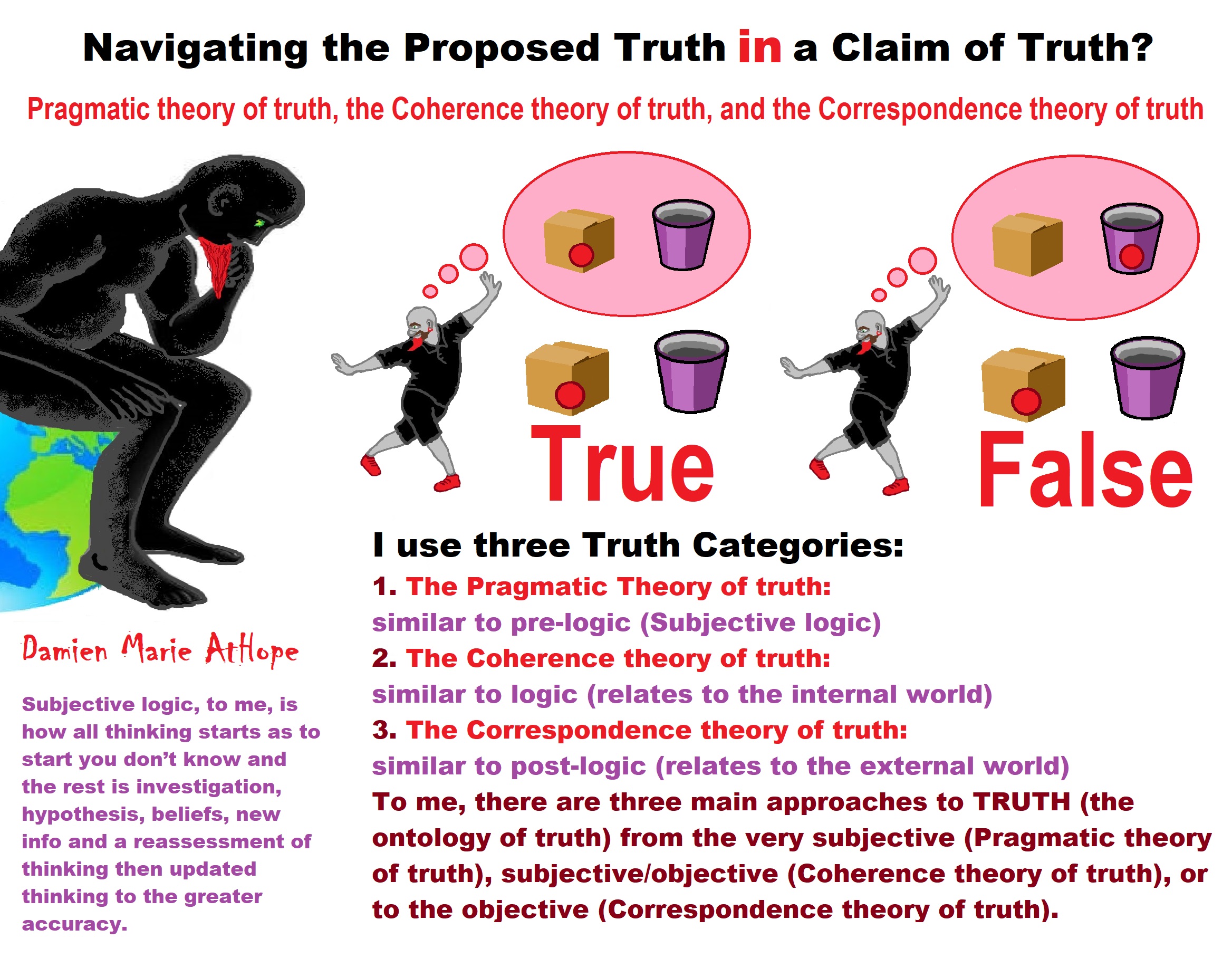
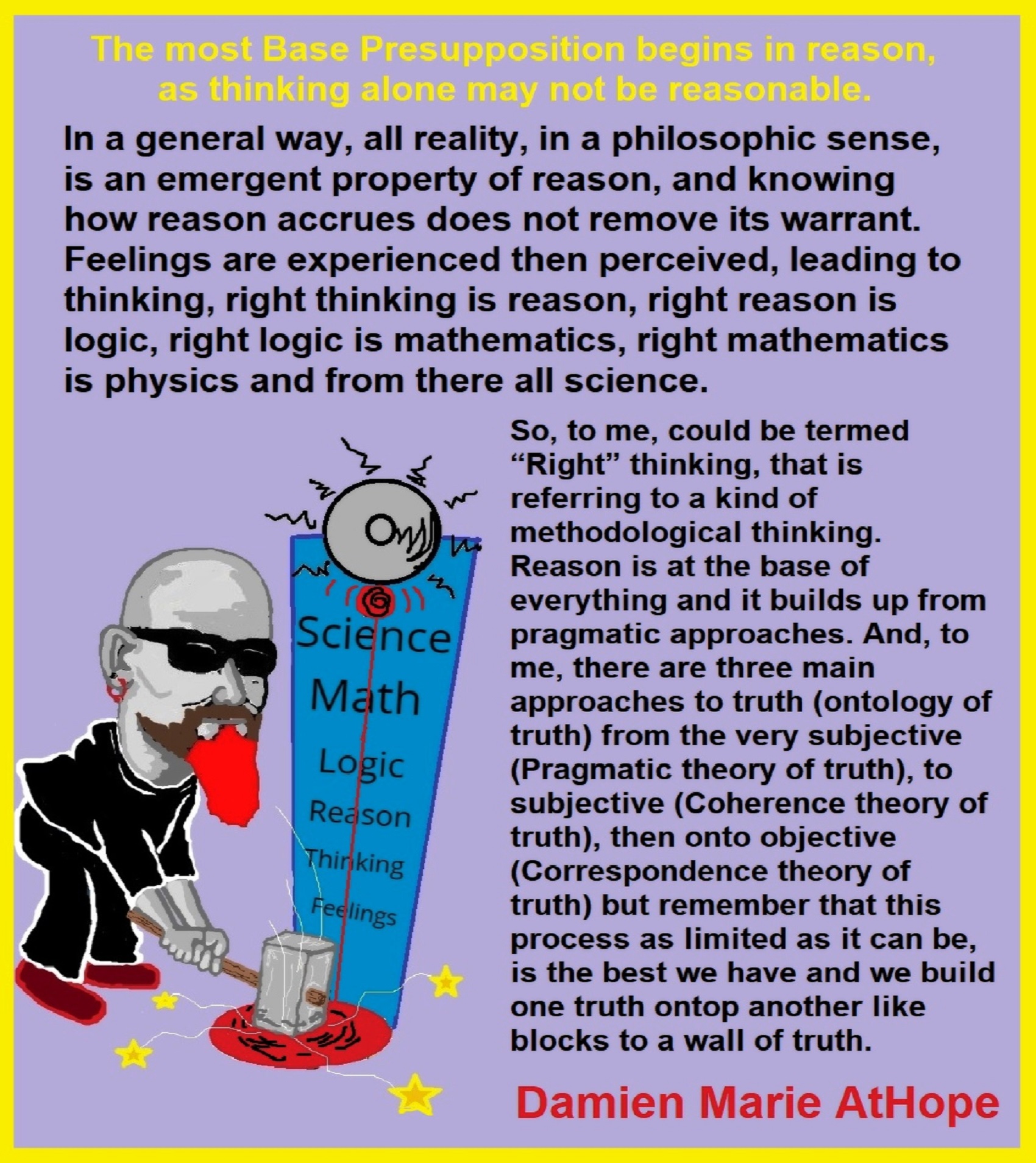
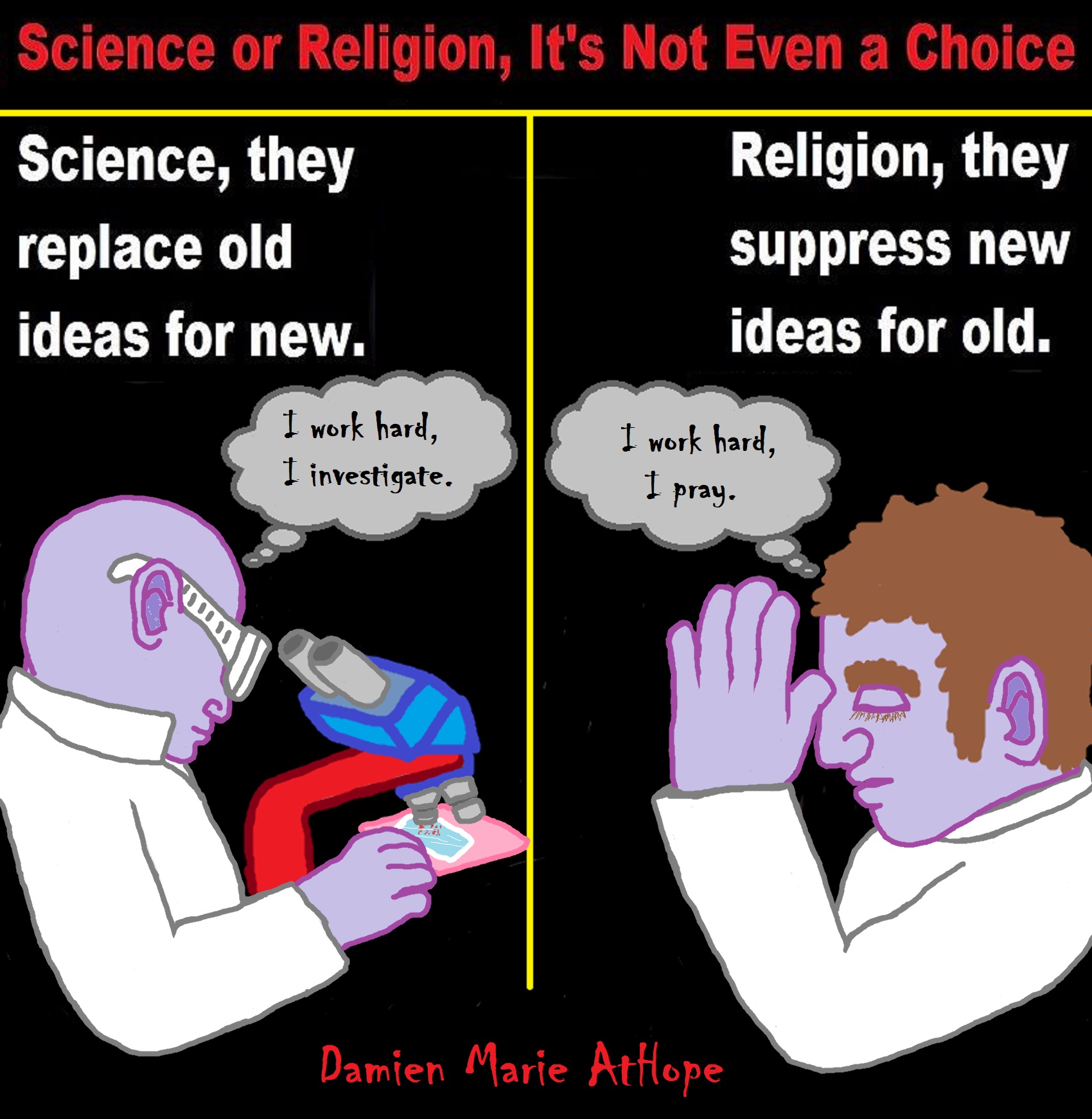
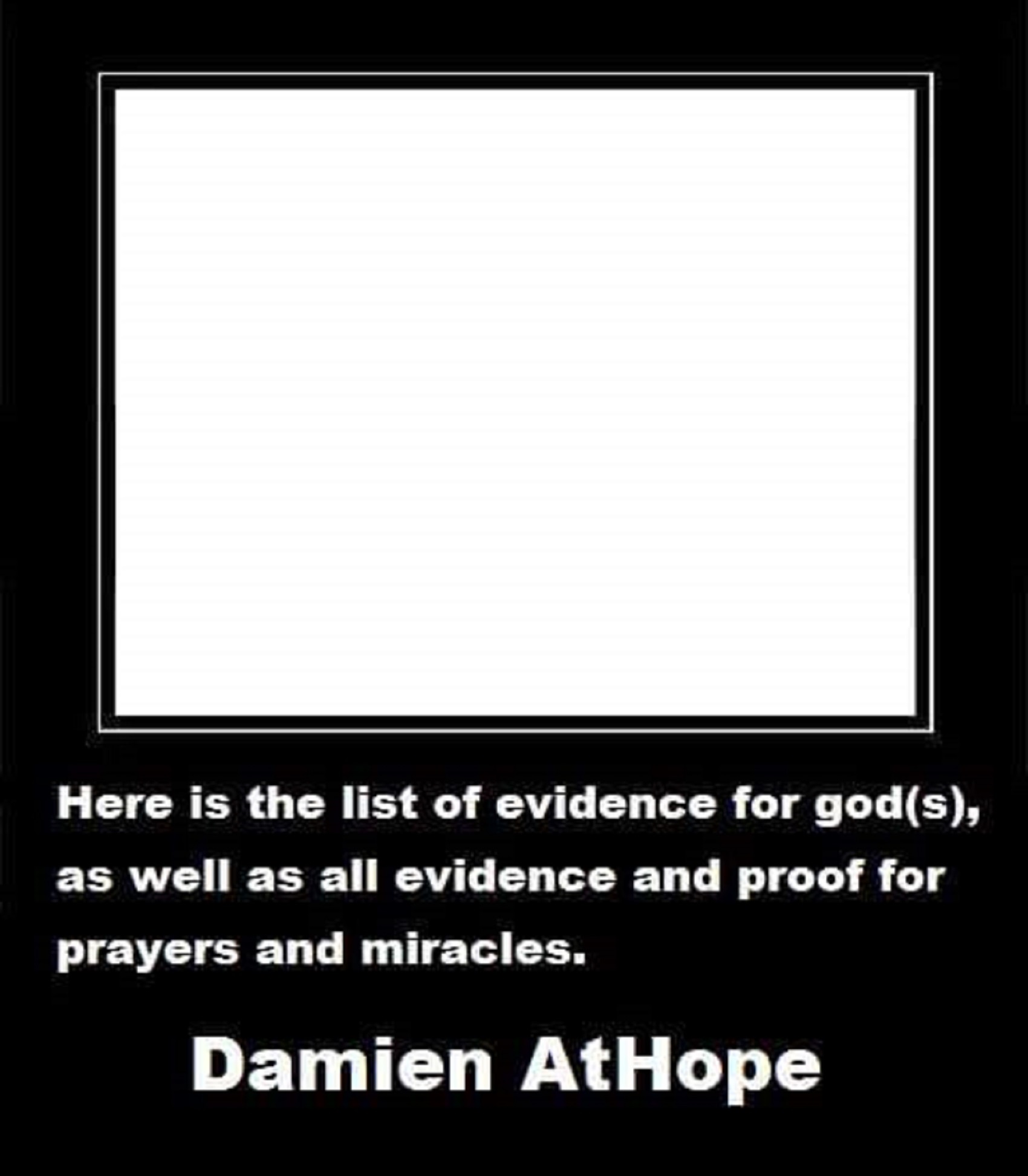
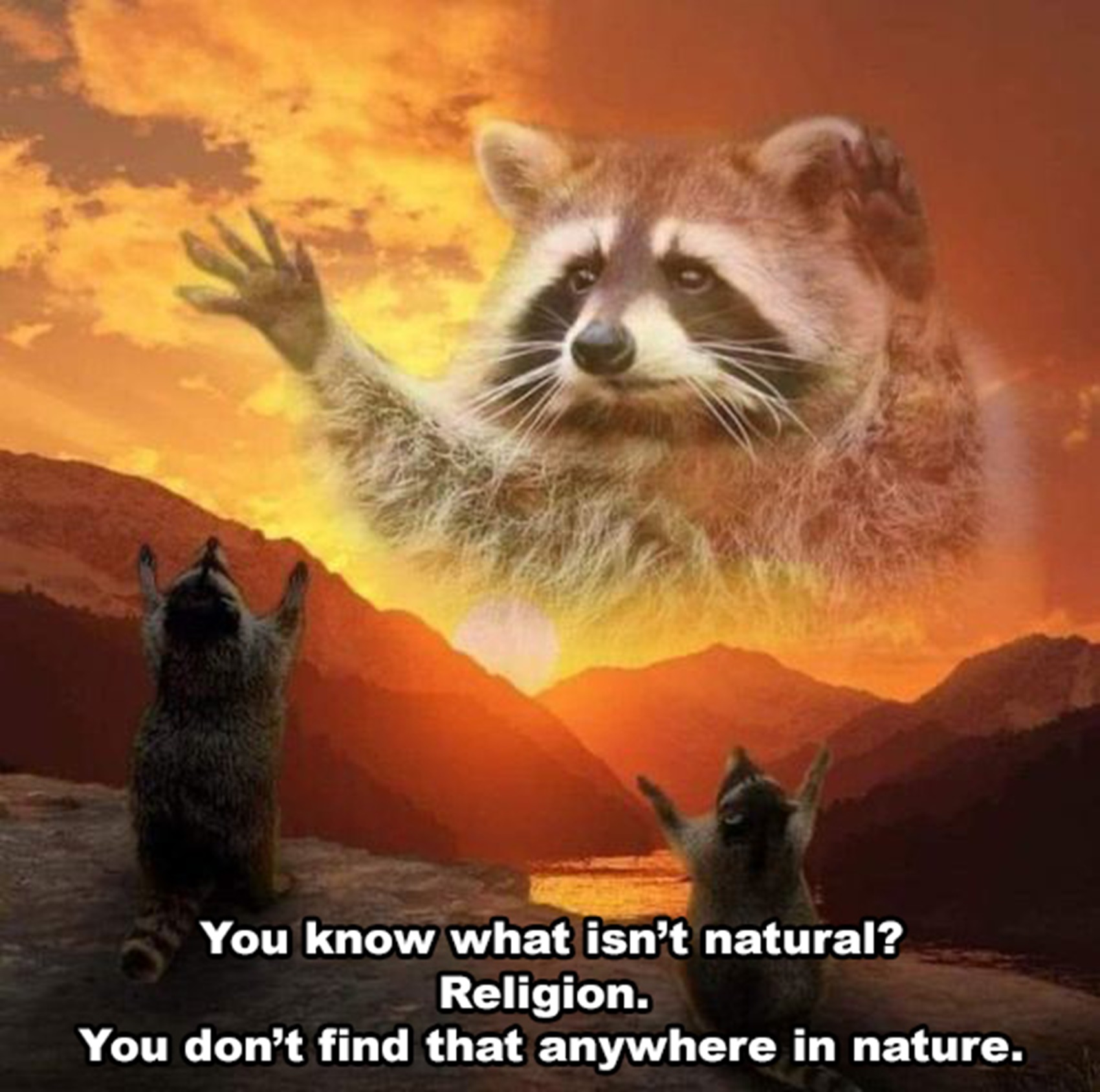
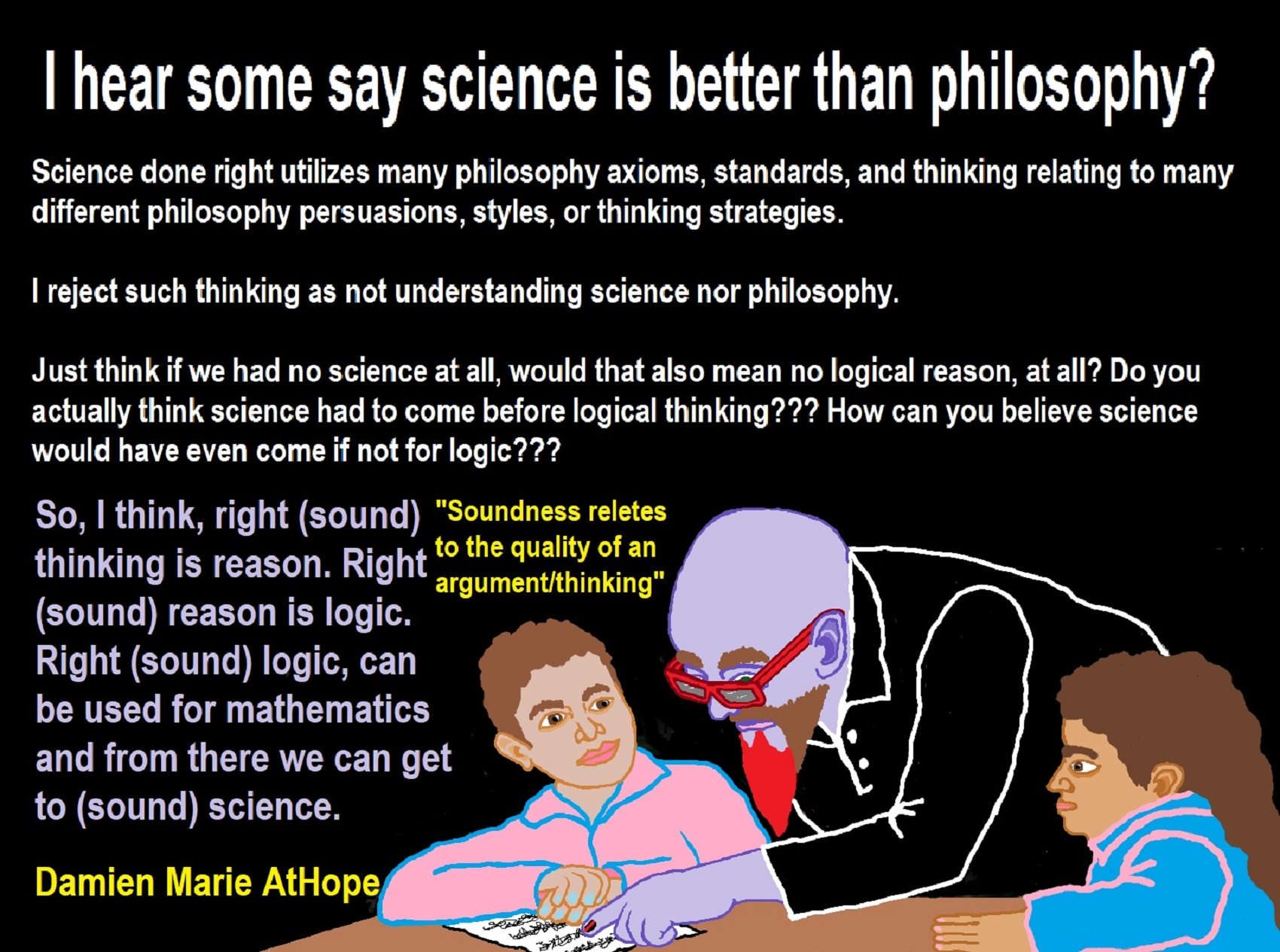
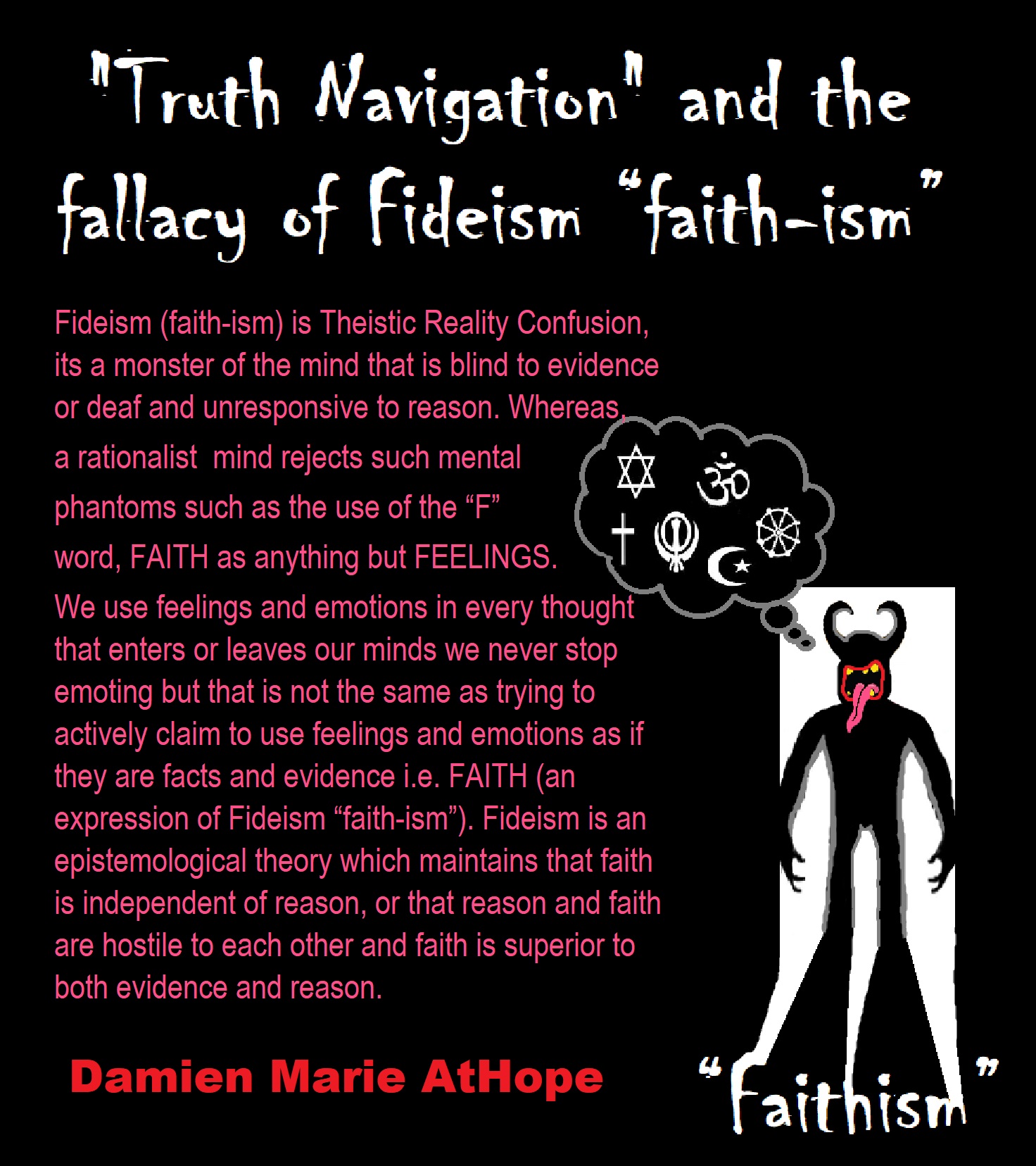
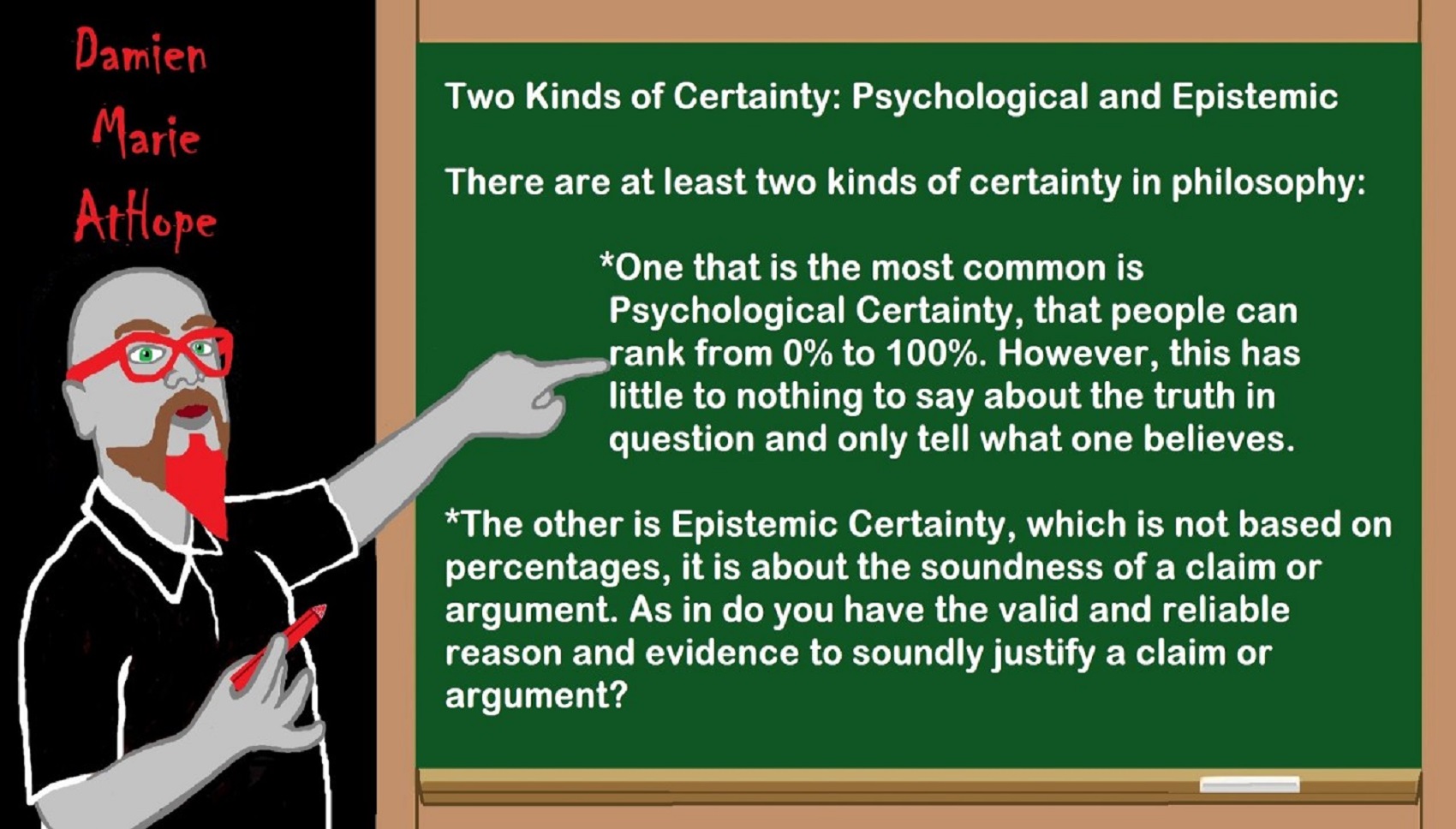
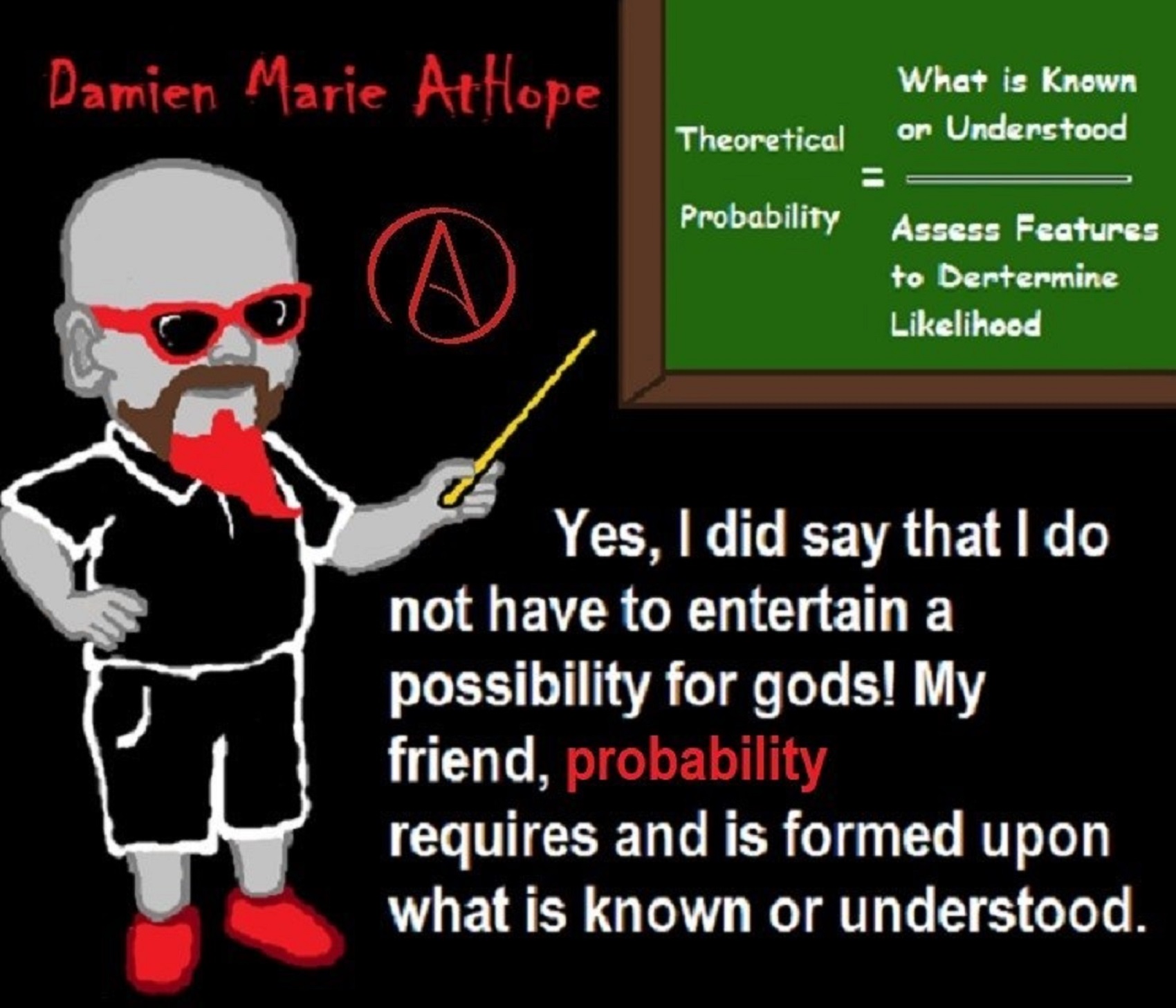
Do you truly think “Religious Belief” is only a matter of some personal choice?
Do you not see how coercive one’s world of choice is limited to the obvious hereditary belief, in most religious choices available to the child of religious parents or caregivers? Religion is more commonly like a family, culture, society, etc. available belief that limits the belief choices of the child and that is when “Religious Belief” is not only a matter of some personal choice and when it becomes hereditary faith, not because of the quality of its alleged facts or proposed truths but because everyone else important to the child believes similarly so they do as well simply mimicking authority beliefs handed to them. Because children are raised in religion rather than being presented all possible choices but rather one limited dogmatic brand of “Religious Belief” where children only have a choice of following the belief as instructed, and then personally claim the faith hereditary belief seen in the confirming to the belief they have held themselves all their lives. This is obvious in statements asked and answered by children claiming a faith they barely understand but they do understand that their family believes “this or that” faith, so they feel obligated to believe it too. While I do agree that “Religious Belief” should only be a matter of some personal choice, it rarely is… End Hereditary Religion!
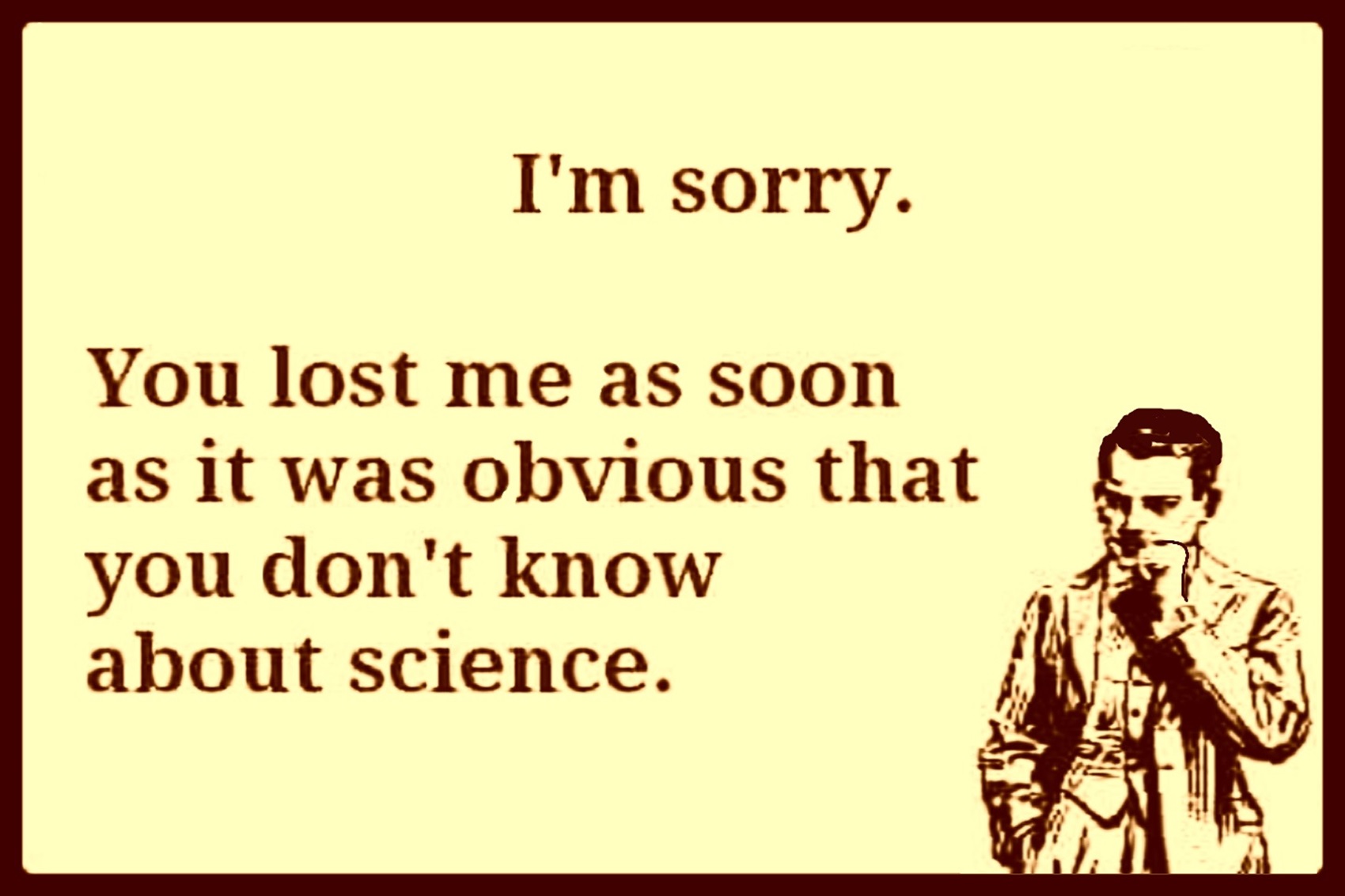
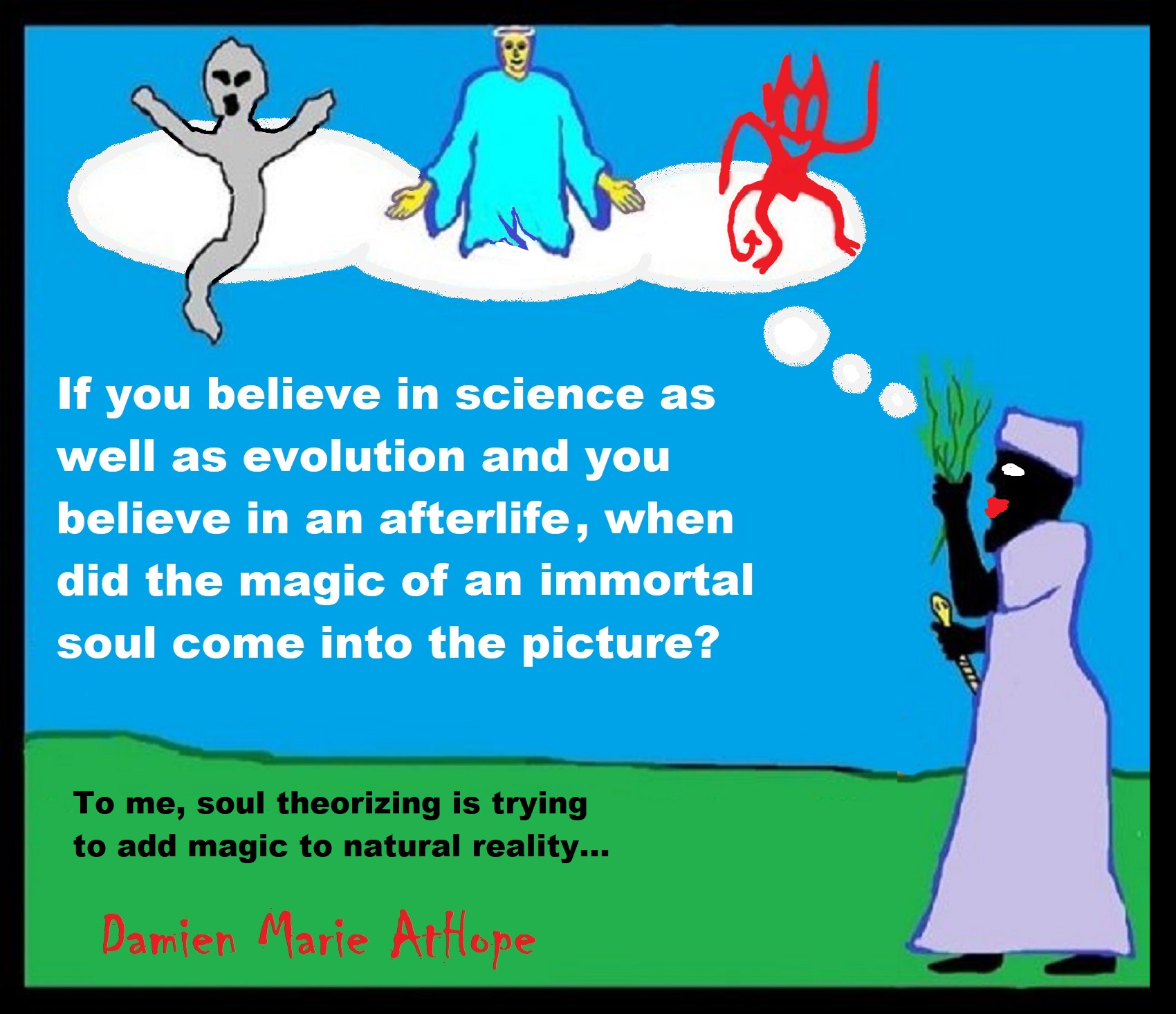
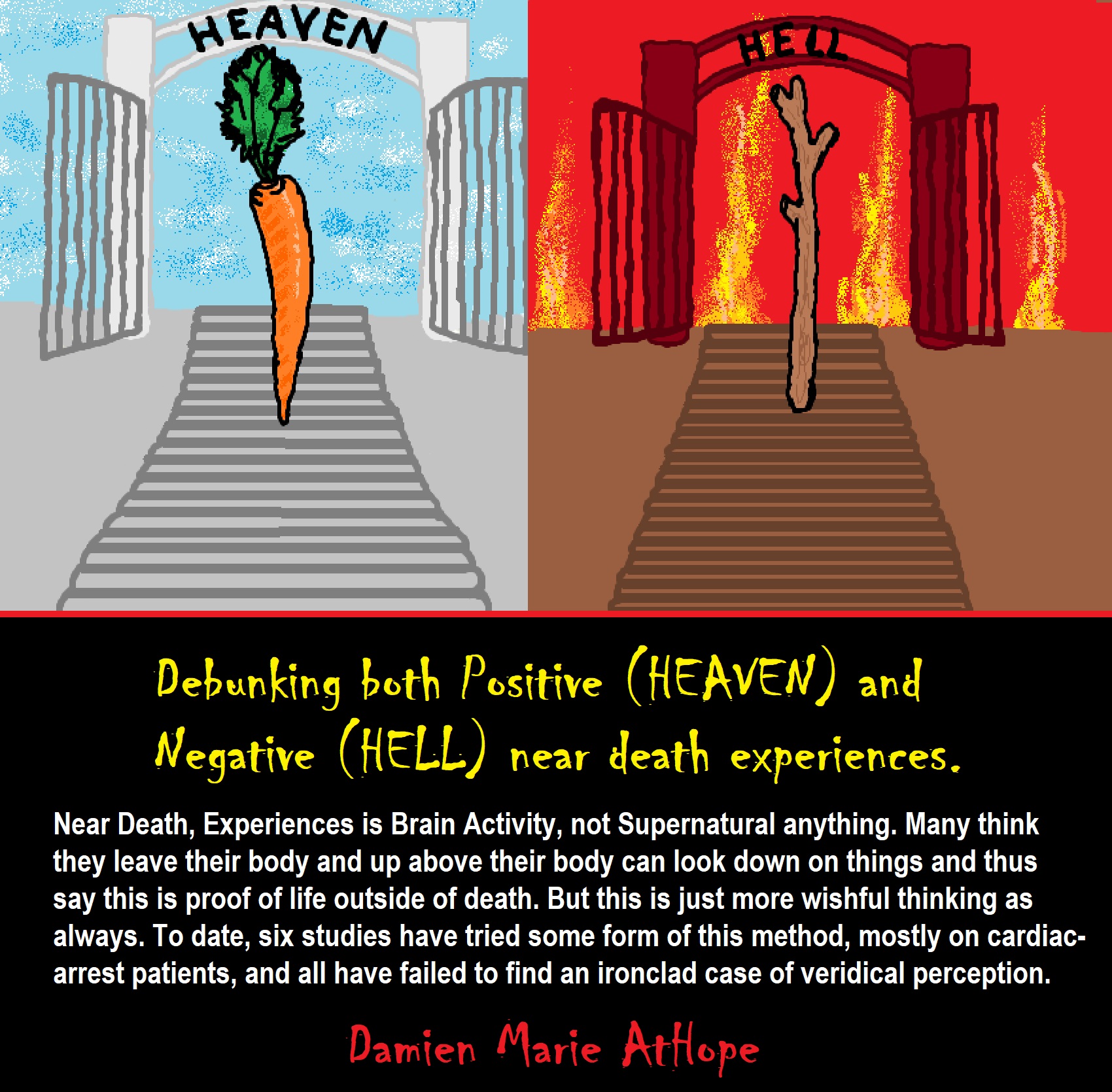

“Theists, there has to be a god, as something can not come from nothing.”
Well, thus something (unknown) happened and then there was something. This does not tell us what the something that may have been involved with something coming from nothing. A supposed first cause, thus something (unknown) happened and then there was something is not an open invitation to claim it as known, neither is it justified to call or label such an unknown as anything, especially an unsubstantiated magical thinking belief born of mythology and religious storytelling.

While hallucinogens are associated with shamanism, it is alcohol that is associated with paganism.
The Atheist-Humanist-Leftist Revolutionaries Shows in the prehistory series:
Show two: Pre-animism 300,000 years old and animism 100,000 years old: related to “Anarchism and Socialism”
Show tree: Totemism 50,000 years old: related to “Anarchism and Socialism”
Show four: Shamanism 30,000 years old: related to “Anarchism and Socialism”
Show five: Paganism 12,000 years old: related to “Anarchism and Socialism”
Show six: Emergence of hierarchy, sexism, slavery, and the new male god dominance: Paganism 7,000-5,000 years old: related to “Anarchism and Socialism” (Capitalism) (World War 0) Elite and their slaves!
Prehistory: related to “Anarchism and Socialism” the division of labor, power, rights, and recourses: VIDEO
Pre-animism 300,000 years old and animism 100,000 years old: related to “Anarchism and Socialism”: VIDEO
Totemism 50,000 years old: related to “Anarchism and Socialism”: VIDEO
Shamanism 30,000 years old: related to “Anarchism and Socialism”: VIDEO
Paganism 12,000 years old: related to “Anarchism and Socialism” (Pre-Capitalism): VIDEO
Paganism 7,000-5,000 years old: related to “Anarchism and Socialism” (Capitalism) (World War 0) Elite and their slaves: VIEDO
Paganism 5,000 years old: progressed organized religion and the state: related to “Anarchism and Socialism” (Kings and the Rise of the State): VIEDO
Paganism 4,000 years old: related to “Anarchism and Socialism” (First Moralistic gods, then the Origin time of Monotheism): VIEDO
I do not hate simply because I challenge and expose myths or lies any more than others being thought of as loving simply because of the protection and hiding from challenge their favored myths or lies.
The truth is best championed in the sunlight of challenge.
An archaeologist once said to me “Damien religion and culture are very different”
My response, So are you saying that was always that way, such as would you say Native Americans’ cultures are separate from their religions? And do you think it always was the way you believe?
I had said that religion was a cultural product. That is still how I see it and there are other archaeologists that think close to me as well. Gods too are the myths of cultures that did not understand science or the world around them, seeing magic/supernatural everywhere.
I personally think there is a goddess and not enough evidence to support a male god at Çatalhöyük but if there was both a male and female god and goddess then I know the kind of gods they were like Proto-Indo-European mythology.
This series idea was addressed in, Anarchist Teaching as Free Public Education or Free Education in the Public: VIDEO
Our 12 video series: Organized Oppression: Mesopotamian State Force and the Politics of power (9,000-4,000 years ago), is adapted from: The Complete and Concise History of the Sumerians and Early Bronze Age Mesopotamia (7000-2000 BC): https://www.youtube.com/watch?v=szFjxmY7jQA by “History with Cy“
Show #1: Mesopotamian State Force and the Politics of Power (Samarra, Halaf, Ubaid)
Show #2: Mesopotamian State Force and the Politics of Power
Show #3: Mesopotamian State Force and the Politics of Power (Uruk and the First Cities)
Show #4: Mesopotamian State Force and the Politics of Power (First Kings)
Show #5: Mesopotamian State Force and the Politics of Power (Early Dynastic Period)
Show #6: Mesopotamian State Force and the Politics of Power
Show #7: Mesopotamian State Force and the Politics of Power (Sargon and Akkadian Rule)
Show #9: Mesopotamian State Force and the Politics of Power (Gudea of Lagash and Utu-hegal)
Show #12: Mesopotamian State Force and the Politics of Power (Aftermath and Legacy of Sumer)

The “Atheist-Humanist-Leftist Revolutionaries”
Cory Johnston ☭ Ⓐ Atheist Leftist @Skepticallefty & I (Damien Marie AtHope) @AthopeMarie (my YouTube & related blog) are working jointly in atheist, antitheist, antireligionist, antifascist, anarchist, socialist, and humanist endeavors in our videos together, generally, every other Saturday.
Why Does Power Bring Responsibility?
Think, how often is it the powerless that start wars, oppress others, or commit genocide? So, I guess the question is to us all, to ask, how can power not carry responsibility in a humanity concept? I know I see the deep ethical responsibility that if there is power their must be a humanistic responsibility of ethical and empathic stewardship of that power. Will I be brave enough to be kind? Will I possess enough courage to be compassionate? Will my valor reach its height of empathy? I as everyone, earns our justified respect by our actions, that are good, ethical, just, protecting, and kind. Do I have enough self-respect to put my love for humanity’s flushing, over being brought down by some of its bad actors? May we all be the ones doing good actions in the world, to help human flourishing.
I create the world I want to live in, striving for flourishing. Which is not a place but a positive potential involvement and promotion; a life of humanist goal precision. To master oneself, also means mastering positive prosocial behaviors needed for human flourishing. I may have lost a god myth as an atheist, but I am happy to tell you, my friend, it is exactly because of that, leaving the mental terrorizer, god belief, that I truly regained my connected ethical as well as kind humanity.
Cory and I will talk about prehistory and theism, addressing the relevance to atheism, anarchism, and socialism.
At the same time as the rise of the male god, 7,000 years ago, there was also the very time there was the rise of violence, war, and clans to kingdoms, then empires, then states. It is all connected back to 7,000 years ago, and it moved across the world.
Cory Johnston: https://damienmarieathope.com/2021/04/cory-johnston-mind-of-a-skeptical-leftist/?v=32aec8db952d
The Mind of a Skeptical Leftist (YouTube)
Cory Johnston: Mind of a Skeptical Leftist @Skepticallefty
The Mind of a Skeptical Leftist By Cory Johnston: “Promoting critical thinking, social justice, and left-wing politics by covering current events and talking to a variety of people. Cory Johnston has been thoughtfully talking to people and attempting to promote critical thinking, social justice, and left-wing politics.” http://anchor.fm/skepticalleft
Cory needs our support. We rise by helping each other.
Cory Johnston ☭ Ⓐ @Skepticallefty Evidence-based atheist leftist (he/him) Producer, host, and co-host of 4 podcasts @skeptarchy @skpoliticspod and @AthopeMarie
Damien Marie AtHope (“At Hope”) Axiological Atheist, Anti-theist, Anti-religionist, Secular Humanist. Rationalist, Writer, Artist, Poet, Philosopher, Advocate, Activist, Psychology, and Armchair Archaeology/Anthropology/Historian.
Damien is interested in: Freedom, Liberty, Justice, Equality, Ethics, Humanism, Science, Atheism, Antiteism, Antireligionism, Ignosticism, Left-Libertarianism, Anarchism, Socialism, Mutualism, Axiology, Metaphysics, LGBTQI, Philosophy, Advocacy, Activism, Mental Health, Psychology, Archaeology, Social Work, Sexual Rights, Marriage Rights, Woman’s Rights, Gender Rights, Child Rights, Secular Rights, Race Equality, Ageism/Disability Equality, Etc. And a far-leftist, “Anarcho-Humanist.”
I am not a good fit in the atheist movement that is mostly pro-capitalist, I am anti-capitalist. Mostly pro-skeptic, I am a rationalist not valuing skepticism. Mostly pro-agnostic, I am anti-agnostic. Mostly limited to anti-Abrahamic religions, I am an anti-religionist.
To me, the “male god” seems to have either emerged or become prominent around 7,000 years ago, whereas the now favored monotheism “male god” is more like 4,000 years ago or so. To me, the “female goddess” seems to have either emerged or become prominent around 11,000-10,000 years ago or so, losing the majority of its once prominence around 2,000 years ago due largely to the now favored monotheism “male god” that grow in prominence after 4,000 years ago or so.
My Thought on the Evolution of Gods?
Animal protector deities from old totems/spirit animal beliefs come first to me, 13,000/12,000 years ago, then women as deities 11,000/10,000 years ago, then male gods around 7,000/8,000 years ago. Moralistic gods around 5,000/4,000 years ago, and monotheistic gods around 4,000/3,000 years ago.
To me, animal gods were likely first related to totemism animals around 13,000 to 12,000 years ago or older. Female as goddesses was next to me, 11,000 to 10,000 years ago or so with the emergence of agriculture. Then male gods come about 8,000 to 7,000 years ago with clan wars. Many monotheism-themed religions started in henotheism, emerging out of polytheism/paganism.

Damien Marie AtHope (Said as “At” “Hope”)/(Autodidact Polymath but not good at math):
Axiological Atheist, Anti-theist, Anti-religionist, Secular Humanist, Rationalist, Writer, Artist, Jeweler, Poet, “autodidact” Philosopher, schooled in Psychology, and “autodidact” Armchair Archaeology/Anthropology/Pre-Historian (Knowledgeable in the range of: 1 million to 5,000/4,000 years ago). I am an anarchist socialist politically. Reasons for or Types of Atheism
My Website, My Blog, & Short-writing or Quotes, My YouTube, Twitter: @AthopeMarie, and My Email: damien.marie.athope@gmail.com

